
VOLUME 4 | ISSUE 1 WINTER 2023
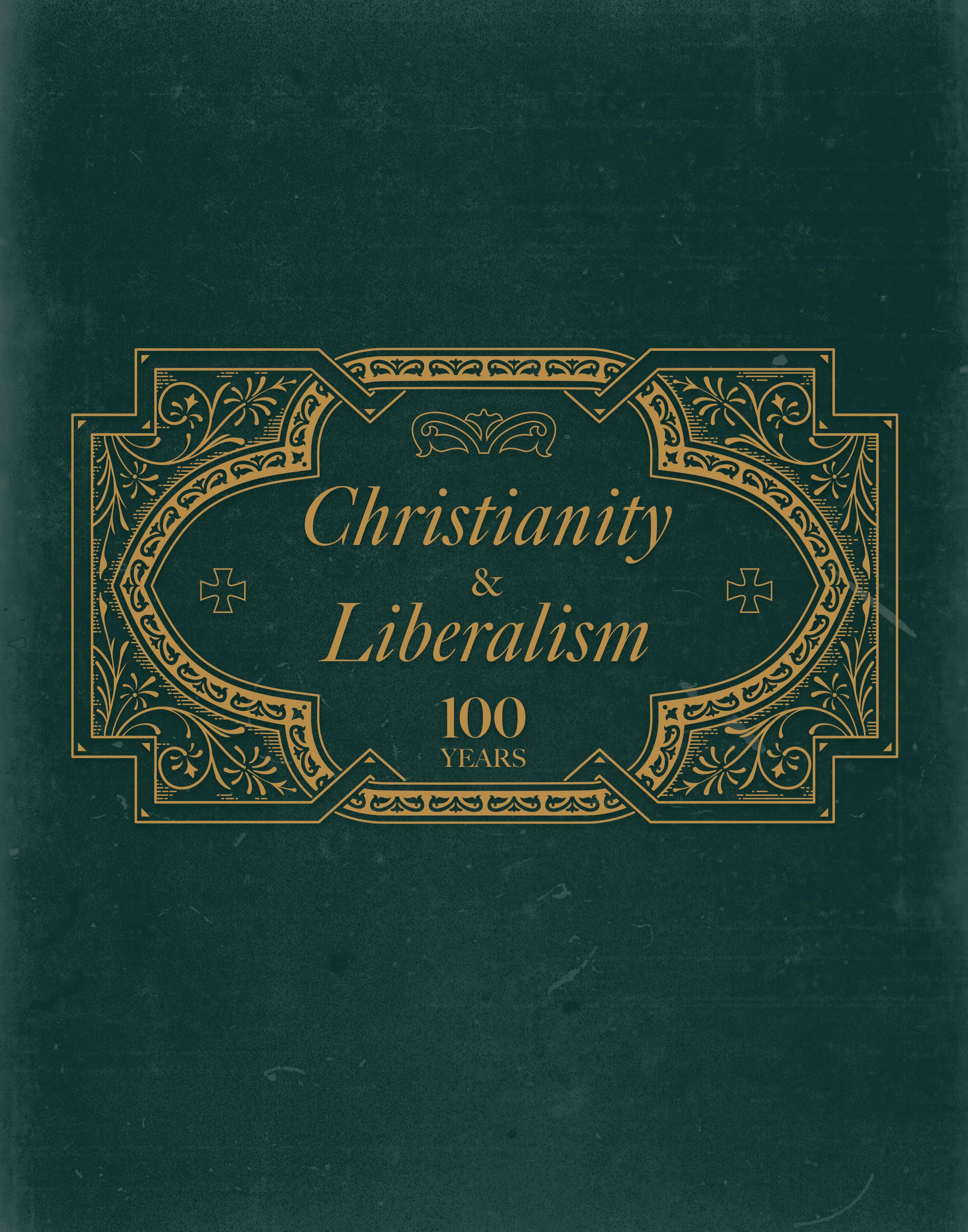
STUPENDOUS SUPERNATURALISM KUYPER’S CAUTION PLUS: A MATTER OF INTEGRITY
MACHEN ON EDUCATION HOW WORDS MATTER WESTMINSTER NEWS & UPDATES TELLING THE TRUE GOSPEL IN THIS ISSUE: J. Gresham Machen’s Classic Book and a Century of Influence
Peter A. Lillback
William R. Edwards
Mark A. Garcia
Shao Kai Tseng
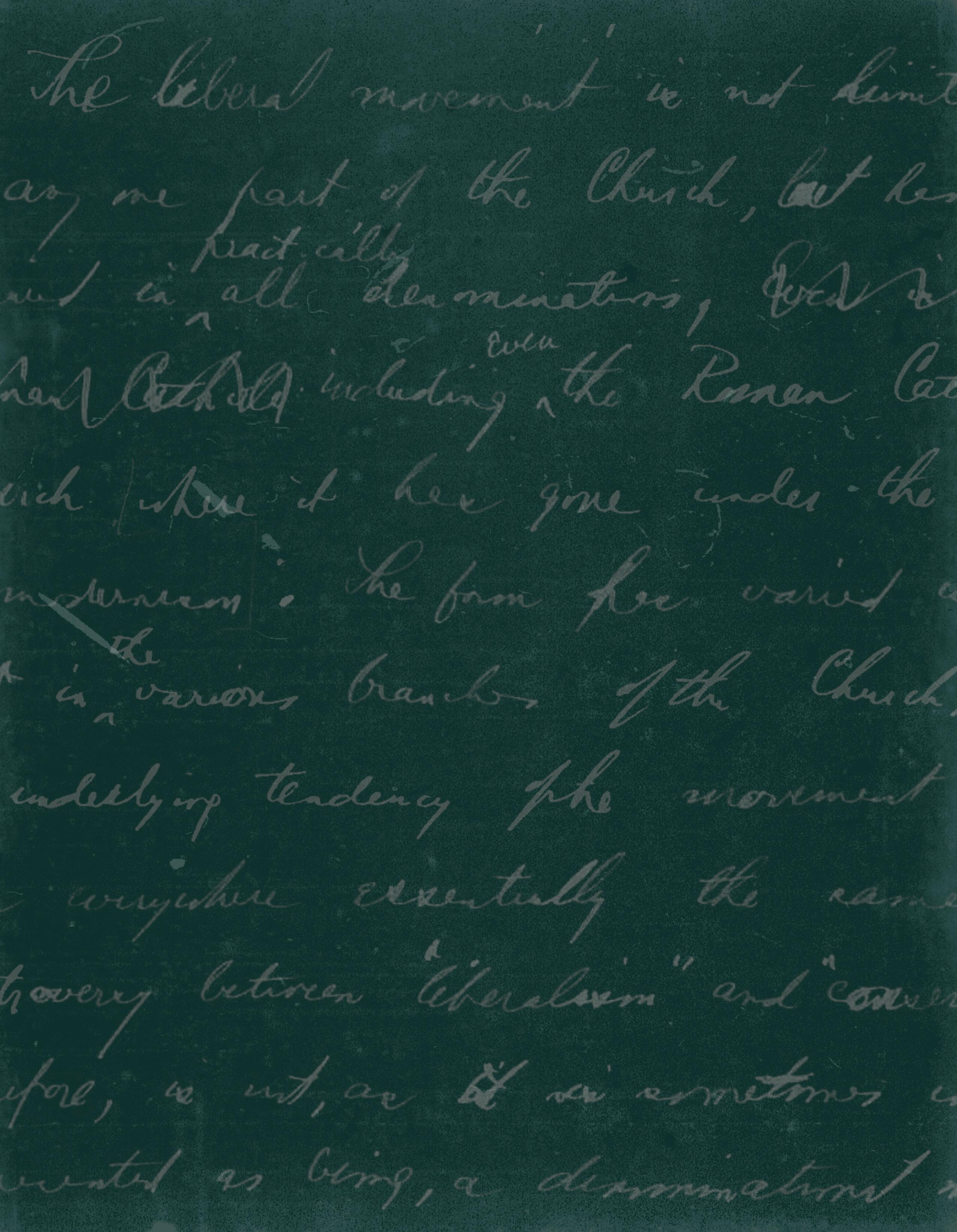
“The things that are sometimes thought to be the hardest to defend are also the things most worth defending.”
J.Gresham Machen
FROM THE PRESIDENT I
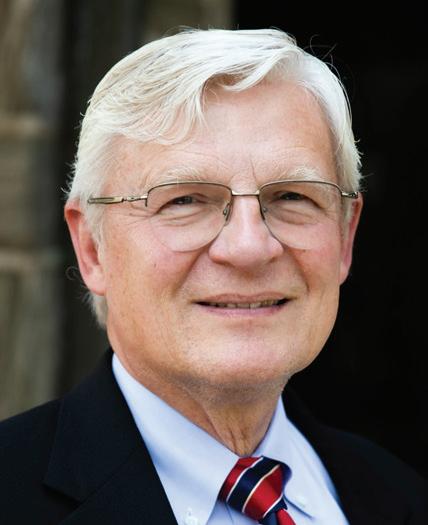
t is always a privilege to share the new issue of Westminster Magazine with you! We are grateful for the encouragement that this lovely communication has been for so many. We are blessed in sending it and in receiving it ourselves. We are thankful, too, that many are finding new depths of spiritual encouragement as their knowledge of Scripture grows through its articles, and even the artwork.
In this issue, we reflect on J. Gresham Machen’s Christianity and Liberalism and its theological legacy, and we remember how effective his book was in spreading the message of the historic Christian faith. It has not gone out of print since it first appeared and has even gone through various editions here at Westminster.
Most especially, we are thankful for the global impact that Machen’s message has had. The book has been translated into languages around the world and continues to be read as though it were written for us today.
This global, gospel-spreading role of Machen’s Christianity and Liberalism is complemented by the global, gospel-spreading role of Machen’s Westminster. Indeed, our seminary exists in order to train specialists in the Bible to proclaim the whole counsel of God for Christ and his global Church. We pray that you will be drawn closer to the Lord Jesus Christ through Westminster’s message—a message that will never go out of date.
At this centennial of Machen’s Christianity and Liberalism, we are grateful for your partnership in proclaiming the matchless grace of Jesus Christ, the eternal Son of God, whose supernatural Christianity is ever true and vital unto the salvation of souls.
Your brother in Christ’s service,
 Peter A. Lillback, President
Peter A. Lillback, President
Volume 4 | Issue 1 | Fall 2023
Editor–in–Chief
Peter A. Lillback
Executive Editor
Jerry Timmis
Editor
Josh Currie
Managing Editor
Nathan Nocchi
Associate Editor
Pierce Taylor Hibbs
Contributing Editors
B. McLean Smith
Anna Sylvestre
Design
Ethan Greb
Interior
Angela Messinger
Additional Design
Kira Millick
Read, watch, and listen at wm.wts.edu.
WestminsterMagazineaccepts pitches and submissions of previously unpublished work. For more information, email wtsmag@wts.edu.
WestminsterMagazineis published twice annually by Westminster Theological Seminary, 2960 Church Road, Glenside, Pennsylvania 19038. No part of this publication may be reproduced without permission of the publisher, except in the case of brief quotations.
Printed and bound in the United States of America
Handwriting samples featured in this issue are from J. Gresham Machen's manuscript draft of Christianity and Liberalism.
GAZINE
WESTMINSTER MA
 The Jan H. Jacks Hospitality Garden (photo: Abram Hammer)
The Jan H. Jacks Hospitality Garden (photo: Abram Hammer)

FALL 2023 Westminster News and Events .............................. 32 Faculty News and Updates ................................. 34 Faculty Profile: Stephen M. Coleman ......................... 38 From the Archive: Senate Testimony | J. Gresham Machen ........ 42 True Learning and True Piety | J. S. S. Patterson .............. 48 Student Spotlight: Andrew Becham 54 For the Church | Rich S. Brown III ......................... 58 How Words Matter | Pierce Taylor Hibbs..................... 64 Alumni Profile: Rob Golding ............................... 70 Point of Contact: Claim Your Creed | Peter A. Lillback .......... 74 Closing Liturgy: A Prayer for the Morning | Daniel Featley ....... 76 STUPENDOUS SUPERNATURALISM Peter A. Lillback A MATTER OF INTEGRITY Mark A. Garcia TELLING THE TRUE GOSPEL Shao Kai Tseng KUYPER’S CAUTION William R. Edwards 4 1 8 12 2 4
STUPENDOUS SUPERNATURALISM:
The Century-old Gospel Heart of Machen’s Christianity and Liberalism
Peter A. Lillback
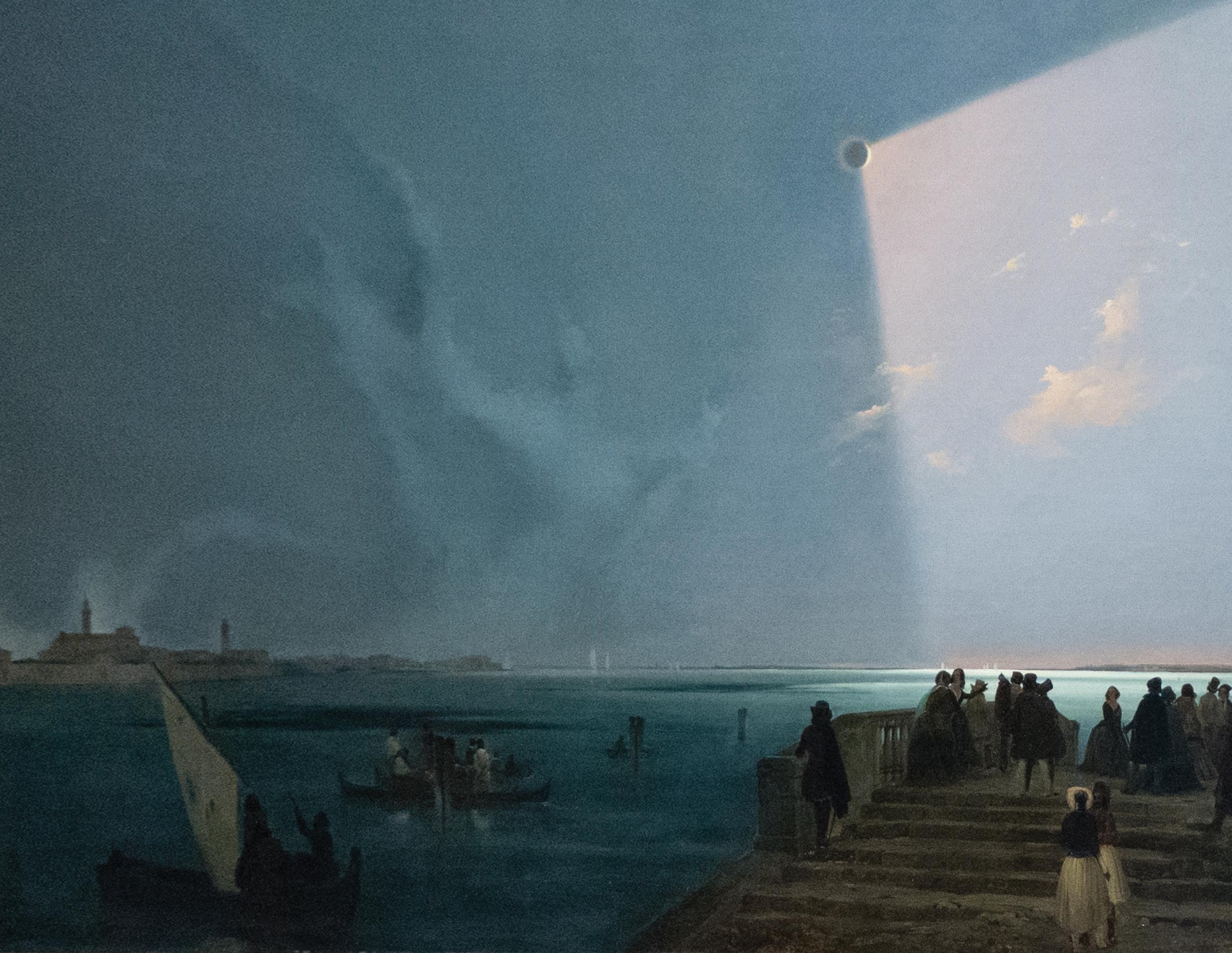
If you haven’t heard, 2023 marks the centennial of the publication of J. Gresham Machen’s Christianity and Liberalism, a book that George Marsden described as “one of the most important religious works of the twentieth century,” and one that is dear to the heart of our seminary. Through our publishing arm, Westminster Seminary Press, we’re celebrating this milestone with a new edition of Machen’s seminal treatise, a companion podcast series, a new audiobook recording, and a study guide. But there is always more to the story of Christianity and Liberalism that we can tell. That’s because its story continues to grow each year! Throughout the century of its existence, Machen’s book has remained in print through multiple editions and publishers. And it continues to be translated into increasingly more languages around the globe each year. Without a doubt,
this is a special book, the significance of which is well worth exploring.
A Brief History
When Machen’s critique of liberal protestant theology appeared in 1923, it launched him on a tempestuous journey that carried the then Princeton Seminary professor to international prominence. Machen’s decisive popular preaching and trenchant scholarly publications manifested his deep theological commitment to confessional Presbyterianism, and he became the leading scholarly voice of biblical Christianity in its confrontation with the liberalizing theology of Presbyterianism and other main line protestant denominations. After the reorganization
4 | W ESTMINSTER M AGAZINE
Ippolito Caffi, Eclisse di sole alle Fondamenta Nove (1842)
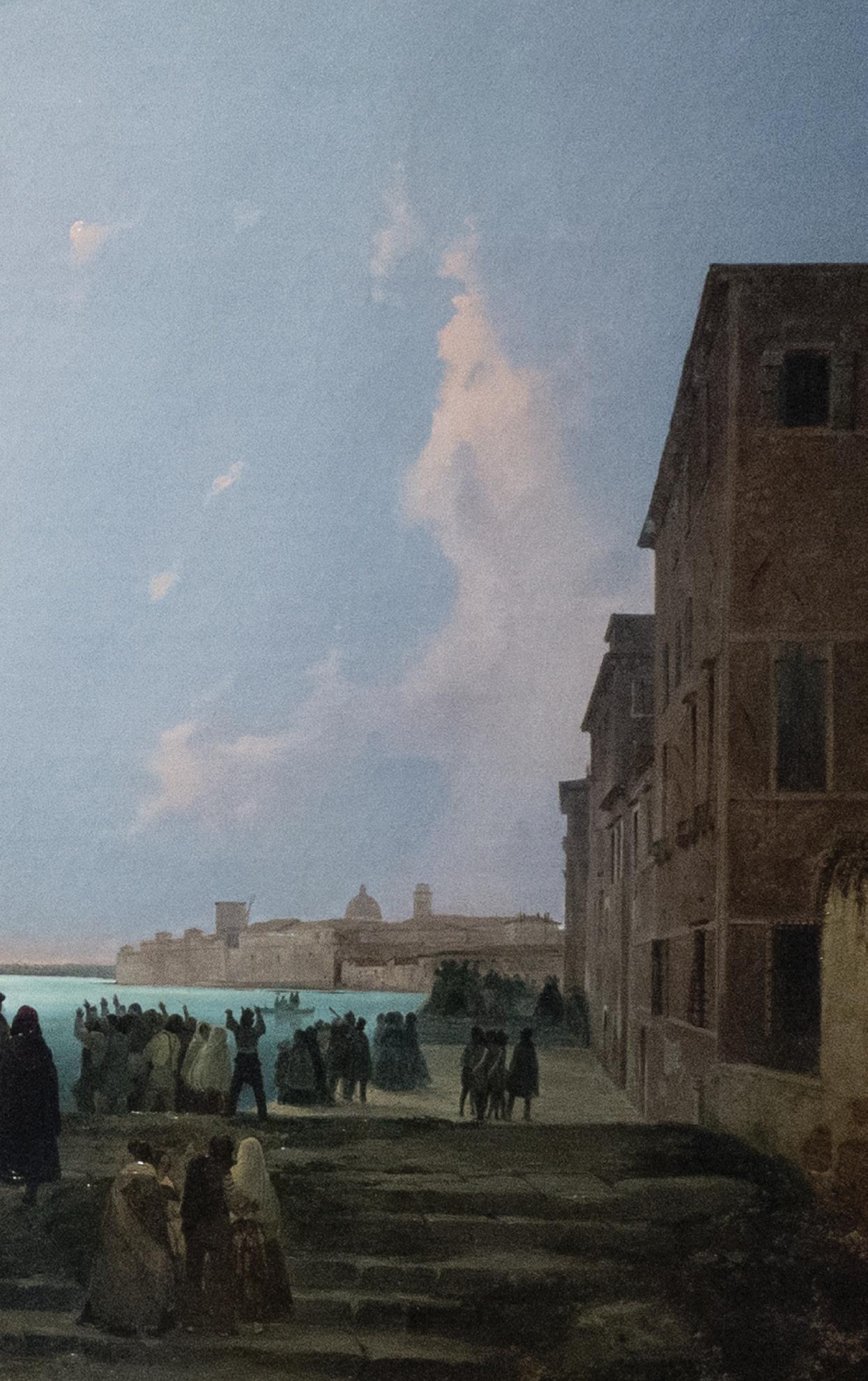
of Princeton Seminary in 1929, which solidified that institution’s embrace of theological Liberalism, Machen’s historic Reformed theological commitments providentially led to the founding of Westminster Theological Seminary in Philadelphia. And the ongoing ecclesiastical controversies in Presbyterianism eventually compelled him in 1936 to organize a new denomination that became the Orthodox Presbyterian Church. After Machen’s death on January 1, 1937, Princetonian Caspar Wistar Hodge described him as, “the greatest theologian in the English-speaking world” and “the greatest leader of the whole cause of evangelical Christianity” (Ned B. Stonehouse, J. Gresham Machen: A Biographical Memoir, 7). Machen’s pivotal role in the defense of historic Christianity continues to be recognized today. The accomplished endorsers of Westminster Seminary
Press’s new edition of Christianity and Liberalism confer remarkable accolades upon the author and his historic book (p. i–vii.). They speak of Machen’s “courage,” his “important” work, and “classic defense” of historic Christianity. They note that Machen’s “prescience” was adorned by “precision,” “logic,” and “clarity” that characterized his “prophetic” message. Indeed, this “little book,” as Machen described it (9), is assessed by one endorser as “prescient in its time and … even more relevant in ours.”
So, it stands to reason that Machen’s view of Liberalism is worth exploring, along with the vital significance of his distinction between theological Liberalism and Christianity proper. I believe that more than a little precious insight can be gained by taking a closer look at Machen’s articulation of “stupendous” aspects of supernatural Christianity.
Liberalism’s Naturalism Is Inherently Opposed to Biblical Christianity
Machen argued that although Christianity and Liberalism used the same terms, they were, in fact, two different religions. He explains,
In the sphere of religion, in particular, the present time is a time of conflict; the great redemptive religion which has always been known as Christianity is battling against a totally diverse type of religious belief, which is only the more destructive of the Christian faith because it makes use of traditional Christian terminology. This modern non-redemptive religion is called ‘modernism’ or ‘liberalism’ . . . . the root of the movement is one; the many varieties of modern liberal religion are rooted in naturalism—that is, in the denial of any entrance of the creative power of God . . . in connection with the origin of Christianity (2).
The chief modern rival of Christianity is ‘liberalism.’ An examination of the teachings of liberalism in comparison with those of Christianity will show that at every point the two movements are in direct opposition (53).
For Machen then, Christianity is the revealed religion of the Lord Jesus Christ while the Christianity of liberal theology was a reduction of the former into a sort of
Fall 2023 | 5
pre-Christian religion resulting from Liberalism’s efforts to reconcile Christianity with naturalistic philosophy and science (see p. 7).
In fact, Machen argues that there is no ultimate conflict between historic Christianity and science itself so long as Christians maintain a proper understanding of God’s role in creation and providence (102–103). Ironically, it is liberal theology that is at odds with science: “. . . it is not the Christianity of the New Testament which is in conflict with science, but the supposed Christianity of the modern liberal church, and that the real city of God, and that city alone, has defenses which are capable of warding off the assaults of modern unbelief” (7).
The real motive behind modern Liberalism, Machen argued, was to accommodate religion to those who had rejected the supernaturalism of biblical Christianity in favor of the naturalistic tenets of unbelieving science. But the result was not Christianity; it was a new manmade religion marked by deistic or pantheistic perspectives emanating from enlightenment era philosophy (102–105). “Naturalistic liberalism,” Machen insists, “is not Christianity at all” (52).
Naturalistic liberal religion, according to Machen, begins its method of resistance to historic Christianity by rejecting the importance of the church’s creeds and doctrines. When it comes to doctrine, the liberal sees creeds as “merely the changing expression of a unitary Christian experience and provided only they express that experience they are all equally good” (18).
“At the outset,” Machen explains, “we are met with an objection. ‘Teachings,’ it is said, ‘are unimportant; the exposition of the teachings of liberalism and the teachings of Christianity, therefore, can arouse no interest at the present day; . . . The teachings of liberalism, therefore, might be as far removed as possible from the teachings of historic Christianity; and yet the two might be at bottom one” (18).
But, as Machen points out, “If all creeds are equally true, then since they are contradictory to one another, they are all equally false, or at least equally uncertain. . . . Very different is the Christian conception of a creed. According to the Christian conception, a creed is not a mere expression of Christian experience; on the contrary, it is a setting forth of those facts upon which experience is based” (19).
This leads to Machen’s perspective that what is really at the heart of the disagreement between Christianity
and modern liberal naturalistic theology is their differing attitude toward the supernatural.
Naturalistic Liberalism Rejects Christianity’s Supernaturalism
It is indicative that much of Machen’s burden to expose the profound differences between the two religions of Christianity and Liberalism rests on repeatedly contrasting the supernatural character of historic biblical Christianity with the liberal’s rejection of anything suggesting the supernatural. He insists that “supernaturalism . . . is the very thing that the modern reconstruction of Christianity is most anxious to avoid” (91). “. . . Christians . . . have accepted as true the message upon which Christianity depends. A great gulf separates them from those who reject the supernatural act of God with which Christianity stands or falls” (77). “That belief [in the resurrection of Jesus] involves the acceptance of the supernatural; and the acceptance of the supernatural is thus the very heart and soul of the religion that we possess” (112). Similarly for Machen, the new birth experienced by the Christian as depicted in Galatians 2:20 reflects “the supernaturalism of Christian experience” (143).
The liberal’s rejection of the supernatural is so decisively non-Christian, Machen argues, that the Jesus of liberal Christianity is no longer supernatural. “. . . liberalism regards Jesus as the fairest flower of humanity; Christianity regards Him as a supernatural person” (97). “. . . the Jesus presented in the New Testament was a supernatural Person. Yet for modern liberalism a supernatural person is never historical. . . . He is supernatural, and yet what is supernatural, on the liberal hypothesis, can never be historical. The problem could be solved only by the separation of the natural from the supernatural in the New Testament account of Jesus in order that what is supernatural might be rejected and what is natural might be retained” (110).
Naturalistic Liberalism Rejects Doctrine That Flows from Supernaturalism
What is true for the liberal’s view of Christ— the rejection of his supernatural character—is true also for the liberal’s view of doctrine. Liberalism’s rejection of the supernatural
6 | W ESTMINSTER M AGAZINE
inevitably shapes how they view God and man, the Bible, salvation, and the church as there is an intrinsic logic that controls naturalistic liberalism as a system of thought (177).
Accordingly, the liberal claims, “theology, or the knowledge of God, . . . is the death of religion; we should not seek to know God, but should merely feel His presence” (55). Against bare pantheistic religious experience (64), however, “. . . Christianity is the belief in the real existence of a personal God” (59). This stands in stark contrast to the liberal’s vague claim of “the universal fatherhood of God.” Moreover, “the universal fatherhood of God is not to be found in the teaching of Jesus” (61). Rather, “The God whom the Christian worships is a God of truth” (77). “Rational theism, the knowledge of one Supreme Person, Maker and active Ruler of the world, is at the very root of Christianity” (57).
And, in terms of man, the liberal has reappropriated the pagan understanding of human nature. “. . . a remarkable change has come about within the last seventy-five years,” Machen writes. “The change is nothing less than the substitution of paganism for Christianity as the dominant view of life. . . . What then is paganism? . . . Paganism is that view of life which finds the highest goal of human existence in the healthy and harmonious and joyous development of existing human faculties. Very different is the Christian ideal. Paganism is optimistic with regard to unaided human nature, whereas Christianity is the religion of the broken heart” (66). “According to the Bible, man is a sinner under the condemnation of God; according to modern liberalism, there is really no such thing as sin. At the very root of the modern liberal movement is the loss of the consciousness of sin. . . . Characteristic of the modern age, above all else, is a supreme confidence in human goodness” (65). How different, though, is Christianity: “The truly penitent man glories in the supernatural, for he knows that nothing natural would meet his need; the world has been shaken once in his downfall, and shaken again it must be if he is to be saved” (109).
Given Liberalism’s merely human Jesus, its nebulous pantheistic God who can only be felt as though a Father and yet not known personally, along with its pagan ideal of human goodness that knows no sin, what, then, becomes of the Bible?
Historic Christianity affirms the inspiration of the
Bible which Machen explains as plenary inspiration. “. . . the doctrine of plenary inspiration does not deny the individuality of the biblical writers; . . . What it does deny is the presence of error in the Bible. . . . according to the doctrine of inspiration the account is as a matter of fact a true account; the Bible is an ‘infallible rule of faith and practice.’ Certainty that is a stupendous claim, and it is no wonder that it has been attacked” (76). “The modern liberal rejects not only the doctrine of plenary inspiration, but even such respect for the Bible as would be proper over against any ordinarily trustworthy book” (78). “The liberal scholar. . . must finally admit that even the ‘historical’ Jesus as reconstructed by modern historians said some things that are untrue.” (79) Thus the two religions of Christianity and Liberalism are clearly distinguished by their different foundations for their faith, “Christianity is founded upon the Bible. It bases upon the Bible both its thinking and its life. Liberalism on the other hand is founded upon the shifting emotions of sinful men” (81).
Standing in stark contrast with the monochromatic naturalism of theological Liberalism, true Christianity celebrates an exultant supernaturalism in full color.
The sum of all this is that Christianity and Liberalism have two different views of salvation. “Liberalism finds salvation (so far as it is willing to speak at all of ‘salvation’) in man; Christianity finds it in an act of God” (121). “Modern liberal preachers do indeed sometimes speak of the ‘atonement.’ But they speak of it just as seldom as they possibly can, and one can see plainly that their hearts are elsewhere than at the foot of the Cross. . . . the essence . . . is that the death of Christ had
Fall 2023 | 7
an effect not upon God but only upon man. Sometimes the effect upon man is conceived of in a very simple way, Christ’s death being regarded merely as an example of self-sacrifice for us to emulate” (122). “It is perfectly true that the Christ of modern naturalistic reconstruction never could have suffered for the sins of others; but it is very different in the case of the Lord of Glory” (132).
Liberalism produced spiritual maladies which were profoundly detrimental to the church and to Christians.
The idea of a substitutionary or vicarious atonement of Christ for sinners whereby his sacrificial death and shed blood cleanses believers of sin before God is utterly unacceptable for the Liberal.
Upon the Christian doctrine of the Cross, modern liberals are never wary of pouring out the vials of their hatred and their scorn. . . . They speak with disgust of those who believe “that the blood of our Lord, shed in a substitutionary death; placates an alienated Deity and makes possible welcome for the returning sinner.” Against the doctrine of the Cross they use every weapon of caricature and vilification. Thus they pour out their scorn upon a thing so holy and so precious that in the presence of it the Christian heart melts in gratitude too deep for words. It never seems to occur to modern liberals that in deriding the Christian doctrine of the Cross, they are trampling upon human hearts (124).
The Spiritual Maladies of Liberalism’s Counterfeit Christianity
Machen’s conclusion that Liberalism was a different religion from Christianity also led to the recognition that Liberalism produced spiritual maladies which were profoundly detrimental to the church and to Christians. “The greatest menace to the
Christian Church to-day comes not from the enemies outside, but from the enemies within; it comes from the presence within the Church of a type of faith and practice that is anti-Christian to the core” (164). “A terrible crisis unquestionably has arisen in the Church. In the ministry of evangelical churches are to be found hosts of those who reject the gospel of Christ. By the equivocal use of traditional phrases, by the representation of differences of opinion as though they were only differences about the interpretation of the Bible, entrance into the Church was secured for those who are hostile to the very foundations of the faith” (182).
Machen minces no words as he describes the fruits of theological liberalism that had entered into the Church by dishonesty (166ff). He speaks of the errors of modern liberalism (73); its rejection of the truth of Jesus (78) and its hatred of the cross (123); its rejection of the whole basis of Christianity (47); its vituperation of the past as seen in its attack on Calvin, Turretin, and the Westminster Divines (in which they actually attack the Bible and Jesus himself, not merely the 17th century) (45). The fruit of liberal theology and its false claims (19, 33, 36) are hopeless disillusionment (41), gloom, (42) and failure (43). As a return to paganism (66), its preaching is futile (69). In the process of giving up on Paul, they lose Jesus too (45). The result of Liberalism is a vague natural religion (63) that becomes a rival of Christianity (53).
Instead of having a doctrine that transforms hearts by good news that is historical in nature (46), Liberalism creates despair (38), as it leaves people in the cold humdrum of their own lives (41). The result is a brotherhood of beneficent vagueness (34) rather than a brotherhood of twice born sinners, a brotherhood of the redeemed (162). If at times liberals’ arguments seem plausible, they are in fact pitifully vain (39). Even when celebrated on stage or powerfully asserted, Liberalism simply portrays a spurious view of life (19, 41).
Tragically, Liberalism returns the church to medieval legalism (148, 182–183). Rather than advancing liberty, it creates spiritual slavery (148). Its expectations are powerless, because they emphasize the imperative that addresses the human will rather than the indicative that brings the truths and promises of God (47). It is not the human will that changes lives, but a story (48). And therefore, the stupendous supernaturalism of Christianity will not follow the liberals’
8 | W ESTMINSTER M AGAZINE
policy of palliation by diminishing Jesus’s messianic consciousness and his identity as the very God man in history (89).
Machen’s Stupendous Christian Supernaturalism
Standing in stark contrast with the monochromatic naturalism of theological Liberalism, true Christianity celebrates an exultant supernaturalism in full color (174). In Machen’s estimation, Christianity alone possesses the gospel that produces the warmth and joy of believers who have been transformed by the news that changed history and changes lives (136–137). This was, and is, Machen’s “stupendous” Christian supernaturalism. As a master wordsmith, Machen was ever conscious of the precision and meaning of his words, so it is significant that he used the term stupendous often to describe the verities of the Christian faith.
Derived from the Latin word stupeo, stupendous can be translated as stunned, benumbed, to be dazed, speechless, silenced, astounded, confounded, or aghast. When something is stupendous, it means that it is extremely impressive, causing astonishment or wonder. In Christianity and Liberalism, Machen used the word repeatedly and always in the context of the truths of historic Christianity but never in relationship with Liberalism. Machen thus emphasized the truths of the Christian faith by holding them forth as nothing less than supernatural in character and consequently extremely impressive. Indeed, for Machen, the truths of historic Christianity were stunningly true—especially when contrasted with the many pathologies of Liberalism that he perceived. Machen’s word choice is especially evident in various respects regarding Jesus: his messianic consciousness, his Person, his claims, his theology, and his mission. Each of these falls under Machen’s rubric of stupendous:
Jesus’s Person and Messianic Consciousness. “. . . the teaching of Jesus was rooted in doctrine. It was rooted in doctrine because it depended upon a stupendous presentation of Jesus’ own Person” (33). Jesus’s messianic consciousness led him to note that “the strange fact is that this supreme revealer of eternal truth supposed that He was to be the chief actor in a world catastrophe and was to sit in judgment upon the whole earth. Such is the stupendous form in which Jesus applied to Himself the category of Messiahship” (34).
Jesus’s Theology: “But even in the Sermon on the Mount there is far more than some men suppose. Men say that it contains no theology; in reality it contains theology of the most stupendous kind. In particular, it contains the loftiest possible presentation of Jesus’ own Person. That presentation appears in the strange note of authority which pervades the whole discourse” (36).
At its heart, Machen’s Christianity and Liberalism is
a book for the church.
Jesus’s Claims: “The sources know nothing of a Jesus who adopted the category of Messiahship late in life and against His will. On the contrary the only Jesus that they present is a Jesus who based the whole of His ministry upon His stupendous claim” (90).
Thus Jesus is the supreme example for men. But the Jesus who can serve as an example is not the Jesus of modern liberal reconstruction, but only the Jesus of the New Testament. The Jesus of modern liberalism advanced stupendous claims which were not founded upon fact—such conduct ought never to be made a norm. The Jesus of modern liberalism all through His ministry employed language which was extravagant and absurd—and it is only to be hoped that imitation of Him will not lead to an equal extravagance in His modern disciples. If the Jesus of naturalistic reconstruction were really taken as an example, disaster would soon follow (97).
Jesus’s Mission: “The otherworldliness of Christianity involves no withdrawal from the battle of this world; our Lord himself with his stupendous mission, lived in the midst of life’s throng and press” (159).
And as it is the Bible that brings these stupendous realities of Christ to light, biblical revelation itself partakes of this stupendous character for Machen:
“The Bible might contain an account of a genuine revelation of God, and yet not contain a true account. But according to the doctrine of inspiration, the account is as
Fall 2023 | 9
a matter of fact a true account; the Bible is an ‘infallible rule of faith and practice.’ Certainly that is a stupendous claim and it is no wonder that it has been attacked” (76). “And Paul does not hesitate to apply to Jesus stupendous passages in the Greek Old Testament where the term Lord thus designates the God of Israel. But what is perhaps most significant of all for the establishment of the Pauline teaching about the Person of Christ is that Paul everywhere stands in a religious attitude toward Jesus. He who is thus the object of religious faith is surely no mere man, but a supernatural Person, and indeed a Person who was God” (100).
The stupendous realities of Christ contained in the stupendous truths of the Bible lead Machen to a stupendous passage that teaches a stupendous change in the life of a Christian.
Machen extols the supernatural gospel Christianity of Paul found in Galatians 2:20: “Many are the passages and many are the ways in which the central doctrine of the new birth is taught in the Word of God. One of the most stupendous passages is Gal. 2:20. . . . That passage was called by Bengel the marrow of Christianity. And it was rightly so called. It refers to the objective basis of Christianity in the redeeming work of Christ, and it contains also the supernaturalism of Christian experience” (143). “‘It is no longer I that live, but Christ liveth in me’—these words involve a tremendous conception of the break that comes in a man’s life when he becomes a Christian. It is almost as though he became a new person—so stupendous is the change” (144).
Supernatural Christianity: The House of God and the Gate of Heaven
Machen’s consideration of stupendous Christian supernaturalism in relationship to Jesus, the Bible, and the new birth, enabled him to engage the Christian’s duties of evangelism and missions. It is such a thrilling message, that if Machen had written his little book in a previous era, when lengthy titles comprehensively proclaimed a book’s essential message, the title of Christianity and Liberalism might have been:
“How Stupendous Christian Supernaturalism with Its Joy of Salvation Rescues the Church from the Failed Modernist Attempt to Reconcile Historic Christianity with Naturalistic Science and Philosophy that Resulted in a Different Religion of So-Called Liberalism that
Abandons the History, Person and Work of Christ Along with All Biblical Doctrine Turning the Joy of the Gospel into Despair.”
It was clear for Machen that Jesus’s mission was pursued in a busy world. And so, Christianity was not to retreat from the world and its turmoil: “The otherworldliness of Christianity involves no withdrawal from the battle of this world; our Lord himself with his stupendous mission, lived in the midst of life’s throng and press” (159). And thus, with Jesus and his worldly gospel mission in mind, we can appreciate Machen’s emphatic call for Christian global evangelization. The church has been given a vast responsibility to carry on the Lord’s mission, a conviction that goes far to explain Machen’s determination to establish a biblically based independent board of foreign missions, a commitment that would cost him dearly (See Stonehouse, J. Gresham Machen, 469–493).
But as the conclusion of Machen’s century-old bestseller again sounds its clarion call for the defense and advance of supernatural Christianity, it also unfurls afresh his yearning for a “refuge from strife”; a “place of refreshment where a man can prepare for the battle of life”; a “place where two or three can gather in Jesus’s name.” Machen summons fellow believers to the “foot of the cross” for there is to be found “the house of God” and “the gate of heaven” (184).
At its heart, Machen’s Christianity and Liberalism is a book for the church, a book which equips her for defense by preserving biblical doctrine, and which equips her for mission by illuminating the powerful, hopeful, comforting message of Christ given for his people.
I thank God for J. Gresham Machen. He possessed, indeed, both the courage and the requisite scholarship to establish a theological legacy in defense of historic Christianity that remains vitally true a century after it first came off the press.

Peter A. Lillback (PhD, Westminster) is president and professor of historical theology and church history at Westminster Theological Seminary. He also serves as the president emeritus and founder of The Providence Forum and senior editor of Unio cum Christo: An International Journal of Reformed Theology and Life.

10 | W ESTMINSTER M AGAZINE

Thanks to your generous support,
Westminster has met its fundraising goal of $21.4M! We are looking forward to breaking ground soon on the new 35,000 square foot academic center, and for construction to begin in 2024.
Please join with us in praising God and praying that this incredible structure, equipped with the technology to capture and bring Westminster theology to the ends of the Earth, will deeply impact the residential experience and serve our growing online student body!
A MATTER OF INTEGRITY:
The Confessional Foundation of Christianity and Liberalism
Mark A. Garcia

J. Gresham Machen at the Princeton Checker Club
Karl Adam, a Roman Catholic theologian, famously wrote in 1926 that Karl Barth’s commentary on Romans fell like “a bomb on the playground of the theologians.” That may be true for academic theology, but for the life of the church one could argue that that epithet is more fittingly attached to J. Gresham Machen’s Christianity in Liberalism, published only three years earlier. Machen’s book is well-known for its strident defense of theological orthodoxy, but in fact his central concern was for integrity among those who claim to subscribe to the Westminster Standards and to embrace the polity of the Presbyterian church while denying both in practice. As the church has faced theological challenges since 1923, Machen’s book has proved to be among the most important, enduringly relevant works published in the last century. In our current crisis of integrity, Machen’s classic work may have yet more wisdom for us.
The Problem of Dissonance
What is our crisis of integrity? In fact, there are arguably multiple crises that fit this description, but I have a particular one in view, one that seldom receives much attention on account of (at least) our preoccupation with real cultural and theological problems outside ourselves. Within a few years of being in the ministry, freshly minted seminary graduates often struggle with the sobering dissonance between the idealism of belonging to a confessional church and the on-the-ground reality of what they witness. What one might expect in a body that cherishes, even parades, its confessional adherence and detailed polity runs up against the solemn reality of how that confession and polity sometimes function—and don’t—in the church’s work. And the closer one looks and listens, the more disturbing the picture can become. To protect the reputations of respected ministers or elders, carefully written and wisely worded provisions in a Book of Discipline designed to advance justice and truth might simply be ignored when consideration of their use is not only appropriate but explicitly requested by those affected. Speeches (and silences) on the floor of church courts may seem odd and unexpected, until one learns just how much of the church’s business is done at the water cooler or by text or e-mail or social media, rather than deliberated and debated publicly, or how strongly friendships
appear to function in church decisions. I once heard about a senior, respected churchman who gave a brief speech against consideration of serious concerns brought by anxious church members via a presbyter regarding the pastoral conduct of another minister. The concerns were summarily dismissed in the brief speech simply on the grounds that the accused was a long-serving and respected pastor. I could go on. And on.
Whereas seminary students and graduates may be inclined to affiliate with one communion or another based on what that communion is on paper, they seldom seek out the wisdom of those who are able to speak to the reality on the ground. Before long, they learn the wisdom of those who know better and advise, “since all communions have their problems, choose whose problems you want to live with.” The stories quickly pile up with experience, and before long, early idealism gives way—in some to cynicism, in others to departure from the ministry.
In my close to twenty years of teaching seminarians, mentoring ministers and elders, and advising church members and sessions or consistories in contexts of church discipline, I have been struck by how often Christians express concern with this phenomenon and yet how little minsters, elders, and other church leaders seem to recognize its effect on congregations. It’s not hard to understand why Christians struggle here. It is a sobering, scandalous thing to witness a reluctance, even refusal to use the heralded confessions and polity of our church when the welfare of the sheep of the Shepherd is at stake. In our church membership classes, candidates are routinely encouraged by their teachers to learn carefully the theology and polity of our churches. But watching pastoral ministry and church courts in action tends to prove to the saints that there is more going on than what our polity texts say. Our brothers and sisters in Christ are far more capable of recognizing the evidence of politicking and friendly alliances than their elders sometimes give them credit for.
In my most recent re-read of Machen’s classic, I was struck by something I had not noticed in earlier readings, at least not in the same way, namely, his timely concern with this matter of integrity in confessional contexts. In each topic he considers, from the nature of doctrine itself to the doctrine of the church, he is in fact summoning the reader to integrity, that fitting and necessary virtue discoverable in the coherence between professed commitment and courageous, though sometimes costly, practice. Of
Fall 2023 | 13
course, he knew this first-hand. We should read Machen with conscious sensitivity to the tragic relationship of his concern for integrity to his biography: he was prosecuted by a confession-subscribing and polity-committed church for a violation of church polity, while that same communion had failed—indeed refused—to prosecute others for theological heterodoxy. To forget this while reading Machen would numb us to much of the verve and vigor of his argument, and may blunt its potentially valuable force in our contexts. If, as I suggest, we are indeed facing a crisis of integrity in our confessional churches and related contexts, then Machen’s classic may be of real help to us yet again. To appreciate how this may be, however, we should recall how his concern with integrity reflects the unique story and conditions of American Presbyterian confessionalism.
The Adopting Act
Concerns with orthodoxy and integrity have gone hand-in-hand from the beginning of American Presbyterianism. The first American heresy trial concerned Samuel Hemphill, a promising young preacher recently arrived from Northern Ireland. The trial took place in the 1730s, soon after the “Adopting Act” of 1729. What was the subject matter of his heresy trial? In addition to concerns about dishonesty in his confessional subscription, he had plagiarized his sermons.1 Interestingly, the double-sided nature of this first heresy trial mirrors Machen’s concerns two centuries later. In fact, though anchored in Christian and Reformed foundations, Machen’s explosive missive belongs to the distinctly American presbyterian story of debates over confessional subscription, for which the 1729 Adopting Act is the touchstone.2
The Adopting Act aimed to resolve a vulnerability threatening early American Presbyterianism. The unprecedented level of detail in the lengthy Westminster Confession and Catechisms created a significant challenge to the traditional pattern of an unqualified subscription, and would in due course provoke a momentous turn in the history of symbolics.3 Apparently anticipating the difficulties of a full subscription, some Westminster divines opposed the imposition of subscription. It would not prove to be a practical difficulty in England, but in the American colonies the question took on fresh importance. In the 1690s, the Presbyterian bodies
in Scotland, England, and Ireland had each adopted the Confession and required subscription to it. But this prompted great unrest in each of these contexts as controversies ensued over the disconnect between the intention of the subscription requirement (protection against heretodoxy) and the actual result of it (failing to protect against heterodoxy, or leading to great concerns over the imposition of a merely human standard, or both).
What if subscription on the part of ministers is required, but it is not enforced in the application of its polity?
In 1721, the Synod of Philadelphia received an overture requiring subscription to the Westminster Standards. This led to a sermon the following year, preached by Jonathan Dickinson, which denounced the idea of submitting to a man-made document rather than only to the Bible. For Dickinson, such subscription would represent a reversion to the Romanism from which they escaped rather than a proper embrace of the sufficiency of Scripture for the church’s faith and life. In the years to come, tensions grew as immigrants arrived from across the Atlantic, resulting in a division between the Scots and Scots-Irish who favored, and the New Englanders who opposed, confessional subscription. In 1727, another overture was presented, this time by John Thomson, which called for confessional subscription by all ministers and ministerial candidates, advancing with special emphasis the value of subscription for keeping at bay the various dangerous errors of the time. Again Jonathan Dickinson responded, arguing that if the need for subscription is rooted in the need to defend the gospel, all Christians must defend the gospel, and so, by parity of reasoning, all Christians would have to subscribe to the standards, a requirement that, under the circumstances, would only further divide and confuse the American church.
The “Adopting Act” of 1729, in which American Presbyterianism accepted a form of confessional
14 | W ESTMINSTER M AGAZINE
subscription, represented a compromise on the question and an innovation in the history of symbolics. For members of the American Presbyterian church, no subscription would be required, for the gates of the church should be as wide open as the gates of heaven may be. For ministers and prospective ministers, however, a qualified subscription would be expected, one which still allowed for individual scruples. The agreement was reached in the morning of September 19, 1729, and that afternoon several ministers presented various scruples, all of which were determined to be acceptable in terms of the agreement reached that morning.
The story doesn’t end there, of course. In the next decade, “strict subscriptionists” unsuccessfully attempted to impose their model of subscription on the church by claiming that that had been the intention of the 1729 Synod. Instead, the church’s resolution reached with the Adopting Act became the foundation of American Presbyterian life and a principal factor in the subsequent story of that Church, becoming fixed as a matter of constitutional law by the 1788 Synod.
As James Payton explains, the Adopting Act represented a divergence from the traditional understanding of subscription up through the Reformation, a divergence provoked by the level of detail and comprehensive scope of the Westminster Standards and the unique circumstances of colonial American Presbyterianism. Whether one views the Act’s compromise favorably or unfavorably, the settlement in favor of subscription to the “system of doctrine” proved unstable in subsequent generations, and invited the phenomenon of various presbyteries and communions with marked differences from one another. In some of these contexts, the Westminster Standards’ role was eventually reduced infamously to the level of providing mere “instruction and guidance,” as in the 1967 modification reached by the United Presbyterian Church.
Christianity or Liberalism: The Adopting (But Not Using) Act
This backstory belongs to the context in which Machen found himself in the early twentieth century. His work breathes the air of this environment, and represents a vigorous attempt toward a course correction, but with a difference. The concerns with heterodoxy and biblicism that had led to the
decisions of 1729 and 1788 would, in Machen’s context, admit of a third. What if subscription on the part of ministers is required, but it is not enforced in the application of its polity? What if the enforcement that does take place is selective, reflecting personal or ideological motives? Machen’s book is in part a response to Harry Emerson Fosdick’s 1922 sermon, “Shall the Fundamentalists Win?” and also the expansion of a well-received public presentation to the Chester Presbytery in 1921 (published by The Princeton Theological Review a year later), but his argument in fact reaches further and deeper than responding to Fosdick’s provocation. For Machen, subscription is important, but no model of subscription is sufficient, for the very best confession of faith and church polity ever imagined is useless, or worse, when not rightly used. This is the context of Machen’s Christianity and Liberalism, which is not fundamentally an argument regarding theology or confessional subscription, but regarding integrity. Repeatedly in his work, we note his concern with matters of morality and not only of orthodoxy. For Machen, a church needs both a creed or confession and a form of government by which the content of that confession can be preserved from error. But that government requires men of integrity, or else the confession is worth less than the proverbial paper it’s printed on. This is where Machen saw the sinister danger lurking in liberal theology. In the introduction to his book, Machen defends the need to present the issue of his day “sharply,” and refers as well to how many in his day preferred to engage intellectual battles in what Francis L. Patton called “a condition of low visibility.” The issue, sharply identified by Machen, was between Christianity and its lethal liberal counterfeit. But their difference, he argued passionately, is not at the level of the words on paper but our relationship to them. The true nature of Liberalism is, he insisted, “hidden by the duplicitous use of traditional terms and categories by liberal clergy” who lacked the integrity to either honestly announce their disagreement with the confession or to discipline those who show by their preaching or practice that they reject it.
Heirs of Machen?
Machen’s words sit comfortably alongside the more recent remarks of theologian John Webster:
Fall 2023 | 15
We should be under no illusion that renewed emphasis upon the creed will in and of itself renew the life of the church: it will not. The church is created and renewed through Word and Spirit. Everything else—love of the brethren, holiness, proclamation, confession—is dependent upon them. Yet it is scarcely possible to envisage substantial renewal of the life of the church without renewal of its confessional life. There are many conditions for such renewal. One is real governance of the church’s practice and decision-making not by ill-digested cultural analysis but by reference to the credal rendering of the biblical gospel. Another is recovery of the kind of theology which sees itself as an apostolic task, and does not believe itself entitled or competent to reinvent or subvert the Christian tradition. A third, rarely noticed, condition is the need for a recovery of symbolics (the study of creeds and confessions) as part of the theological curriculum—so much more edifying than most of what fills the seminary day. But alongside these are required habits of mind and heart: love of the gospel, docility in face of our forebears, readiness for responsibility and venture, a freedom from concern for reputation, a proper self-distrust. None of these things can be cultivated; they are the Spirit’s gifts, and the Spirit alone must do his work. What we may do— and must do—is cry to God, who alone works great marvels.4
As both Machen and Webster recognized, the question of integrity is not only before the local and regional expressions of the church, but also before the institutions and organizations that serve the church in some way. In our time, as institutions of theological education scramble to reinvent themselves in a new, challenging economic, ecclesiastical, and cultural environment, we have the opportunity to feature in that reinvention a recovery of the priority of moral formation as central to ministerial education. It must matter again what kind of men we are training for service in the church, and not only how well they can recall and repeat the words of our rightly cherished confessional standards.
But Machen’s chief target is the visible church. Since Machen’s day, many have wanted their own
theological and ecclesiastical efforts to be seen as falling under the aegis of his. But the person in our day who truly breathes the air of Machen’s tour-de-force will not only concern himself with an attachment to the Confession and Book of Order but also with their proper, impartial, and courageous (because sometimes costly) use. To him, failure of nerve and lack of courage will be as repugnant as ignorance and incompetence. To him, silence in a just cause will be outrageous. As a man of integrity, he will be—he must be—as averse to the disingenuous and duplicitous as he is the erroneous and heterodox.
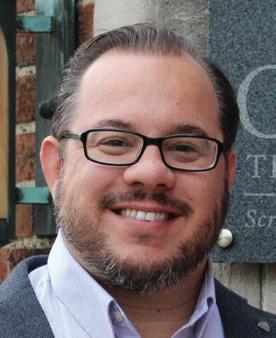
Mark A. Garcia (PhD, Edinburgh University) is associate professor of systematic theology. Garcia is also the founding President and Fellow in Scripture and Theology at Greystone Theological Institute He served as pastor at Immanuel Orthodox Presbyterian Church (Coraopolis, PA) from 2007–2021. He was Senior Member and Post-doctoral Research Associate at Wolfson College and Visiting Scholar in the Faculty of History at Cambridge University from 2006–2007, Honorary Research Fellow at the University of East Anglia from 2014–2018, and has taught theology regularly as an adjunct professor at Westminster and other Reformed seminaries since 2007.
1. Plagiarizing one’s sermons is something which I have yet to see appear on the disciplinary floor of contemporary presbyterian church courts. To read about the trial, see A Vindication of the Reverend Commission of the Synod: in answer to some observations on their proceedings against the Reverend Mr. Hemphill (Philadelphia: Andrew Bradford, 1735).
2. On the Adopting Act, see James R. Payton, Jr., “The Background and Significance of the Adopting Act of 1729,” in Pressing Toward the Mark: Essays Commemorating Fifty Years of the Orthodox Presbyterian Church, ed. by Charles G. Dennison and Richard C. Gamble (Philadelphia: The Committee for the Historian of the Orthodox Presbyterian Church, 1986), 131-145.
3. See Payton for fuller discussion of these points.
4. John Webster, “Confession and Confessions”, in Confessing God: Essays in Christian Dogmatics II (London: T&T Clark, 2005), 83; as quoted by Stafford Carson, “Recovering Reformed Catholicity,” Theology in Scotland 26(S) (2019): 20.
16 | W ESTMINSTER M AGAZINE

greystone theological institute member ship
Hundreds of hours of robust theological content for only the price of a paperback

for only $18 a month
greystone member benefits include
• The entire Greystone course library (with new content added regularly)
• Greystone Reading Room events
• Texts & Studies, a Greystone publication series featuring short studies and serialized new translations of important theological works from Church history
• Biweekly Gleanings newsletters with reading recommendations from experts
• Support for global Reformed theology and ministry
exclusive offer get your first month free with code wtsmag
Old Testament Exegesis ∙ Theological Anthropology ∙ Union with Christ ∙ The Trinity and the Gospel ∙ Hermeneutics ∙ & More! institutional memberships are also available for groups and institutions at a significantly reduced rate
• All benefits of the individual membership, plus:
• Share Greystone course library with students, faculty, alumni, staff, church, etc.
• Discounts on Greystone events and courses, and more! for more info visit greystoneinstitute.org/membership For inquiries regarding our institutional rate, email info@greystoneinstitute.org

TELLING THE TRUE GOSPEL:
The Reception of Christianity and Liberalism in Chinese Churches
Shao Kai Tseng
J. Gresham Machen manuscript page (Christianity and Liberalism)
The Chinese translation of J. Gresham Machen’s Christianity and Liberalism by Samuel Boyle (包義 森, 1905–2002) is of foundational importance for the evangelical church in China. And yet, though published in 1950, this magnum opus did not gain traction until around the 1990s. Then, to satisfy growing demand, a second edition was published in 2003, with a preface by the late Jonathan Chao (趙天恩, 1938–2004), and a third in 2020 along with an e-book version.
A missionary from the Reformed Presbyterian Church of North America, Boyle began translating Machen’s explosive text into Chinese in 1940. According to Chao’s preface, Boyle finished the first draft in about a year, and brought it to Guangzhou in 1947.1 In December 1948, Boyle was introduced to the young Charles Chao, Jonathan’s father, by none other than Lorraine Boettner and Johannes G. Vos.2 Boyle and Chao established the Reformed Translation Fellowship (RTF) Press, and they would work on many projects together in the years to come.
The communist takeover in 1949, with all of its theological implications, exposed an urgent need for the publication of Christianity and Liberalism in China. A form of theological liberalism, which was primarily American rather than German, had made its way to China around the turn of the twentieth century. It was first introduced to Chinese Protestants through organizations like the YMCA, which became active in China as early as the 1870s, and the National Christian Council of China (NCCC, 中華全國基督教協進會), founded in 1913.
Initially intended to include all denominations and missionary organizations in China, the NCCC’s progressive origins and its increasing advocacy for the social gospel soon began to alarm the more conservative leaders of Chinese churches. In 1926, China Inland Mission, founded by the great James Hudson Taylor (1832–1905), withdrew from the NCCC. In 1950, the NCCC adopted a proposal by the social gospel proponent Wu Yao-tsung (吴耀宗, 1893–1979), co-founder of the Three-Self Patriotic Movement,3 to cut off all ties to foreign Christian groups and swear allegiance to the Communist Party. The rise of the communist regime in China was, in this and other ways, the culmination of the kind of progressivism that began to permeate cultural scenes in the nation around the turn of the century, and American theological liberalism was part and parcel of this progressivism.
Conservative church leaders and missionaries in China were opposed to the social gospel to begin with, and they saw the rise of the Communist Party as the culmination of this false theology. They were opposed to the Three Self-Movement as well, because they were opposed to all false gospels. This tenacity for faithfulness is preserved in the widely circulated 1955 article, “We, Because of Faith,” by Wang Mingdao (王明道, 1900–1991), honored by many in the West as the “dean of the Chinese house churches.” 4
In Chao’s view, Christianity and Liberalism was and remains an important response to political life in China.
In his 2003 preface to Christianity and Liberalism, Jonathan Chao commented that the Three-Self Movement had always been characterized by theological “revisionism” that “subjects the Christian faith to the standards of socialism and dialectical materialism . . . emptying the Christian faith of its contents.”5 It was thus of the same nature as the kind of liberal theology imported from America. Chao was thus confident that “this book by Machen remains relevant to Chinese churches of the twenty-first century.” 6 In Chao’s view, in other words, Christianity and Liberalism was and remains an important response to political life in China. This partly explains why, in 1949, Jonathan’s father Charles decided to edit and publish Boyle’s translation—and there were strong indications that conservative church leaders would appreciate its value.
According to Hong Kong-based church historian KaLun Leung (梁家麟), Wang Mingdao’s text, Discerning the True Gospel (《真偽福音辨》), ranks among the most significant pieces of Sinophone Christian literature of the twentieth century.7 And Wang’s book, the title of which, literally translated, is “telling the true gospel apart from the false,” has in fact played somewhat of a similar role
Fall 2023 | 19
in the Chinese context as that of Machen's in America. Wang’s relentless critique of the social gospel would come to represent the definitive watershed between fundamentalism and Liberalism in Chinese Protestantism for decades to come.
Boyle and Chao adopted the “telling the true from the false” rhetoric made popular by Wang for the Chinese title of Christianity and Liberalism, Jidujiao Zhenweibian (《基督教真偽辨》), literally meaning “telling true Christianity from the false,” clearly an allusion to Wang’s influential treatise. And there are many similarities between the two works. Both are polemical. Both were written to defend the gospel. The former sought to refute social gospels from America, and the latter, liberal theology in America.
Christianity and Liberalism is of foundational import to the work of the RTF Press and to the Chinese Reformed movement in general.
There are, however, noteworthy differences as well. The arguments in Christianity and Liberalism are grounded on established academic research. The author spent a year in Germany as a student of theology and had been exposed to the challenges of Liberalism firsthand. The work as such invites critical thinking on the part of the reader.
Discerning the Gospel, by contrast, is didactic and homiletic in its tone, and pietistic in its content. Fraught with threats, warnings, and derogatory remarks against “false prophets,” this treatise offers very little theoretical analysis of the social gospel.
Most conservative Chinese Christians were so accustomed to this style of teaching that they were hardly prepared for a work like Christianity and Liberalism when it was first published in Chinese. Fundamentalist struggles against Liberalism in Chinese Protestant circles were for
the most part driven by pietistic impulses that tended to be anti-intellectual. For decades, fundamentalist Christians in Chinese churches equated the term “theology” with “liberalism,” and deemed all academic and critical attempts at understanding the faith to be apostate. Perhaps that was the only way they knew to defend Christ’s little ones and his true gospel, once they no longer had foreign missionaries to help them.
Evangelical Chinese churches did not hold academic theology in high regard until the 1970s, when a group of Chinese alumni who attended Westminster Theological Seminary in the 1960s, including Jonathan Chao, launched a campaign for theological education. Their work led to the founding of China Evangelical Seminary in Taiwan and the China Graduate School of Theology in Hong Kong, in 1970 and 1975 respectively. The campaign eventually won the support of local churches and foreign missionaries, not least owing to the influence of the 1974 Lausanne Congress and the consequent founding of the Chinese Congress on World Evangelization in 1976.
Jonathan Chao also founded numerous underground theological training centers across mainland China. He and his colleagues at China Missions International brought to the mainland books and cassette tapes featuring sermons and theology seminars by his close friend and ally, Stephen Tong (唐崇榮), whose contribution to the popularization of Reformed theology in Chinese churches remains unparalleled. The once-seemingly obsolete publications of the RTF Press suddenly became widely circulated among Chinese Christians in mainland China and beyond in the 1990s.
Despite its quiet rise to prominence, today Christianity and Liberalism is of foundational import to the work of the RTF Press and to the Chinese Reformed movement in general. Not only was it the first book ever published by the press, but it was also the first Chinese publication of a theological volume that presents an intellectual and critical way of clarifying and defending sound doctrine.
Regrettably, receptions of the work in Chinese contexts up to our own day have not always reached the author’s intended results. To honor Machen’s classic, then, I shall conclude by way of two caveats.
Machen’s intent is stated at the very beginning of the treatise:
20 | W ESTMINSTER M AGAZINE
The purpose of this book is not to decide the religious issue of the present day, but merely to present the issue as sharply and clearly as possible, in order that the reader may be aided in deciding it for himself. Clear-cut definition of terms in religious matters, bold facing of the logical implications of religious views, is by many persons regarded as an impious proceeding…, but it is always beneficial in the end.8
Despite this explicit statement, many Chinese readers, and in fact many American readers as well, still approach the work with an anti-intellectual mindset. The polemical tone of the book easily appeals to the fundamentalist mind that regards “clear-cut definition of terms” and analyses of “the logical implications of religious views” as “an impious proceeding.” Critical analyses in the book can easily be overshadowed by the polemics for the fundamentalist reader who, after having read the book, still regards fair-minded theological debate with suspicion. A striking phenomenon is that many Chinese church leaders have presented Christianity and Liberalism with the kind of derogatory rhetoric found in Discerning the Gospel. One widely circulated online review, for instance, describes “Machen” as “making fun” or “laughing at” the “failed attempt of the new theology,” and “liberalism” as “wishful thinking [一廂情願],” “poison to the soul,” “pathetic and ludicrous [啼笑皆非],” “apostate,” and “entirely bankrupt.” 9 This way of defending the faith, I am afraid, runs contrary to the intent of the author.
My second caveat applies to both Chinese and American readers: we must avoid relying on Machen’s volume as if it were an inspired text. Its context is significant. For one thing, Christianity and Liberalism was in large part a response to a specific sermon by Harry Emerson Fosdick (1878–1969), titled “Shall the Fundamentalists Win?”10 And so the form of Liberalism that Machen sought to address was a specific brand of American theology. Schleiermacher is not mentioned at all, and the only mention of Kant reflects a now debunked mischaracterization of Kant’s critique of metaphysics as an “attack upon the theistic proofs.”11 Machen’s criticisms, then, can hardly apply to every strand of liberal theology that has influenced America and China today.
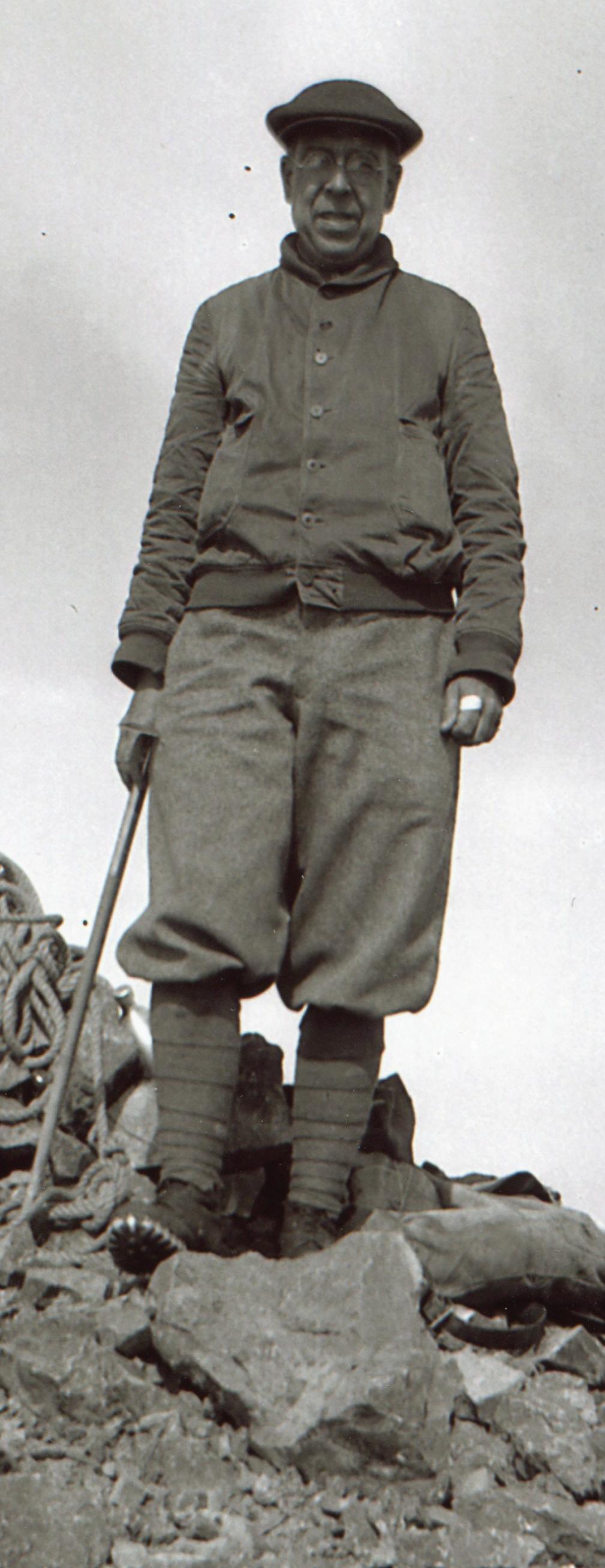
Machen the mountaineer
Fall 2023 | 21
Liberalism was not monolithically guided by ‘Enlightenment naturalism.’ In fact, some liberal theologians like Ernst Troeltsch (1865–1923), rejected the kind of naturalistic consciousness characteristic of the later Ritschlians and sought to honor the immanence of divine revelation in history—however much that immanentization went too far. Naturalistic consciousness—what Weberians have described in terms of “disenchantment”—was only a first moment in the development of theological modernism. A second and more predominant moment was that of re-enchantment, the sacralization and transcendentalization of nature and history, to borrow from German sociologist Hans Joas.
Academic theologians and seminary students today should follow Machen’s example and study Liberalism for themselves.
This is a relevant note for our own day because this re-enchanting form of liberal theology, once espoused by German theologians like Troeltsch and Emanuel Hirsch (1888–1972), has re-appeared in some conservative Christian circles in America under rubrics such as “Christian nationalism.” If our understanding of theological liberalism remains too narrowly focused on the naturalistic modernism addressed in Christianity and Liberalism, we can easily miss grave ideological dangers that are right under our noses.
Machen has run the good race. His work remains pertinent to churches worldwide even a century after its initial publication. Academic theologians and seminary students today should follow Machen’s example and study Liberalism for themselves. His express intent was never to do the homework on Liberalism
for us, but rather to call each one of us to do our own homework and continue to engage Liberalism, and any theological aberration whatsoever, with academic seriousness and integrity, so that we might, in the words of brother Wang Mingdao, tell the true gospel apart from the false.

Shao Kai (“Alex”) Tseng (MDiv, Regent College; ThM, Princeton Theological Seminary; MSt, DPhil, University of Oxford) is research professor in the philosophy department of Zhejiang University in Hangzhou, China. He is the author of Karl Barth’s Infralapsarian Theology and Barth’s Ontology of Sin and Grace, as well as books on Hegel, Kant, and Barth in the Great Thinkers series (P&R), and a contributor to the Oxford Handbook of Nineteenth-Century Christian Thought.
1. J. Gresham Machen [梅晨], Christianity and Liberalism [基督教真 偽辨], ed. Charles Chao [趙中輝] and John Shen [沈其光], trans. Samuel Boyle [包義森] (Taipei: CRTS Books [改革宗出版社], 2020), 11.
2. Ibid., 12.
3. A Chinese government organization devoted to the removal of foreign influence in the church.
4. Wang Mingdao [王明道], “We, Because of Faith [我們是為了信 仰],” in The Wang Mingdao Collection [王明道文庫], volume 7 (Taichung: Conservative Baptist Press, 1998), 320.
5. Ibid., 16.
6. Ibid., 15.
7. Wang Mingdao [王明道], Discerning the True Gospel [真偽福音辨] (Taichung: Morning Star, 2000). See Ka-Lun Leung, “A Hundred Years of Sinophone Christian Writing [百年回顧:華人基督 徒著作],” in Faith Monthly 6 (August 2003): http://www.godoor .com/xinyang/article/xinyang6-11.htm (accessed 21 July, 2023).
8. J. Gresham Machen, Christianity and Liberalism (Grand Rapids: Eerdmans, 2009), 1.
9. See Li Xian [李賢], “New Theology or Fake Theology? A Review of Christianity and Liberalism [新神学还是假神学? 《基督教真 伪辩》书评],” Christian Sermons [基督教講道網], http://www .jiangzhangwang.com/shenxue/22656.html (accessed 22 July 2023).
10. Mark Noll, A History of Christianity in the United States and Canada (Grand Rapids: Eerdmans, 1992), 343–344.
11. Machen, Christianity and Liberalism, 50.
22 | W ESTMINSTER M AGAZINE
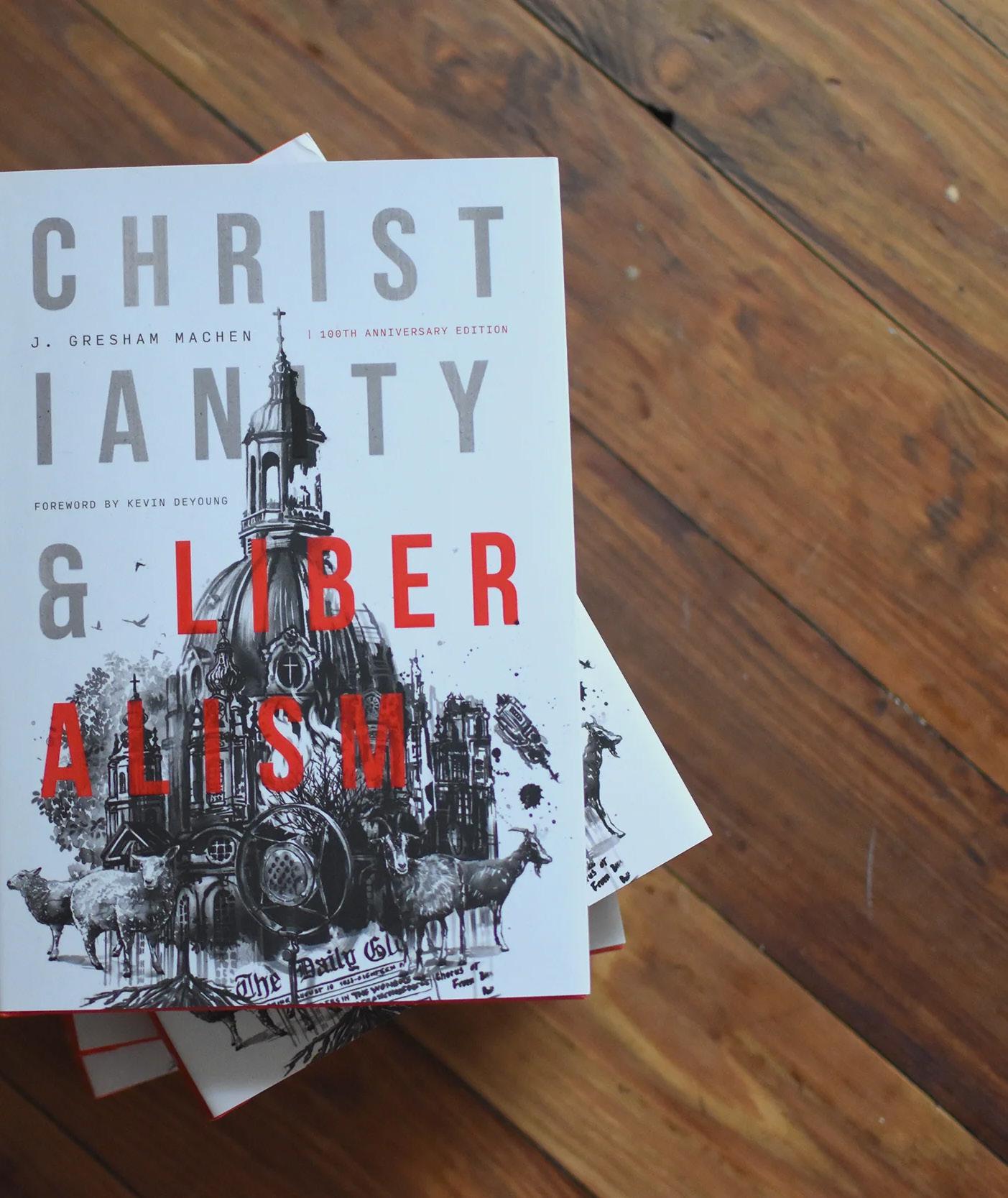
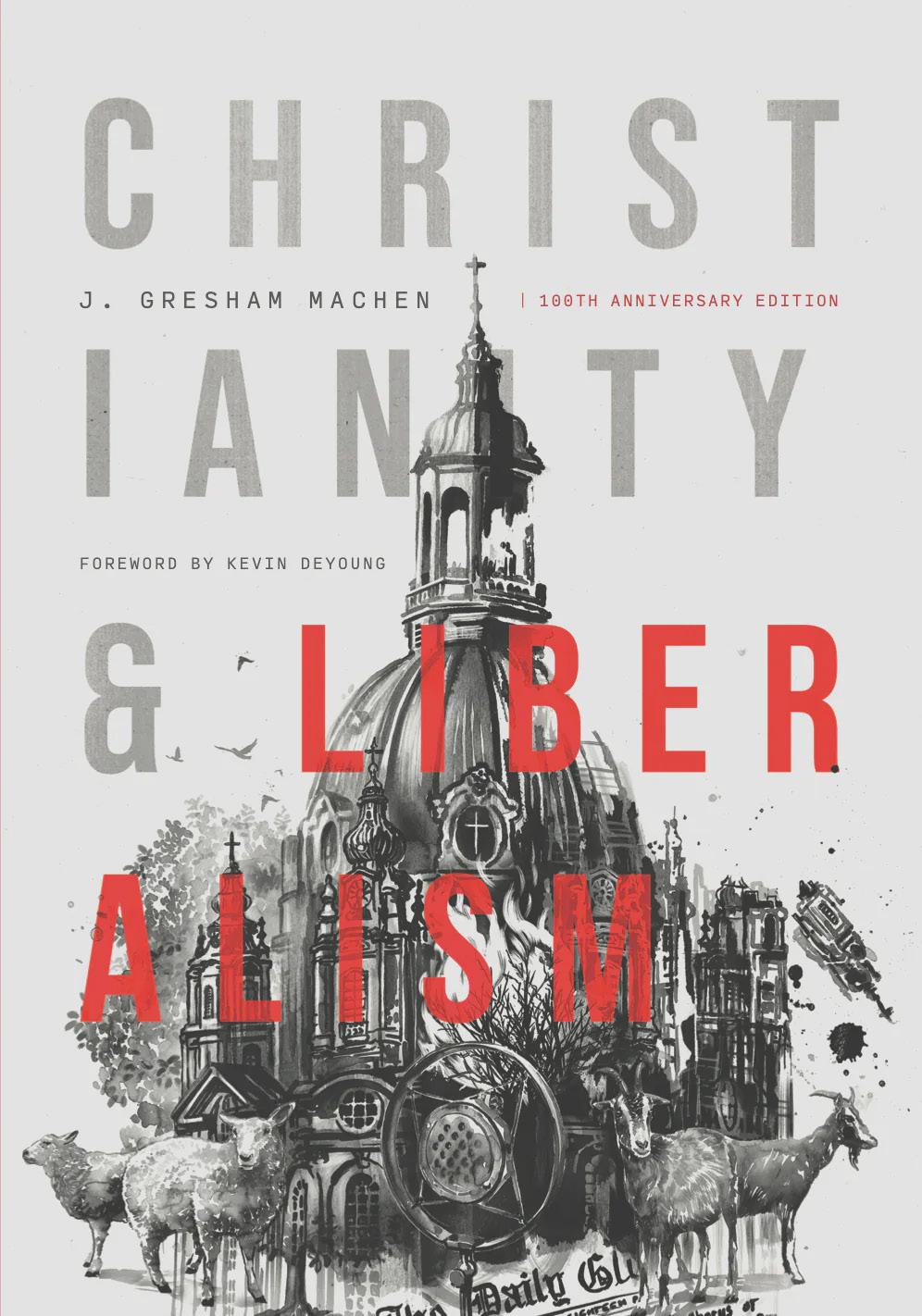


IT’S BEEN 100 YEARS. WHY
YOU READ CHRISTIANITY & LIBERALISM YET?
edition
hope
one
reformation
renewal. Visit christianityandliberalism.com to learn more
HAVEN’T
Now available in a new
with the
that this next century will be
of
and

KUYPER’S CAUTION :
Remain Faithful to Christ in Cultural Conflict
William R. Edwards
Mikhail Konstantinovich Clodt, In The Fields (1872)
Sermons often do not age well. Assuming the exegesis of Scripture is faithful, the preacher’s context has nonetheless changed. Thus, it is typically ill-advised to take a sermon preached years-past and simply re-present it with the expectation that it will apply equally well in a different place and time for different people. If this is true for sermons pastors preach over the course of their own ministries, how much truer for a sermon preached more than one hundred and fifty years ago? And yet, Abraham Kuyper’s 1870 sermon, “Conservatism and Orthodoxy: False and True Preservation,” retains a contemporary ring worthy of renewed interest, especially for American Christians.1
Kuyper’s sermon, of course, has a specific context of its own. This was his final sermon preached at the church he pastored in Utrecht as he was departing for a church in Amsterdam. His brief three years in Utrecht had proved increasingly difficult, not due to typical pastoral problems that had turned personal but to broader cultural matters and differences as to how they should be approached. According to James Bratt, Utrecht was the “capital of national ‘God and Country’ conservatism” within the Netherlands of the late nineteenth century.2 Kuyper was initially seen as an ally in that conservative cause, leading to his call there. However, Kuyper identified a confusion between the priorities of the church and the preservation of cultural power, leading to a parting of ways. The conservatives in Kuyper’s context valued the institution of the church foremost for its social influence. Kuyper argues this disregards the true essence of the church, as distinct from other social institutions, with the result of diminishing the church’s deeper impact on society.
Perceiving the church as an instrument of a conservative social agenda resonates in our day. Those on the right and those on the left may reduce the church to a mere cultural force, as either a friend or a foe to its own agenda. Contemporary caricatures of so-called Christian nationalism abound, favorably promoted by some while fearfully portrayed by others. Of course, Kuyper’s historical context is different from our own. We should not expect a direct correlation between his time and ours regarding matters related to the church or the culture. However, there are points of comparison. And more importantly, as Kuyper addresses the issues of his own day, he provides a theological vision for the church that countered the social constructs of both the
conservative and progressive causes of his time, which may serve us in our own.
The Problem of the Church: The Primary Problem of the Day
In his departing sermon at Utrecht, Kuyper claimed that “the problem of the church” is “the primary problem of the day.”3 Even more strongly, Kuyper states that “the problem of the church is none other than the problem of Christianity itself.”4 This conviction is evident across Kuyper’s writings, from his first published work to his final articles.5 Some of the problems Kuyper addresses are unique to the Netherlands in the nineteenth century. They concern the status of a national church with a complex history between “Christianity and Dutchness” where “church and nation were tightly interwoven.”6 The entangled relationship between church and state had implications for church oversight, church property, church membership, and the calling and paying of church pastors. While Kuyper spoke to these various problems, he believed that the problem itself was more substantial, which concerns the church’s core identity in God’s redemptive purpose, and how that identity must in turn determine its relationship to the world.
The church’s form cannot be derived from worldly power structures but must arise from its own life in relation to Christ.
Kuyper is well-known for distinguishing the church’s essence from its form, typically using the category of organism to describe the essence of the church and institution to address its form.7 Kuyper criticizes those conservatives who valued the church for its cultural capital and institutional weight while neglecting the vitality of the church which is found in its essence as the living body of Christ.8 This vitality gives the church its true power and influence in the world. Kuyper characterizes the conservatives of his day as “committed to externality”
Fall 2023 | 25
and “infatuated with the surface of things.” 9 However, the church is “a unique organism and requires a unique institution.”10 The church’s form cannot be derived from worldly power structures but must arise from its own life in relation to Christ. Essence and form, organism and institution, must not be torn asunder.
Kuyper’s distinction between the church as organism and the church as institution has been the source of much discussion.11 According to Bratt, Kuyper’s “theory moved from his earlier institute-organism distinction to an institute-organism opposition.”12 Earlier, as evident in his departing sermon at Utrecht and his inaugural sermon at Amsterdam, the inseparable relationship between organism and institution is prioritized. Kuyper uses the analogy of a snake’s protective skin, which is “a result of the vitality of the life which manifests itself at every point on its surface.”13 This external feature is both dependent on and essential to the living organism as the institutional church is to its organic life. He also uses the example of a river and its banks: the flowing waters analogous to the vital life of the church and the banks that carry its current similar to the church’s institutional form, preventing its flow from dispersing and halting its course.14 As Kuyper says, “From the organism the institution is born, but also through the institution the organism is fed.”15 Both are essential and function together.
Kuyper’s later writings, however, portray a problematic relationship between the church as an organism and as an institution, which has led to criticism.16 Yet it should be recalled that Kuyper initially develops the distinction in seeking to solve “the problem of the church,” in response to those who merely valued the institution of the church in relation to its relative usefulness in addressing wider social concerns while neglecting its life-giving essence. While Kuyper was also critical of modernism, as will be noted below, the more immediate threat to the life of the church he believed to be conservatism, at which he takes aim as he departs Utrecht.
The Spirit of Conservatism Contrasted with the Vital Life of the Church
The text for Kuyper’s sermon is taken from Revelation 3:11, “Hold fast to what you have, so that no one may seize your crown.” The verse is wellsuited for Kuyper’s careful critique. The exhortation to
“hold fast to what you have” commends, even commands, a type of conservatism. Careful preservation is required. Christianity possesses a conservative impulse. After all, Kuyper says, “Christianity came to save.”17 This stands in contrast to a revolutionary impulse: “Revolution demolishes and destroys.”18 Those who embrace revolution, Kuyper says, “rave about a better world.”19 We might think of the progressive spirit of our own day, both outside and inside the church, which seeks to deconstruct all that is part of the past and put something new in its place. Kuyper, though, says this is not the approach of Christianity, which resurrects the existing body to new life. The gospel does not destroy and replace but redeems and renews.
If the vitality of the church is derived from past forms rather than Christ’s present work, a dangerous sort of conservatism may have taken hold.
This conserving impulse of Christianity, however, may attract the church toward a type of conservatism that is opposed to genuine orthodoxy. Christianity and conservatism are both concerned with preservation, but they differ in what they aim to preserve. Whereas Christianity holds fast to the principle of life that is found in Christ alone, mere conservatism aims to preserve the life it currently possesses in the present age. “To be conservative in that sense,” says Kuyper, “is to block Christianity from pursuing its goal,”20 which is not the life we’ve presently attained, but an increasingly renewed life, through persevering faith in Christ. According to Kuyper, false conservatism fails to recognize the overwhelming impact of sin and therefore “seeks to dam up the stream of life, swears by the status quo, and resists the surgery needed to save the sick.”21 Conservatism, like progressivism, is uninterested in a gospel that redeems and renews.
26 | W ESTMINSTER M AGAZINE
Instead, it seeks safety in maintaining its social status rather than pursuing a salvation that counters sin and calls us to new life.
In the conflict with the revolutionary threat of progressives, the church may be tempted to make an alliance with a form of conservatism that is contrary to the renewing work of Christ. Kuyper warns that “many are joining our ranks whose goal is not, as is ours, the victory of Christianity but merely the triumph of conservatism.”22 These may be identified through their strategies. Conservatism that is counter to Christianity is satisfied to repristinate both church and culture based on a prior age. “If only we could have lived then!”23 If the vitality of the church is derived from past forms rather than Christ’s present work, a dangerous sort of conservatism may have taken hold. Lacking the ability to repristinate, conservatism aims to preserve “that which is still left of the legacy.”24 Or if all else fails, content itself with the ever-diminishing features that remain.25 The strategy of conservatism is to hold tight, but this inevitably ends in disappointment. “‘Always flow and never reverse yourself’ is the high decree that the Creator himself laid down for the stream of time.”26 In contrast to these conservative strategies, Kuyper says one must “first seek to have for yourself the life your fathers had,” and, “Then articulate that life in your own language as they did in theirs.”27
As noted above, Kuyper’s critique of conservatism does not place him within the progressive camp of his day. A year after his Utrecht sermon critiquing conservatives, he delivered a lecture exposing the ephemeral nature of modernism, referring to it as a “Fata Morgana,” an image that appears on the horizon that has no true substance of its own but is a reflection of a distant object through the refraction of light.28 Its transient existence depends on the presence of something else. Modernism has this character. Its existence depends on the truth that Christianity alone provides. However, though conservatism and modernism appear diametrically opposed, Kuyper argues that the conservatism he critiques helps create the atmospheric conditions for modernism. According to Kuyper, such apparitions appear in “times of spiritual aridity in which no fresh breeze could blow through the heart of the nation,” claiming that when “the spiritual atmosphere has the right kind of ferment, then heresy is bound to appear.”29 Surprisingly, status quo conservatism, which aims to repristinate the past, shares the blame for modernism as an inevitable response. In
fact, Kuyper believed modernism was a blessing for this very reason, awakening the church from its conservative slumber. Kuyper says that “without the Modernists we would still be groaning under the leaden weight of an all-killing Conservatism,” and for this reason, “Modernism has saved orthodoxy in the church of Jesus.”30
The church must labor to preserve and defend the historic facts on which the Christian faith depends, including Christ’s incarnation, death, and resurrection, as recorded in God’s word.
The conservative impulse of orthodox Christianity preserves the essence of the church rather than non-essential aspects in its various historical manifestations. The essence of the church is the principle of life that is present in Christ alone, expressed corporately in its own historical context.31 Therefore, according to Kuyper, the church must labor to preserve and defend the historic facts on which the Christian faith depends, including Christ’s incarnation, death, and resurrection, as recorded in God’s word.32 Rather than embodying ideals, these essential realities give shape to our present lives through his Spirit. The church is not to live as a vestige from a past age with an excessive “attachment to tradition” but instead “seeks to preserve what is in terms of what it will become in Christ, that is resurrected from the dead.”33 The true conservatism of orthodox Christianity looks not only to the past but longs for the future: “It looks at what is, not as it now exhibits itself, but as it will one day in eternity unfold its true glory.”34 In this way, the Christian church alone answers the desires of both conservatism and progressivism which they can never themselves satisfy. And when the church lives according to these convictions concerning the past,
Fall 2023 | 27
the present, and the future, it will then impact the surrounding culture with the “vitality flowing from [an] orthodoxy that arouses others to jealousy.”35 Kuyper claims “that the reign of orthodoxy builds up the church” but also “causes the leaven of Christianity to ferment in the life of the city.”36
Attending to Kuyper’s Sermon in Today’s Church
Kuyper exhorts the church, “Hold fast to what you have, so that no one may seize your crown” (Rev. 3:11). And yet this call to hold fast must be distinguished from mere conservative attempts to hold tight to a social status amidst the changing power structures of the world. Several consequences resulting from Kuyper’s distinction between conservatism and orthodoxy, “terms which are often confused,”37 may be considered regarding how the church should reflect on its relationship to the surrounding culture.
First, the church must provide a full and fair critique consistent with Christian convictions. Kuyper notes the strong temptation to simply choose sides, especially when conservatism “has consistently proved inclined to protect a firm religious outlook against skepticism.”38 A danger, however, is that the church plays second-chair in support of a cultural agenda that diminishes its full voice in speaking to the heart of the matter evident in the affairs of our day. Kuyper is an equal critic of both conservative and progressive sides in his own context. He pointedly exposes their flaws and failures, rooted in their refusal to accept the deeper nature of sin and the necessity of the sovereign saving grace of God to which the conflicts of every age witness. Kuyper’s sermon also models how the church must be self-critical, aware of a dangerous attachment to tradition which is “more tangible than the everlasting which lies ahead.”39 The church must be reminded of its pilgrim status in this age and not place its hope in worldly alliances. While seeking the welfare of the city (Jer. 29:7), we should never confuse it with our home (Jer. 29:10–14).
Second, the church must contend foremost for the matters of first importance, which Kuyper identifies as the principle of life found in Christ and manifest in his body on earth, the church. The essence of the church must be maintained above all, grounded in the saving grace of God which “does not arise from this earth, but
instead breaks in upon the earth.”40 This does not mean that the institutional form of the church is insignificant. It too must be governed according to Scripture as a matter of faith. However, aspects of the church’s outward form, expressed in various traditions, are coincident with the church’s historical context. Contention over such matters creates a party spirit within the church which mimics worldly divisions. The church must guard against this, for as Kuyper asks, “Can there be inner piety as long as on both sides . . . the fiercest partisanship sweeps everyone away with its current?”41 The world should witness something better in the church.
Third, rather than pining after a former age, the church must cultivate the life of faith in its own cultural moment. This includes providing principled and persuasive analysis related to the issues of the day. Faith is not a private matter. However, rather than pursuing power, the church should have a posture of service. As he criticizes the wedding of church and state in prior eras, Kuyper concludes, “Precisely because the church wanted to dominate, it did not dominate the nations, and only if it is willing once again to serve will it win back its dominion.”42 The church’s influence increases through compassionate service coupled with compelling speech. According to Kuyper, “The church must especially battle against sin.”43 However, sin and its effects must not be considered merely at the individual level. The consequences are far reaching as expressed in the curse following Adam and Eve’s fall. “Above all,” says Kuyper, “let our church not ignore the great social issues of promiscuity, overpopulation, labor, and poverty.”44 Although some of these may appear on progressive agendas, they are not to be neglected for that reason. Cultivating the life of faith considers the wide reach of Christ’s gracious Lordship, far as the curse is found, yet with a hope that anticipates his return. May it be said one day that “the shapers of the popular mind increasingly realized that with the revival of the faith the church again had to be reckoned with.”45
Conclusion
We may quibble with aspects of Kuyper’s analysis, whether features of his church schema or facets of his cultural critique. However, the dangers he notes are relevant to our own day. There are ways in which “the problem of the
28 | W ESTMINSTER M AGAZINE
church” remains “the primary problem of our day,” even “the problem of Christianity itself.” The church in every age must guard against aligning itself with worldly alternatives to Christ’s purpose for his church, which is grounded in his saving work. In their visions of the past, their proposed solutions for the present, as well as their hopes for the future, both conservativism and progressivism merely parody aspects of the salvation that Christ himself has secured, and in so doing they pervert his gospel. The most significant challenge the church faces in every age does not arise from the world but in whether our response to this world is faithful to the Lord.

William R. Edwards (DMin, Westminster Theological Seminary) is Associate Professor of Pastoral Theology and Dean of Students at Westminster Theological Seminary. Dr. Edwards is ordained in the Presbyterian Church in America. Previously, he served as the pastor of Mercy Presbyterian Church in Forest, Virginia and with Reformed University Fellowship at the University of Georgia.
1. Abraham Kuyper, “Conservatism and Orthodoxy: False and True Preservation,” in Abraham Kuyper: A Centennial Reader, ed. James D. Bratt (Grand Rapids: Eerdmans, 1998), 65–85.
2. James D. Bratt, Abraham Kuyper: Modern Calvinist, Christian Democrat (Grand Rapids: Eerdmans, 2013), xxvii.
3. Kuyper, “Conservatism and Orthodoxy,” 67.
4. Kuyper, “Conservatism and Orthodoxy,” 69.
5. Henry Zwaanstra, “Abraham Kuyper’s Conception of the Church,” Calvin Theological Journal 9, no. 2 (1974): 149.
6. John Halsey Wood, Going Dutch in the Modern Age: Abraham Kuyper’s Struggle for a Free Church in the Nineteenth Century Netherlands (New York: Oxford University Press, 2013), 14.
7. In his sermon, “Conservatism and Orthodoxy,” Kuyper uses the language of essence and form though not organism and institution. He introduces the latter terms in his inaugural sermon at Amsterdam, preached soon after, titled, “Rooted and Grounded,” published in Abraham Kuyper, On the Church, ed. John Halsey Wood and Andrew M. McGinnis (Bellingham, WA: Lexham Press, 2016), 44–73.
8. Kuyper, “Conservatism and Orthodoxy,” 67.
9. Kuyper, “Rooted and Grounded,” 63.
10. Kuyper, “Rooted and Grounded,” 60.
11. See Bratt, Abraham Kuyper, 184–86; Henry Zwaanstra, “Abraham Kuyper’s Conception of the Church,” 149–81; Daniel Strange, “Rooted and Grounded? The Legitimacy of Abraham Kuyper’s Distinction Between Church as Institute and Church as Organism,” Themelios 40, no. 3 (2015): 429–44.
12. Bratt, Abraham Kuyper, 186.
13. Kuyper, “Conservatism and Orthodoxy,” 82.
14. Kuyper, “Rooted and Grounded,” 57.
15. Kuyper, “Rooted and Grounded,” 56.
16. See, for instance, Zwaanstra, “Abraham Kuyper’s Conception of the Church,” 180.
17. Kuyper, “Conservatism and Orthodoxy,” 69.
18. Kuyper, “Conservatism and Orthodoxy,” 70.
19. Kuyper, “Conservatism and Orthodoxy,” 70.
20. Kuyper, “Conservatism and Orthodoxy,” 71.
21. Kuyper, “Conservatism and Orthodoxy,” 71.
22. Kuyper, “Conservatism and Orthodoxy,” 72.
23. Kuyper, “Conservatism and Orthodoxy,” 73.
24. Kuyper, “Conservatism and Orthodoxy,” 74.
25. Kuyper, “Conservatism and Orthodoxy,” 76.
26. Kuyper, “Conservatism and Orthodoxy,” 73–74.
27. Kuyper, “Conservatism and Orthodoxy,” 74.
28. Abraham Kuyper, “Modernism: A Fata Morgana in the Christian Domain,” in Abraham Kuyper: A Centennial Reader, ed. James D. Bratt (Grand Rapids: Eerdmans, 1998), 87-124.
29. Kuyper, “Modernism: A Fata Morgana,” 97, 99.
30. Kuyper, “Modernism: A Fata Morgana,” 119.
31. Kuyper, “Conservatism and Orthodoxy,” 81.
32. Kuyper, “Conservatism and Orthodoxy,” 79.
33. Kuyper, “Conservatism and Orthodoxy,” 72, 80.
34. Kuyper, “Conservatism and Orthodoxy,” 80.
35. Kuyper, “Conservatism and Orthodoxy,” 84.
36. Kuyper, “Conservatism and Orthodoxy,” 84.
37. Kuyper, “Conservatism and Orthodoxy,” 69.
38. Kuyper, “Conservatism and Orthodoxy,” 72.
39. Kuyper, “Conservatism and Orthodoxy,” 72.
40. Kuyper, “Rooted and Grounded,” 53.
41. Kuyper, “Rooted and Grounded,” 65.
42. Kuyper, “Rooted and Grounded,” 66.
43. Kuyper, “Rooted and Grounded,” 69.
44. Kuyper, “Rooted and Grounded,” 69.
45. Kuyper, “Conservatism and Orthodoxy,” 67.
Fall 2023 | 29

Extraordinary in the Ordinary
Not even a leaf falls to the ground but by the sovereign hand of our mighty God. In the ordinary, there are scintillations of the extraordinary. This biblical truth applies to everything, even our giving. For more than 90 years, Westminster has relied on the generous (and unique) support of Christians around the world. Given in memory of dear friends, Mr. Griggs’ gift of $1000 (more than $20,000 in today’s value) at a critical time in our history supported Westminster’s cause to train “experts in the Bible.”

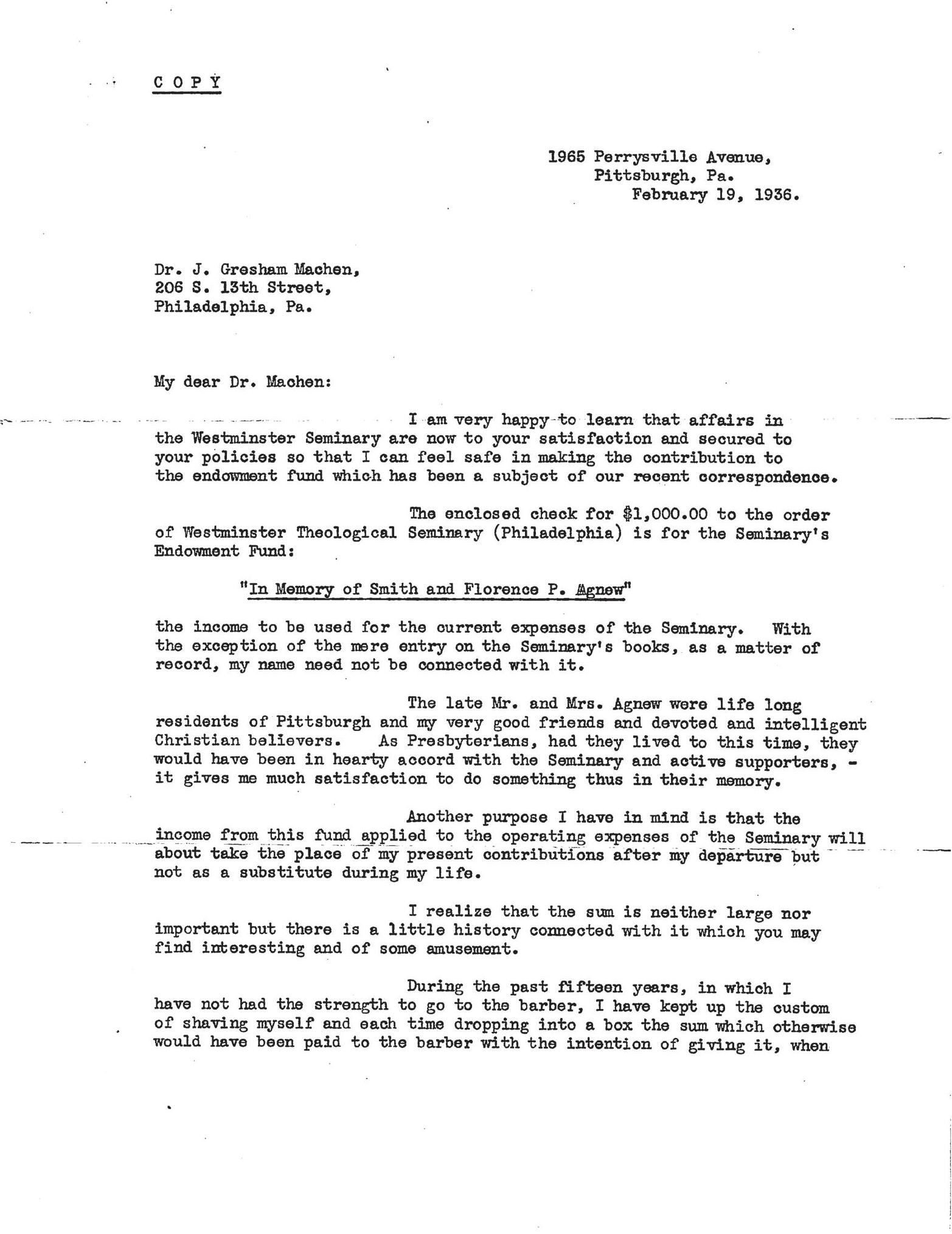




In these times of adversity, prayerfully consider partnering with us as we seek to raise up ardent defenders of the truth, like J. Gresham Machen, equipped for the task of gospel ministry.


To learn more, visit wts.edu/give or call 215-572-3830 to speak to one of our Stewardship Officers.
WESTMINSTER NEWS & EVENTS
z Westminster’s Fall Term Convocation took place on Wednesday, September 6th. It was an immense pleasure to listen to Stephen Tong, a seasoned evangelist, pastor, and teacher, preach a timely sermon on the importance and necessity of considering the nature and scope of the call to gospel ministry. You can listen to this special convocation message by visiting Westminster’s YouTube page.
z In September, Westminster Theological Seminary was pleased to partner with Santiago Theological Seminary for a special conference on apologetics, “En Defensa de la Verdad.” Faculty and staff from Westminster, namely, Dave Garner, Nate Shannon, and Stafford Carson gave articulate lectures on defending the faith in our modern context.
z Point of Contact, a new newsletter initiative, began in October. This communication from the Office of the President of Westminster Theological Seminary is important, for it engages pressing cultural and theological issues that are affecting the Christian in the world and in the Church. You can subscribe to Point of Contact by visiting wm.wts.edu
z The 2023 Westminster Conference on Science and Faith occurred on September 29th–30th at Covenant Fellowship Church in Glen Mills, Pennsylvania. Mark Garcia, Vern Poythress, Dave Garner, and Michael Denton explored the scientific and theological contours of notable anthropological questions, such as those of human identity, uniqueness, and design.
z Westminster Theological Seminary’s Annual Conference on Preachers and Preaching occurred on October 17th, 2023. This year’s topic was “The Pastor as Theologian.” Guests included Kevin DeYoung, Matthew Roberts, and Stephen Nichols. The lectures will be made available on Westminster’s YouTube page in the near future.
z Westminster Theological Seminary was pleased to host “Desiring Truth: A Civil Discourse on which
Christians Disagree—Sexual Identity in Scripture” in Holland, Michigan, on October 20th–21st. This special moment for dialogue involved two local pastors, moderated by a professor-pastor.
z A brand new Westminster Media website (wm.wts .edu) launched in early October. This new website hosts all Westminster-related media. With a view to fostering the Westminster community, the Media team is also soliciting new articles and reviews for publication. Should you be interested in this effort, please write to the Office of Communications (communications@wts.edu)
z The Craig Center for the Study of the Westminster Standards continues to host its academic seminars throughout the academic year. Please visit craigcenter. wts.edu for more information about its calendar of events.
z Join Westminster at its Seminary on Saturday events, which occur the first Saturday in November, 2023 and in May, 2024. More information is available at Westminster’s Eventbrite page.

32 | W ESTMINSTER M AGAZINE
Why is 666 the number of the beast?
Westminster’s 100% online Master of Arts in Theological Studies equips non-vocational ministry professionals and ministry leaders with a strong theological foundation, enabling them to serve with confidence and apply Scriptural truths to their life, work, and ministry.
Complete in as little as 1.5 years.
Self-guided study only goes so far. wts.edu/mats

FACULTY NEWS & UPDATES

Stephen Coleman traveled to Indonesia in October to teach a course on “Introduction to OT Biblical Theology” and to deliver a public lecture in celebration of his appointment to the Stephen Tong Chair of Reformed Theology, which is entitled “Where Shall Wisdom be Found? A Theme of the Book of Job and its Redemptive Historical Context.”

Brandon Crowe had a recent publication released with Lexham Press in October entitled The Lord Jesus Christ: The Biblical Doctrine of the Person and Work of Christ. He has four forthcoming articles in The Dictionary of the New Testament Use of the Old Testament (ed. G. K. Beale, D. A. Carson, Benjamin Gladd, and Andrew Naselli), published by Baker, in November. Also, in the spring of 2024, Brandon has a full-scale commentary on James, and a popular-level biblical theology on the same book also due to be published by Lexham Press.
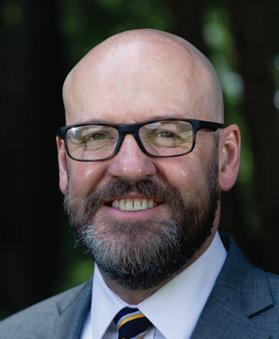
John Currie has an upcoming publication with Crossway (spring 2024) entitled The Pastor As Leader: Principles and Practices for Connecting Preaching and Leadership (Crossway). John is preaching at Lansdale Presbyterian Church (PCA) for Reformation Sunday (October 29th), and a lecture at the Lampstand conference on church revitalization at Briarwood Presbyterian Church in Birmingham, AL (January 18–21). He and his wife Rhonda welcomed their eighth grandchild this fall.
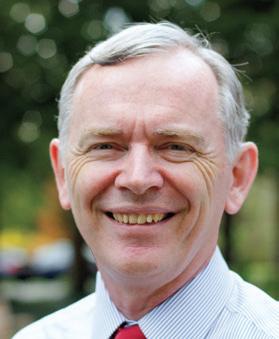
Iain Duguid ’s Sunday School curriculum The Quarterly, which covers Luke’s gospel, will be released in November. This addition builds upon the earlier editions which surveyed Psalms, 1–2 Samuel, and Jeremiah & Ezekiel. Visit arpbookstore.com to see these works.
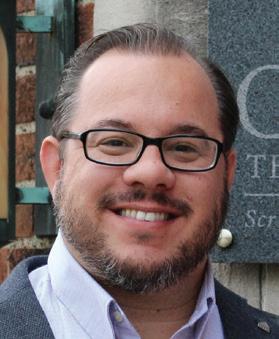
Mark Garcia has a forthcoming essay for the T&T Clark Handbook on Neo-Calvinism (ed. N. Gray Sutanto and Cory Brock) on the “artes mechanicae” of Hugh of St. Victor applied to the anthropology and pedagogy of Herman Bavinck. Mark also has an upcoming article on J. J. Von Allmen and Reformed Preaching, which is due out in a forthcoming issue of Unio Cum Christo. Mark gave a lecture at the Westminster Conference on Science and Faith entitled “Form and Meaning in Relationship: ‘Male and Female’ Humanity, Semiotic Physiology, and the Theological Metaphysics of Scientific Inquiry.” Finally, Mark was recently appointed the Special Envoy of the World Evangelical Alliance for ecumenical discussions with the “Old” Oriental Orthodox Churches, which are the oldest continuing churches in the world. He will meet several times per year with the leadership of the Oriental Orthodox Churches in Egypt, and appoint and lead a team of international scholars who specialize in one or more of the areas of key concern in the relationship between the Reformed churches and the Oriental Orthodox. These discussions will explore Scripture and tradition, the biblical canon, developments in monophysite and dyophosite Christology, priesthood and the ministry, and related topics.
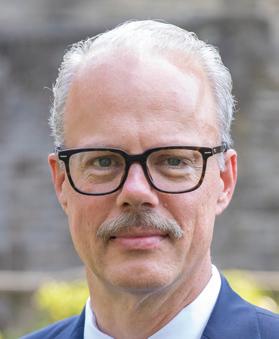
Dave Garner recently participated in a number of conferences, including Westminster’s joint conference with Santiago Theological Seminary called “Defense of the Faith” (September 22–23), and the Conference on Biblical Anthropology (October 6–8) at Spruce Creek Presbyterian Church in Port Orange, Florida. In November (10–11) Dave will speak at the Quakertown Conference on Reformed Theology with a series of lectures: “Remember Jesus Christ” and “Wake up! Restoring Sobriety in an Age of Drunkenness.” Dave has an upcoming publication due out in November 2023, a collection of Richard B. Gaffin, Jr.’s essays, titled Word & Spirit
34 | W ESTMINSTER M AGAZINE

Jonathan Gibson recently published several books: 2 Peter: Living with the End in Mind and O Come, O Come Emmanuel, the second in a liturgical devotional series from Crossway. The third volume, O Sacred Head, Now Wounded: A Liturgy from Pascha to Pentecost is due out in 2024. Jonathan also gave several lectures, including a lecture at Bethel OPC in October, entitled “Reformation Worship: Why We Do What We Do in Church.” He is currently preparing material for an Old Testament module for Project A, an initiative at Westminster.
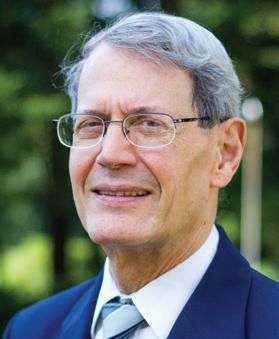
Vern Poythress has two upcoming publications. The first is Biblical Typology: How the Old Testament Points to Christ, His Church, and the Consummation, which is scheduled for publication in the spring of 2024 with Crossway. The second is Making Sense of the World: How the Trinity Helps to Explain Reality, which is due
out with Presbyterian and Reformed Publishing in the spring of 2024.

Todd Rester is working on a variety of publications. The Dutch Reformed Translation Society through Reformation Heritage Books recently published volume 4 of Petrus van Mastricht’s Theoretical Practical Theology: Redemption in Christ, a seven-volume project where he serves as lead translator. He is also the editor and occasional translator on the Historic Texts of Reformed Theology with Westminster Seminary Press. Volume 1 is a critical transcription and translation by Dr. Harrison Perkins of heretofore unpublished theological treatises of Bishop James Ussher, which is expected to be in publication in the Spring of 2024. Volume 2 is a critical transcription and translation by Dr. Rester of Petrus van Mastricht’s Theoretical-Practical Syntagma on Saving Faith and is slated for publication in 2024. A recent article on saving faith was published in Westminster Theological Journal

Fall 2023 | 35
Westminster Special Photographic Collections, Early Image of Faculty.

Conversational Theology
PULL UP A SEAT TO THE TABLE
For more than 30 years, White Horse Inn has been a reliable resource for Christians who want to know what they believe and why they believe it. Join Michael Horton, Justin Holcomb, Bob Hiller, and Walter Strickland each week as they apply the rich resources of the Reformation to the modern church.
September: Already But Not Yet
October: Sola Fide
November: Christianity and Liberalism
December: The Songs of Christmas
JOIN THE CONVERSATION → WHITEHORSEINN.ORG
A Production of Sola Media

Founded by the late Dr. Harry L. Reeder III
Biblically grounded,

Gospel-driven Church Health
A teaching and resource ministry of Briarwood Presbyterian Church that equips churches and their leaders to implement biblical strategies for church vitality, Lampstand features an experienced faculty of pastor-teachers who provide insight for developing spiritually healthy churches through Church Planting, Church Revitalization, and Church Acceleration.

Dr. Sandy Willson Interim President, the Gospel Coalition
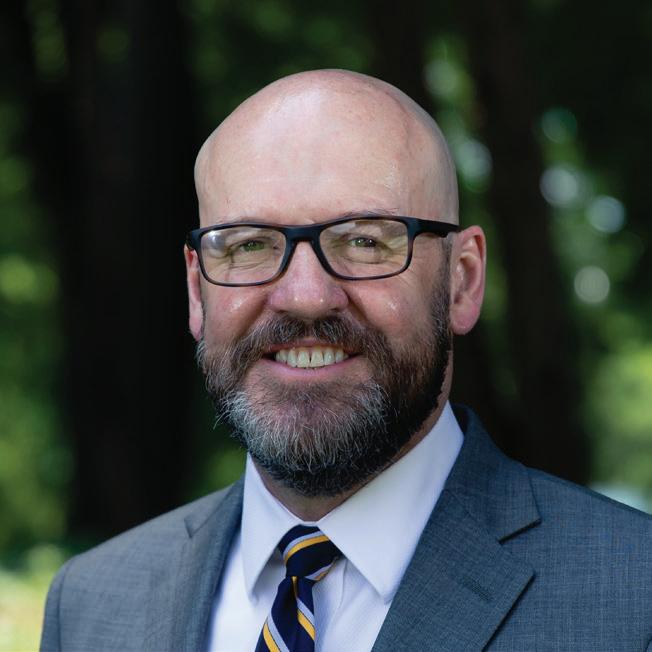
Dr. John Currie Professor and Dean of Pastoral Theology, Westminster Theological Seminary

Dr. Thomas Hawkes Church Planter, Coach, and Director of Church Planting for the Florida Presbytery (ARPC)
UPCOMING CONFERENCE January 18-21, 2024 Briarwood Presbyterian Church Birmingham, AL 35243 CONTACT US briarwood.org/lampstand • 205.776.5243 • lampstand@briarwood.org
Christ-centered,

FACULTY PROFILE: STEPHEN M. COLEMAN
Nathan Nocchi (NN): Stephen Coleman, our readership is keen to know more about you and your family. Would you mind telling us a bit about your life? How did you come to faith in Christ, and how did you come to love and study the Old Testament?
Stephen Coleman (SC): Certainly! I came to faith in Christ as a child. I had the privilege of growing up in a Christian home and had the sort of conversion that we oftentimes hope and pray for all our children, namely that there was never a day in life in which I didn’t know myself to be a sinner and God to be my savior in Christ Jesus. I was taught these precious gospel truths from the youngest age, and as far as I can remember, I believed them from my earliest days.
My dad was a pastor at a church which he pastored for almost 35 years. I had the privilege of growing up in a Reformed and Presbyterian congregation that took those convictions seriously, which means they took seriously the call to teach me the Bible. They took seriously the call to instruct me in our standards, particularly our catechetical heritage. I was catechized as a child, for which I remain deeply grateful. The Westminster Shorter Catechism, which I memorized with my family during family worship, became, indeed, the grammar of my faith. And, as I grow older, I appreciate this all the more.
In high school, I keenly sensed a call to ministry. At that time I was involved in Young Life. I enjoyed both the evangelistic component as well as the various Bible studies that are typically associated with Young Life. I soon got involved in the leadership, and I sensed a desire to follow in my dad’s footsteps in pastoral ministry. Some of my heroes were theologians like R.C. Sproul and Francis Schaeffer, among others. I looked to these men and saw that they were both pastors and teachers, and I desired to follow in their footsteps as a pastor and a teacher. Therefore, the natural next step was to undertake PhD studies. As I journeyed through my college and seminary days, God, in His kindness, confirmed that sense of calling in my heart at every stage in a way appropriate to that stage. And, after 12+ years in pastoral ministry in which I was teaching on the side, I am now
in a teaching ministry in which I have occasion to preach on the side.
NN: Why did you undertake a PhD in Semitic and Egyptian languages? That field of inquiry might seem a bit obscure to some.
SC: Well, the program at the The Catholic University of America, with its focus on the Semitic languages, enabled me to engage the biblical literature as well as certain cognate literature at a deep level with respect to both their languages as well as the cultures which produced them. And one of the things that drew me to Old Testament studies was the literature of the Old Testament, and how reading it in its original languages brought to life certain aspects that were difficult to see in some of our English translations. Semitic languages, in a way, became a means to that end. Being able to read Hebrew reasonably well, and then also interact with the Aramaic and Akkadian and Ugaritic sources, helped me enter into the world of the Bible.
NN: After you completed your PhD studies at The Catholic University of America, what did the Lord have planned for you subsequently? How did you come to Westminster?
SC: While undertaking my PhD, I was involved in part-time (at first) then full-time ministry. In fact, this ministerial work caused my coursework to take a somewhat longer time than I, and especially my wife, had hoped. I do not regret that in any way. Being intimately engaged in the weekly life of Christ’s church helped keep me grounded throughout the writing process of my dissertation. I regularly thought about why I was doing what I was doing, which was to serve the church. When I completed my PhD, I had been teaching at a number of institutions, including RTS in Washington DC, and also at my alma mater, The Catholic University. There, I taught the Intro to Hebrew for the Semitics department. I was also an adjunct professor here at Westminster Theological Seminary. This had me on the search committee’s radar when a position opened in the Old
38 | W ESTMINSTER M AGAZINE
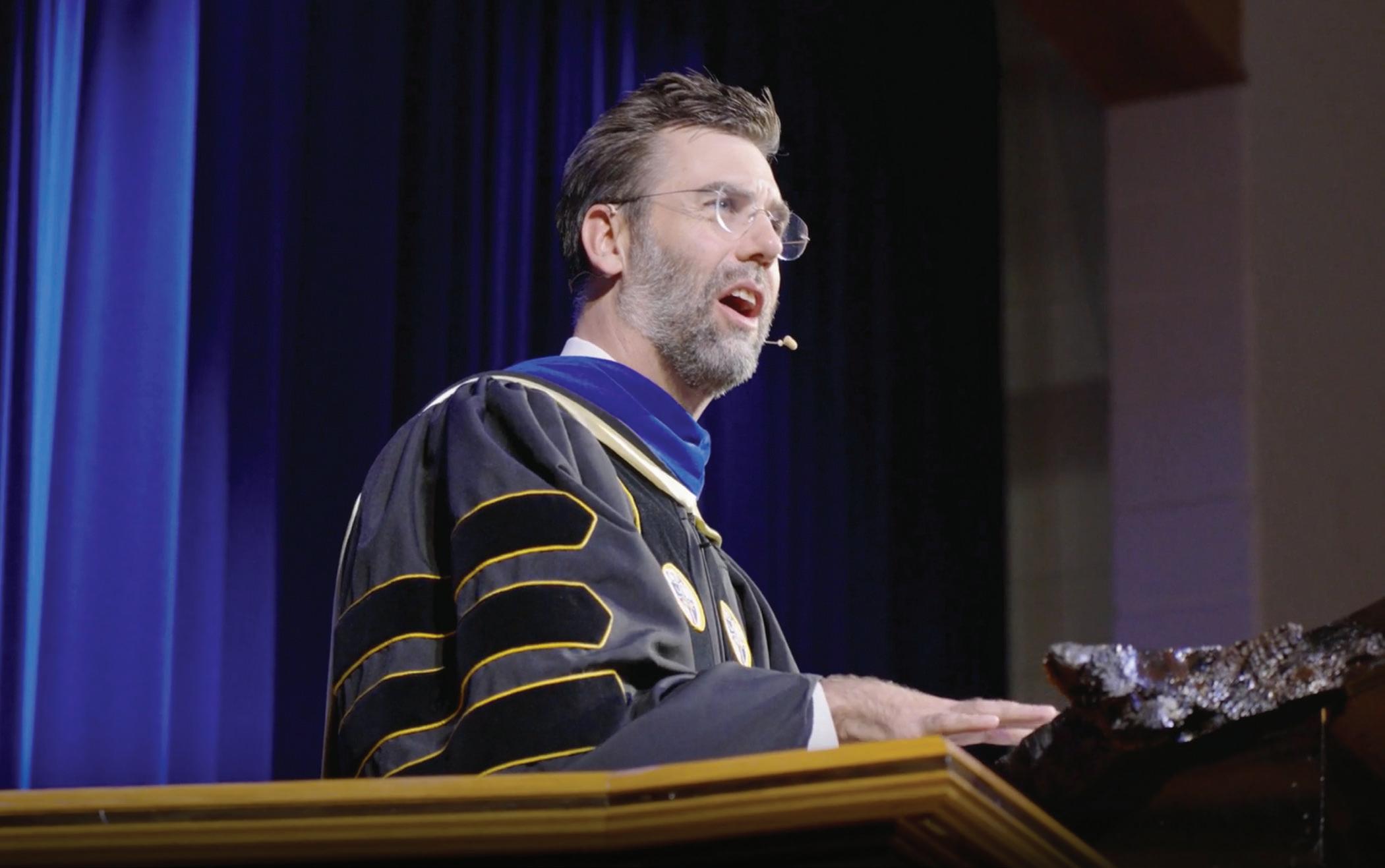
Testament Faculty. About one year after I completed my PhD, I took the position up here at Westminster.
NN: And now you hold the Tong Chair of Reformed Theology! Can you tell us a bit about this remarkable event?
SC: It is a remarkable privilege, and I am deeply honored to have been appointed to this Chair. It is associated with Dr. Stephen Tong who is, unquestionably, one of the leading Reformed theologians in East Asia. He is known throughout the world for his gifts of evangelism and for his preaching and teaching ministry. He has also taught theology and philosophy at the seminary level. Dr. Tong is truly one of those renaissance men who is gifted not only in theology, but also in music, architecture, literature, and art. Many of the faculty here at Westminster have had the privilege of traveling to Indonesia to teach, preach, and evangelize, and guest lecture at the Reformed Seminary in Jakarta, which is associated with Dr. Tong and his church. This chair in Reformed theology is an honor, indeed, as Reformed theology stands behind
all my work in biblical studies. It represents the impetus of my convictions.
NN: Let us consider precisely that. Christians are to think of the Old Testament as our history; it is Christian history. We are to receive this history as true, for if this history would be devoid of actual events, Christianity would be devoid of its substance. The defense of this history as ours and true has occupied Christians throughout the centuries. Indeed, with competing accounts of origins and ethnic histories, such as those found in Greco-Roman antiquity, early Christians were confronted with the apologetic task of defending the biblical narrative against idolators. Can you help us understand why this battle over the facts of history is so vital? Why is it necessary to maintain the historicity of the Old Testament?
SC: This is an important question. For Christians, history is meaningful because of our God who is sovereign over history. He has ordained all that has come to pass, and all that will come to pass. And he has ordained it for a
Fall 2023 | 39
Stephen Coleman delivering the inaugural Tong Chair Lecture
purpose, namely that all things would find their fulfillment in the person and work of his Son, Jesus Christ, who took on flesh and died for the sins of his people, was raised to new life and has ascended into heaven, promising to return. It is vital to understand that certain historical events are God’s revelation of himself. Think for a moment of the events of the Exodus. God reveals who he is as the Sovereign Creator over all things, who holds every sphere of creation in his hand.
And He is revealed not only as Creator, but also as Redeemer, for he redeems his covenant people by delivering them out of Egypt, out of the bonds of slavery. This event is meaningful. It revealed to the Egyptians and to Israel, who Yahweh, the God of Israel, is. And then the authoritative interpretation of that event comes to us in sacred Scripture. Both are God’s revelation of himself and as such, we must affirm that both the event and the record of the event are true as the God who authored them. The Bible comes to us as God’s word. That’s critical for the Christian. We were just discussing this precious truth today in Old Testament Introduction.
NN: Any student of the history of interpretation knows that these convictions have not been universally shared. While one can find evidence of this throughout history, there was an increasing skepticism of the truth of Scripture’s account of ancient events in the nineteenth century. This is in no small part due to the rise of the documentary hypothesis. As we are thinking about J. Gresham Machen and his noble efforts to combat Liberalism, I wonder if you can offer a brief sketch of the documentary hypothesis, and how it occasioned much of the skepticism that Machen sought to combat?
SC: Of course! So, the documentary hypothesis pertains to the Pentateuch, the first five books of the Bible. It claims that these five books are made up of a variety of sources, and have therefore not come from Moses. It suggests that there are discrete documents that one can identify which contain distinct theological approaches. This conjures up this idea that there are inconsistencies, given the different approaches. Notably, the hypothesis suggests that there is conflicting information about what God has done in history and what he commands of his people. One example of this concerns the “D” (Deuteronomistic) source’s emphasis on “heartfelt obedience” and the Lord’s preference for obedience to his commands
over sacrifices. Of course, it is easy to recall many passages in the prophets that affirm this. Another source called “P” (Priestly) has a fundamental character that opposes that former source, “D.” The “priestly” source maintains that Israel’s cultic life needs to be governed by very strict ritual actions, and any violation of such ritual actions results in devastating consequences for the covenant community.
This hypothesis arose in a context in which the Bible was reduced to an exclusively human document, as well as with an evolutionary view of the progress of human history. When these two notions are brought to the field of biblical studies, and particularly the development of Israel’s religion, it wreaks all sorts of havoc. Scholars who advocate the Documentary Hypothesis maintain that Israel’s religious life had a series of stages, moving from animism to henotheism, to refined monotheism, then culminated in external ritualism.
This view of Scripture is completely antithetical to Scripture’s view of itself as divinely inspired, coherent, and as organically developed and thus related. It also cuts against the grain of Jesus’s view of Scripture. Recall that Jesus said to the Pharisees in John 5 that, if you believed in Moses, you would believe in him, for Moses wrote of Christ. Jesus understood the Torah to be Mosaic in origin and evidencing a coherence that finds its fulfillment in him. These nineteenth-century issues are as relevant today as they were in Machen’s Day.
NN: It is in this scholarly context that Machen penned his seminal Christianity and Liberalism
SC: Yes, indeed.
NN: What do you think of that work and its importance?
SC: What Machen did in that work was make a clear distinction between Christianity and what had become known as a sort of liberal or modernist Christianity. Machen argued that the modernist “Christianity” is not, in fact, Christianity; it is something else altogether. Machen was insistent that it was certainly not orthodox Christianity. There are a number of reasons for that. One of those reasons is the modernist’s posture towards supernatural revelation, towards anthropology, and towards sin. Machen strongly opposed this modernist drift and affirmed the possibility and veracity of
40 | W ESTMINSTER M AGAZINE
supernatural religion, of the biblical doctrine of man as by natural sinful, and of the person of Christ as both God and man (to name a few). In other words, his chief interest was to draw clear lines, and guide people to the historic, biblical, orthodox, confessional Christianity. This is why Christianity and Liberalism is still relevant today. If you abandon the supernatural, then you abandon Christianity.
NN: Thinking now about the task of training ministers for pastoral ministry, how can embracing the Old Testament as history and paying close attention to its typology benefit a pastor in training? How can it benefit one’s preaching?
SC: Oh, in so many ways. Jesus tells his disciples on the road to Emmaus in Luke 24 that beginning with Moses and all the prophets, he interpreted them in all the Scriptures the things concerning himself. He continues to say to them, “was it not necessary that the Christ should suffer these things and enter His glory?” (Luke 24:26) The sufferings and the glory of Christ are portrayed in a variety of ways throughout the Old Testament.
NN: Can you list a few of those ways?
SC: Absolutely. For example, the riches of what Christ accomplished on behalf of his people is portrayed in the sacrifices of Leviticus. Consider the burnt offering that was entirely consumed on the altar and the peace offerings (which were not). These point to Christ’s atoning work, for as Christ was wholly consumed on the cross his sacrifice covered his people’s sins, and he himself is the peace offering, which was essentially a fellowship meal, which Christ’s people feed on weekly, being nourished by his body and blood with thanksgiving. To offer another example, the Old Testament also provides a window into the inner life of our Savior. Consider the Psalms, and how they portray Christ’s worship, his life of lament, his sufferings and glory. Every student of Christ today ought to embrace the Old Testament, because it provides a vision into the experience of Christ.
SC: And, returning to the point of typology, much can be said. Consider the flood in the days of Noah as a type of judgment, where the waters washed away the
wicked. In the days of Moses, the waters washed away the Egyptians, which was a sign of God’s judgment against them. These judgment waters anticipate Christ’s baptism. As he says to his disciples James and John in Mark 10, after they asked who shall sit on your right and left hand, Christ says “are you able to be baptized with the baptism with which I am baptized?” The answer is clearly no, for he has a unique baptism to undergo, which is the baptism of the cross. In a typological sense, Christ drowned in the waters of God’s judgment. Why? As Paul says in 1 Corinthians 10, that we might pass safely through the waters of baptism. The waters of our baptism are not waters of judgment, but waters that wash us clean, ushering us into a new creation.
SC: We could literally spend hours pulling out this thread or that thread, discovering how these Old Testament realities anticipate the sufferings and glory of Christ.
NN: As we think about pastoral ministry, what advice would you give someone who is pursuing the ministry today?
SC: My advice would be that your ministry be focused on Christ first, and Christ’s flock second; and think of yourself very little. It is a temptation, especially in our day and age, to want to curate our image and to make our ministries about ourselves. I think that the more we can adopt John the Baptist’s posture, which says, “He must increase, and I must decrease,” the better off our flock will be. In other words, assume the posture of a shepherd, a shepherd always with an eye to the Great Shepherd.
NN: Stephen, it was a pleasure to chat with you. How can the Westminster community pray for you?
SC: I always need prayer, and I am always appreciative when people pray for me. First, please pray that I would continue to be faithful in my calling, and faithful, first and foremost, to Christ. Second, pray that God would continue to use me to raise up future pastors and teachers, elders and counselors, that they would go wellequipped to rightly handle the word of truth. And when these students come to the Old Testament, pray that they would come with eyes that are able to see Christ on every page.
Fall 2023 | 41
from the archive SENATE TESTIMONY ON EDUCATION
J. Gresham Machen
In 1926, mid-way between publishing Christianity and Liberalism in 1923 and founding Westminster Theological Seminary in 1929, J. Gresham Machen, professor of New Testament at Princeton Theological Seminary, was invited to speak before Congress to state his opposition to the founding of a federal board of education. Provided below is a slightly abridged version of his address. Machen’s position won the day insofar as the bill forming the board of education was defeated. Though this battle resulted in a victory, the war was eventually lost when President Jimmy Carter signed the Department of Education Organization Act of 1979, the results of which have been. . . well, we’ll leave it to the reader to decide what Dr. Machen would have thought.
—B.
McLean Smith
The Proposed Department of Education Testimony before the House & Senate Committees on the Proposed Department of Education
Mr. Chairman and gentlemen of the Committee, there are two reasons why a man may be opposed to a bill which is introduced in Congress. One reason is that he thinks it will not accomplish its purpose. The other reason is that he thinks that the purpose that it is intended to accomplish is an evil purpose.
It is for the latter reason that I am opposed to the bill which forms the subject of this hearing. The purpose of the bill is made explicit . . . it is expressly said that the department of public education, with the assistance of the advisory board to be created, shall attempt to develop a more uniform and efficient system of public common school education. The department of education,
according to that bill, is to promote uniformity in education. That uniformity in education under central control it seems to me is the worst fate into which any country can fall. That purpose I think is implicit also in the other form of the bill, and it is because that is the very purpose of the bill that I am opposed to it.
This bill, I think, cannot be understood unless it is taken in connection with certain other measures of similar kind which have been proposed in the last few years; in the first place, of course, the so-called child-labor amendment to the Constitution of the United States, which I think was one of the most cruel and heartless measures that have ever been proposed in the name of philanthropy, which is saying a good deal. Another similar measure, of course, is the bill which has now been introduced, I believe, and which has appeared a number of times during the last few years, establishing in a very radical way a system of Federal aid to the States, with conditions on which this aid is to be received. It is perfectly clear of course, that if any such principle of Federal aid in education is established, the individual liberty of the States is gone, because I think we can lay it down as a general rule, with which everyone who has examined the course of education recently will agree, that money given for education, no matter what people say, always has a string tied to it. That appears in gifts of money by private foundations, and it appears far more, of course, when the gift comes from the Federal Government, which has already been encroaching to such an extent upon the powers of the States. But this bill establishing a Federal department of education, which has in it the principle of Federal aid, is a step and a very decisive step in exactly the same direction, and it is for that reason that we think it is to be opposed.
42 | W ESTMINSTER M AGAZINE
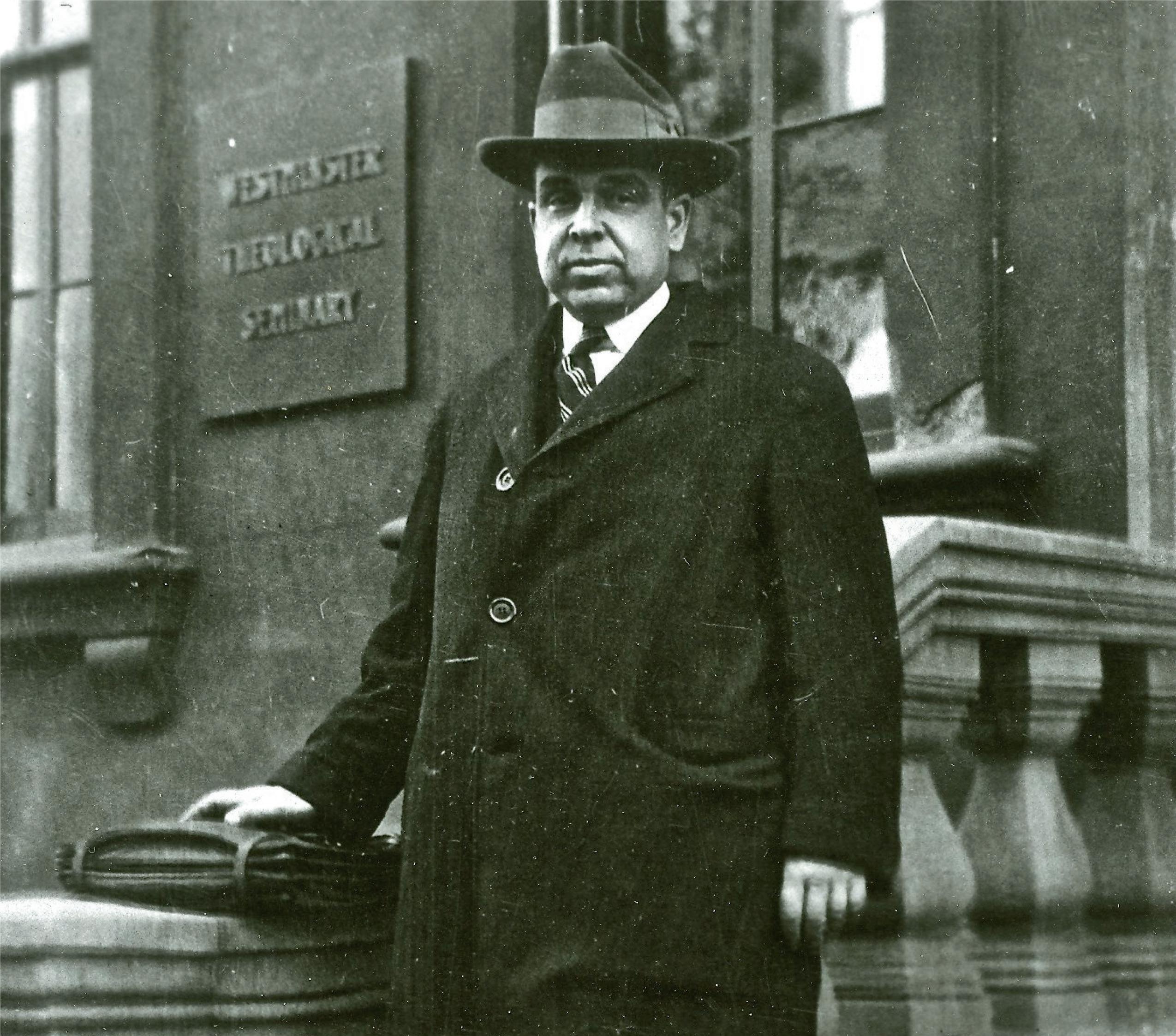
It is to be opposed, we think, because it represents a tendency which is no new thing, but has been in the world for at least 2,300 years, which seems to be opposed to the whole principle of liberty for which our country stands. It is the notion that education is an affair essentially of the State; that the children of the State must be educated for the benefit of the State; that idiosyncrasies should be avoided, and the State should devise that method of education which will best promote the welfare of the State.
That principle was put in classic form in ancient Greece in the Republic of Plato. It was put into operation, with very disastrous results in some of the Greek
States. It has been in the world ever since as the chief enemy of human liberty. It appears in the world today. There are many apostles of it, such as Mr. H.G. Wells, for example. I suppose the root of his popular Outline of History is that with our modern methods of communication we can accomplish what the Roman Empire could not accomplish, because we can place education under the control of the State, and, avoiding such nonsense as literary education and the study of the classics, etc., can produce a strong unified state by having the State take up the business of education.
The same principle, of course, appears in practice in other countries in modern times, at its highest
Fall 2023 | 43
Machen on the steps of Westminster's early location in Philadelphia.
development in Germany, in disastrous form in Soviet Russia. It is the same idea. To that idea our notion has been diametrically opposed . . . our notion has been that parents have a right to educate children as they please; that idiosyncrasies should not be avoided; that the State should prevent one group from tyrannizing over another, and that education is essentially not a matter of the State at all.
Uniformity in education
under central control is the worst fate into which any country can fall.
The principle of this bill, and the principle of all the advocates of it, is that standardization in education is a good thing. I do not think a person can read the literature of advocates of measures of this sort without seeing that that is taken almost without argument as a matter of course, that standardization in education is a good thing… [There] are those who hold the theory that the human race has now got behind the scenes, that it has got at the secrets of human behavior, that it has pulled off the trappings with which human actors formerly moved upon the scene of life, and has discovered that art and poetry and beauty and morality are delusions, and that mechanism really rules all.
I think it is very interesting to observe how widespread that theory is in the education of the present day.
Sometimes the theory is held consciously. But the theory is much more operative because it is being put into operation by people who have not the slightest notion of what the ultimate source of its introduction into the sphere of education is. In this sphere we find an absolute refutation of the notion that philosophy has no effect upon life. On the contrary . . . a false view of what life is, is made operative in the world today in the sphere of education through great hosts of teachers who have not the slightest notion of what the ultimate meaning is of the methods that they are putting into effect all the time.
For my part, I cannot bring myself to think, with
these persons, that the lower things in human life are the only things that remain, and that all the higher things are delusions; and so I do not adhere to this theory. And for that reason I do not believe that we ought to adopt this principle of standardization in education… because standardization, it seems to me, destroys the personal character of human life. . . .
The tendency in this bill . . . is to remove idiosyncrasies, to interfere with people who have peculiar ideas in education, and to try to produce a uniformity of education in this country.
I do not believe that the personal, free, individual character of education can be preserved when you have a Federal department laying down standards of education which become more or less mandatory to the whole country. Of course, there are people who say that a Federal department does not mean anything. They say that when they talk to men of our way of thinking. A good many people seem to have the notion that a Federal department, like the House of Lords during the Napoleonic wars, will “do nothing in particular and do it very well”; but for my part I do not believe, when you get a department with a secretary who has a large salary and a great many secretaries under him, and when you get this dignity of a department, that you are going to find that that department is going to be very modest about the funds for which it asks.
I think it is perfectly plain that we are embarking on a policy here which cannot be reversed when it is once embarked upon. It is very much easier to prevent the formation of some agency that may be thought to be unfortunate than it is to destroy it after it is once formed. Now, I think, is the decisive time to settle this question whether we want the principle for which this department will stand.
But at that point, of course, there may be an objection. People will say: “Why, you have been arguing for individual liberty in education, and the right of individual parents to educate their children as they please, and all that; but is not that interfered with already by the States, and is not this bill the same in principle as the control of education by the individual States which we already have?” I am perfectly ready to admit that there have been grievous sins in the sphere of education on the part of individual States. We need only think of the Oregon school law, which actually attempted to take children forcibly from their parents and put them under the despotic
44 | W ESTMINSTER M AGAZINE
control of whatever superintendent of education happened to be in power in the district where the parents resided. We need think only of the Nebraska language law, which was similar to laws in other States, which actually prevented, even in private schools, the study of languages until the children are at an age when every teacher knows they are too old ever to learn language well. It actually, therefore, made literary education a crime. Finally we need only think of the Lusk laws of the State of New York, one of which actually provided that every teacher in a course of instruction, public or private, formal or informal, should take out a State license and be subject to State visitation and control.
I am perfectly ready to admit that no interference with liberty could possibly be more complete than measures such as those; but the fate of those measures is very instructive for the question with which we are dealing. The Lusk laws were repealed. The Oregon school law and the Nebraska language law fell before that last bulwark of our liberties, the United States Supreme Court, which may God protect; and Justice McReynolds said, in the Oregon school case, that the child is not the mere creature of the State. And in that principle there lies everything for which we are contending today.
Then in the States there is a great safeguard in numbers. There are 48 States at this time, and they are very different. So although it is perfectly conceivable that one State may go very bad, it is not, perhaps, likely that all of them will go utterly bad. There is great safety in numbers; and therefore I hold that the control of education by the Federal Government is very different in principle from the control that is already exercised by the States, because the control by the States can be checked better in a constitutional way than control by the Federal Government, and also because there is a great difference in principle between having control by one central authority and control by a great many different sources of authority.
But it will be said: “Why, do you actually mean that we should have these 48 States, each with its own separate system of education, and a lot of crazy private schools and church schools?” Why, people tell us we shall make a perfect mess of it if we have any such education as that. Well, I say, with respect to that, that I hope with all my might that we may go on making a mess of it. I would rather have confusion in the sphere of education than intellectual and spiritual death; and out of that
“mess,” as they call it—we call it liberty—there has come every fine thing that we have in our race today.
But then people say: “What is going to become of the matter of equal opportunity? Here you have some States providing inferior opportunities to others, and the principle of equal opportunity demands Federal aid.” I may say, Mr. Chairman, with regard to this matter of equal opportunity, that I am dead opposed to it. . . . What shall be done with a State that provides opportunity for its children inferior to that provided by other States? Should the people of that State be told that it makes absolutely no difference, that Washington will do it if the State does not do it? I think not. I, think we are encouraging an entirely false attitude of mind on the part of individual parents and on the part of individual States if we say that it makes no difference how responsibilities are met.
Our notion has been that parents have a right to educate children as they please; that idiosyncrasies should not be avoided.
I believe that in the sphere of the mind we should have absolutely unlimited competition. There are certain spheres where competition may have to be checked, but not when it comes to the sphere of the mind; and it seems to me that we ought to have this state of affairs: That every State should be faced by the unlimited competition in this sphere of other States; that each one should try to provide the best for its children that it possibly can; and, above all, that all public education should be kept healthy at every moment by the absolutely free competition of private schools and church schools.
A public education that is faced by such competition is a beneficent result of modern life; but a public education that is not faced by such competition of private schools is one of the deadliest enemies to liberty that has ever been devised.
Unlimited competition, I think, should be the rule. We already have interchange of ideas in this country… There is that interchange of ideas. And we have also
Fall 2023 | 45
universities in this country that do not make it necessary for anyone to go to Europe to get an education. If we had no universities, we might want a national agency in education, but we have universities, and we do not want to spoil the agencies that we already have as the erection of a Federal department would check and spoil them in very many ways.
Standardization, it seems to me, destroys the personal character of human life.'
But then people say: “You know that this Federal department of education is in the interest of efficiency.” They are always flinging that word “efficiency” at us as though when that word is spoken all argument at once is checked. Well, of course, “efficiency” just means doing things, and I think the important thing to know is whether the things that are being done are good or bad. If the things that are being done by any agency are good, I am in favor of efficiency; but if the things that are being done by the agency are bad, the less efficiency it has the better it suits me.
I think probably most of us have heard the story of the tramp who got up to the third floor of the department store. The floorwalker on the third floor kicked him down to the second floor, where he fell afoul of the floorwalker on the second floor, who kicked him down to the floorwalker on the first floor, and the floorwalker on the first floor kicked him out on the sidewalk. He landed on his back, and got up and said in a tone of deep admiration, “My! What a system.” Now, I am unable to develop the complete detachment or objectivity which was developed by that tramp. I am unable to admire efficiency when it is directed to an end which works harm to me; and the end of the efficiency of a Federal department of education would be the worst kind of slavery that could possibly be devised — a slavery in the sphere of the mind.
Of course, too, I might argue that Federal bureaus, when they have become overgrown, as they are now, are hardly very efficient agencies. In fact, I am inclined to think that they are the most inefficient agencies that can
be found anywhere on the face of the planet. They are discouraging activities by other agencies which would perform the work a great deal better, even where harm is not done, as it is in this sphere, by the existence of the agency itself.
But even if Federal bureaus were the most efficient agencies that history has even seen, I should still be opposed all the more to this Federal department of education, because the result that it is aiming to accomplish is a thing that I hold to be bad, namely, slavery.
A great many educators, I think, have this notion that it is important to be doing something, to be going somewhere. They are interested in progress, and they do not seem to care very much in what direction the progress is being made. It is like a man who goes into the Union Station here, where all the trains start out the same way, and he gets through the gate somehow and sees a train that looks beautiful; it has a lovely observation car on it, and he gets on. When I do that, my ticket reads to Princeton. I get on this lovely train, and when it gets out of the station after half an hour the conductor comes through the train and looks at my ticket, and says: “Your ticket reads to Princeton, N.J., and we are bound for the West, and our first stop is Cumberland.” I say: “Well, that makes no difference to me. This is a perfectly lovely train, and I am so glad to be on it; and which way is the dining car?”— and I just stay on it, and do not care where I am going.
That is exactly the way, it seems to me, with these people who, in the sphere of education, feel that if you call a thing a department of education, and try to spend money for education as you are spending it for battleships, somehow that is an advantage. It depends on the direction in which you are moving.
So that I find in this bill a decisive step in a direction where the progress, if persisted in, will lead to disaster; and what I am hoping for is not merely that this bill may be defeated, but that this whole tendency, gentlemen, may be checked. I think that is the important thing.
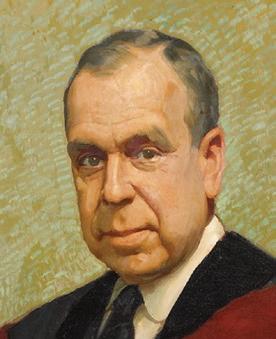
J. Gresham Machen (1881–1937) was founder and professor of New Testament at Westminster Theological Seminary. His books include Christianity and Liberalism, What is Faith?, and the recent collection of his radio talks, Things Unseen
46 | W ESTMINSTER M AGAZINE
THE CLASSIC WARFIELD COLLECTION
Revised and Enhanced









“It is not o en recognized that B. B. War eld was rst and foremost, at heart, a Christologian. His writings in this area are extensive, his analysis of the critical issues is exegetically precise, and his heart for our Redeemer pulses through it all. Essential reading.”
—FRED G. ZASPEL
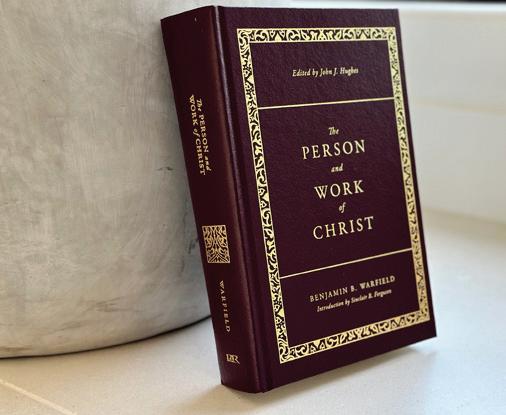










“ is book is the classic trenchant exegetical defense of inerrancy and inspiration. No one who is interested in this topic should leave this book unread.”
—G. K. BEALE



Free domestic USPS shipping on orders over $49. Go to www.prpbooks.com or call 1-800-631-0094 to place your order.

LEATHER
$49.99
| 800 PAGES | IMITATION
| #897-2
| 680 PAGES | IMITATION LEATHER | #896-5
$49.99
TRUE LEARNING AND TRUE PIETY:
J. Gresham Machen’s
Influence on Education
J. S. S. Patterson
JGresham Machen understood that education plays a central role not only in the defense of the Christian faith but also in maintaining our humanity in the face of modernism’s dehumanizing tendencies. Though his concern throughout Christianity and Liberalism was primarily theological liberalism and its effects, his comments on education demonstrate that he understood liberal theology to be a facet of Liberalism’s radical reconfiguration of the meaning of life. As we will see in what follows, Machen’s insights and warnings on the subject of education (both implicit and explicit) remain salient for the church today, particularly as we consider the education of children.
Why are Machen’s insights still timely? As seems clear to even the most casual of observers, the state’s educational agenda for our youth is dominated by a secular ideology that operates like a faux religion. The doctrine and dogma of the system is sacred, and catechumens are both baptized and confirmed into them. Whereas the “liberalism” of former days might have given lip service to a plurality of belief, the current system tolerates no dissenters—especially when parents push back against their children being indoctrinated into philosophies and lifestyles which contradict God’s Word and undermine parental authority to direct the education of their children.
Parents are rightly appalled to find that the moral instruction in which their children are being immersed at home and in church is being undermined in the classroom. But what would we expect? When God’s Word is jettisoned, questions of morality or of what constitutes good character will be decided by each individual, whose inclination will be to adopt the prevailing cultural norms of the day. Machen warned that the secular school
bases “character upon human experience” and represents “maxims of conduct as being based upon the collective experience of the race.”1 His conclusion was that “character-building, as practiced in our public schools, may well prove to be character-destruction.”2
This threat to the faithful discipleship of our children is far from being a new phenomenon. For instance, recall with me the hostile culture of the Babylonians, and how the politicians (namely, the king) sought to indoctrinate the youth of the land into forsaking their faith and denying their identity, to the end that they could be assimilated into that society’s worship and lifestyle. As in our culture today, many succumbed and followed the path of least resistance. But when three holy youths (along with young Daniel) were faithful to the Lord and refused to apostatize, not only was the power of God put on display, but so too was the importance of their preparation.
All of this is to say that Shadrach, Meshach and Abednego’s virtue, obedience, and piety was not theirs because they had been born “good eggs,” and neither were they formed into virtuous young men (nor is anyone formed) simply because they knew the right things, as though cognition alone was the secret to character. No! Those holy youths acted the way that they did because their character—their virtuous habits—had been effectively shaped before their time of trial.3 They had been prepared for their hour of testing.
Though contemporary youths live in a very different world than did those young men, the temptations that face our children are fundamentally the same. Our children are confronted with an alluring appeal to conform themselves to the pattern and priorities of this world, as opposed to those of the Kingdom of God. Against these rival kingdoms of thought and desire, the church is called
48 | W ESTMINSTER M AGAZINE

to do battle, and we make a major mistake if our posture is predominantly one of defense or retreat. Machen recognized this 100 years ago, and he responded not with nervous handwringing (“The sky is falling!”), nor as the pessimistic fatalist (“It is what it is”); rather, he observed that “the present is a time not for ease or pleasure, but for earnest and prayerful work.”4 Such is certainly still the case. In light of the fact that the world always has and always will oppose the Lord and his people, and also in light of the fact that our calling is not to retreat and hide, but rather to live faithfully in this world such that the name of Christ is magnified, the church and her members have a duty to so prepare the youth who have been entrusted to our care that they may (by God’s grace) be prepared to meet the coming storm.5
The fact that more and more families and churches are recognizing the importance of building schools within the local church invites us to reflect upon what
the purpose of such schools should be and what guidance Machen’s Christianity and Liberalism might provide, for Machen understood that a robust Christian education was needed in order to counter the prevailing norms of an increasingly non-Christian society. Let us now consider how his insights might help to shape our approach to the education of youth.
Machen helped his readers recognize three dangerous characteristics of Liberalism, namely that it tends to be naturalistic (that is, materialist), utilitarian, and solipsistic (exalting the individual both over God and his social duties). Each of these three aspects currently characterize the approach to education in most public schools in America, and so if congregations are going to help parents protect their children from being catechized into these systems, the schools that they build will need to understand what they are up against, and execute strategies that are appropriate to the need.
Fall 2023 | 49
George Gillis Haanen, De avondschool (1835)
What follows is a brief consideration of how Machen’s insights as to the tendencies of Liberalism might shape our approach to educating children within a classical and Christian parochial model.
Naturalistic Materialism
Anaturalistic approach to education treats God as being either irrelevant or as an arbitrary and prejudicial intrusion into all subjects of study.6 For the materialist, truth, goodness, and beauty are arbitrary concepts—malleable in keeping with an individual’s opinions and orientations, no matter how perverse. Machen saw that the only authority for the naturalist is based upon the individual’s experience and warned that “such an authority is obviously no authority at all; for individual experience is endlessly diverse, and when once truth is regarded only as that which works at any particular time, it ceases to be truth.”7 The moral and theological collapse of the American mainline denominations in the hundred years since the publication of Christianity and Liberalism demonstrates the accuracy of Machen’s insight.
Whereas the “liberalism” of former days might have given lip service to a plurality of belief, the current system tolerates no dissenters.
Instead of a naturalistic approach to education, the parochial school begins each day with worship, intentionally signaling to students and faculty alike that all that they do is in God’s sight and is meant to be offered to him. In Anglican contexts, this daily rule of prayer takes the form of Morning and Evening Prayer from the Book of Common Prayer (in my parish, the 1662 version of Cranmer’s magnificent liturgy). These services ground students in the moral and metaphysical reality of God’s created order. The services begin with a confession of sin in which students and faculty acknowledge: “We
have followed too much the devices and desires of our own hearts. We have offended against thy holy laws. We have left undone those things which we ought to have done.”8 Students and faculty alike ask God for pardon and restoration not in order that they might feel better about themselves, but so they “may hereafter live a godly, righteous, and sober life, To the glory of [God’s] holy Name.” As the service progresses, they hear lessons from Holy Scripture, sing the Psalms, recite the Creed and Decalogue, and offer their prayers, thereby being reminded again and again that God is the sovereign over all creation and we owe him our allegiance: “For he is the Lord our God; and we are the people of his pasture, and the sheep of his hand.” These times of daily worship are integral parts of the school day, providing both catechetical instruction and drawing students into the narrative of God’s redemptive work (past, present and future). But simply adding chapel services to an otherwise secular school day is not all that is necessary in order for us to teach in a truly Christian manner. Students need teachers who will enliven their imagination as to the Lordship of Christ in all things, thereby helping them to approach any subject in such a way that God is seen to be relevant and his Word authoritative. Machen envisioned such an approach, as can be seen in comments such as this:
A Christian boy or girl can learn mathematics, for example, from a teacher who is not a Christian; and truth is truth however learned. But while truth is truth however learned, the bearings of truth, the meaning of truth, the purpose of truth, even in the sphere of mathematics, seem entirely different to the Christian from that which they seem to the non-Christian; and that is why a truly Christian education is possible only when Christian conviction underlies not a part, but all, of the curriculum of the school. True learning and true piety go hand in hand, and Christianity embraces the whole of life— those are great central convictions that underlie the Christian school.9
At St. Mark’s Classical Academy, we aspire to put Machen’s insights into practice in every aspect of our curricula. For example, science classes seek to evoke wonder (not merely to explain mechanistic workings of the world or man’s manipulation of God’s creation), and history teachers seek to inspire students with the stories
50 | W ESTMINSTER M AGAZINE

of men and women of courage and conviction, inviting students to model their virtues and learn from their failures rather than simply presenting dates, statistics, and complaints against social injustices. Likewise, handwriting, grammar, and math are taught such that students learn order and elegance, not merely functionality. An approach to education that prioritizes functionality leads us to Machen’s next insight as to the nature of Liberalism.
Utilitarianism
Machen was concerned with the utilitarian trends in the educational philosophies of his day, along with the danger of resulting totalitarianism. He observed that: “The dominant tendency, even in a country like America, which formerly prided itself on its freedom from bureaucratic regulation of the details of life, is toward a drab utilitarianism in which all higher aspirations are to be lost.”10
A utilitarian approach to education regards children as little more than cogs in the great machine of industry. The purpose of education, according to this approach, is simply to learn what is necessary in order to work at a particular job, which in turn has the base purpose of earning money, so as to secure for oneself material
necessities and (if possible) luxuries—all to obtain a life that is as comfortable as possible. Thus, in a utilitarian approach to a child’s education, learning is reduced to the accumulation of data or of skills (as commodities), the value of which is simply that they are means by which one may find employment, earn wages, and pursue some vacuous version of “the good life” glamorized by media outlets of the world. In his novel Hard Times, Charles Dickens satirized this approach to education:
Now what I want is, Facts. Teach these boys and girls nothing but Facts. Facts alone are wanted in life. Plant nothing else, and root out everything else. You can only form minds of reasoning animals upon Facts: nothing else will ever be of any service to them. Stick to Facts, sir! (…The speaker stepped back and regarded the children) little vessels ready to have imperial gallons of facts poured into them until they were full to the brim, (and he) … like a cannon loaded to the muzzle with facts, and prepared to blow them clean out of the regions of childhood at one discharge.11
What a very poor pedagogy this is, in comparison to an approach to education in which wonderment and joy are central, and in which young image bearers are being
Fall 2023 | 51
Thomas Brooks, The New Pupil (1854)
trained not solely for the workplace, but to live in such a way that they enjoy and delight in every good gift that God provides, including the joy of learning. As Dorothy Sayers wrote in The Lost Tools of Learning, “… the sole end of education is simply this: to teach men how to learn for themselves; and whatever instruction fails to do this is effort spent in vain.”12 Many would argue that there is no more strategic a time to equip children with the tools of learning than when they are young. Machen agreed:
Place the lives of children in their formative years, despite the convictions of their parents, under the intimate control of experts appointed by the state, force them then to attend schools where the higher aspirations of humanity are crushed out, and where the mind is filled with the materialism of the day, and it is difficult to see how even the remnants of liberty can subsist.13
A classical and Christian approach to education avoids the trap of utilitarianism by recognizing that students are more than their future jobs. For this reason, we seek to develop the capabilities of the whole person, and to uphold and preserve the true value of every student.14 A teacher’s role, therefore, is one of nurturing and inspiring students to their highest ability, rather than simply trying to dump the required facts, knowledge, and abilities into them. If a congregation wants to establish a school that joins Machen in battling utilitarianism, it will need to be populated with faculty that center on the students’ vocation as students rather than a particular desired outcome. It also needs to be a school in which students learn not only their abilities but also their limitations, and consequently their mutual need to love and forgive their fellow men as they would have God love and forgive them. Such an orientation will help to avoid the third tendency of Liberalism against which Machen contended.
Solipsism
Machen understood that Liberalism’s tendency is to reduce everything to individualistic concerns. He saw this as a denial of the full distinction between creature and Creator which then leads to a minimization of the problem of sin. “Modern liberalism has lost all sense of the gulf that separates the creature from
the Creator,” he wrote, and “at the very root of the modern liberal movement is the loss of the consciousness of sin.”15 He goes on to indicate that the result of this false anthropology is an unrealistically optimistic view of the future, including man’s ability to overcome personal and social problems.16 This false confidence, coupled with a denial of the problem of sin, led to the fascist and socialist totalitarianisms that devastated the twentieth century. It is leading now to the sort of democratic totalitarian conditioning envisioned by John Dewey and his ilk.
A naturalistic approach to education treats God as being either irrelevant or as an arbitrary and prejudicial intrusion into all subjects of study.
Because classical Christian education understands the problem of evil, it understands that education must include the shaping of loves (affections) and that, by learning to lovingly pursue the true, the good, and the beautiful, we increase our capacity to know and love God. Conversely, if education focuses only on the mind and is content to leave the heart unchanged, increasing learning and ability will only allow the student greater scope for wickedness. Machen remarked:
We have provided technical education (but) … there is also the moral interests of mankind; and without cultivation of these moral interests a technically trained man is only given more power to do harm. By this purely secular, non-moral, and non-religious, training we produce not a real human being but a horrible Frankenstein.17
The classical and Christian school’s desire is that through the formation of character—habitual virtue winning out over habitual vice—the student learns not only to rightly discern what is pleasing to God, but further that his desires become re formed such that we
52 | W ESTMINSTER M AGAZINE
begin to long for what is right(eous).18 A teacher’s focus, therefore, must not be only upon the student’s mind, but also upon his heart, for as Alexis de Tocqueville observed in the 1800s: “One cannot doubt that in the United States the instruction of the people serves powerfully to maintain a democratic republic. It will be so, I think, everywhere that the instruction that enlightens the mind is not separated from the education that regulates mores.”19 American education since the triumph of Liberalism has sought to abolish rather than regulate mores. The disunifying and totalitarian effects on a democratic republic and its institutions are manifest.
Conclusion
One hundred years ago J. Gresham Machen helped to expose the errors of Liberalism and he called upon the Church to take notice and respond. One such response is the building of schools in which our children may not only be educated in Christian doctrine, but in which they might also learn to engage in any and every subject as well-formed disciples of Christ. Parents who desire to heed Machen’s call to play an active role in the education of their children (rather than relinquish their authority to the secular state) will be greatly helped if an increasing number of congregations would (1) determine to establish Christian schools with classical pedagogies, and (2) influenced by Machen's observations, seek to cultivate the kind of character that is able to effectively resist the de formative influence of secular society.

J. S. S. Patterson (D.Min, Westminster Theological Seminary) is the Rector of St. Mark’s Reformed Episcopal Church and the founding Headmaster of St. Mark’s Classical Academy (stmarksca.org). He is also a professor of pastoral theology at The Reformed Episcopal Seminary.
3. “… so that the tested genuineness of your faith—more precious than gold that perishes though it is tested by fire—may be found to result in praise and glory and honor at the revelation of Jesus Christ” (1 Peter 1:7).
4. J. Gresham Machen, Christianity and Liberalism (Grand Rapids: Eerdmans, 2009), 150.
5. “The ‘otherworldliness’ of Christianity involves no withdrawal from the battle of this world; our Lord Himself, with His stupendous mission, lived in the midst of life’s throng and press. Plainly, then, the Christian man may not simplify his problem by withdrawing from the business of the world, but must learn to apply the principles of Jesus even to the complex problems of modern industrial life…. the whole of life, including business and all of social relations, must be made obedient to the law of love.” Ibid., 130.
6. Machen understood that a robust Christian education was needed in order to counter the prevailing norms of an increasingly non-Christian society.
7. In describing Liberalism, Machen wrote: “… the many varieties of modern liberal religion are rooted in naturalism—that is, in the denial of any entrance of the creative power of God (as distinguished from the ordinary course of nature) in connection with the origin of Christianity.” Ibid., 2.
8. The 1662 Book of Common Prayer International Edition, “The Collect for the Fourteenth Sunday after Trinity” (Downers Grove, IL: InterVarsity Press, 2021), 3.
9. Machen, Education, Christianity, and the State, 81.
10. Machen, Christianity and Liberalism, 10.
11. Charles Dickens, Hard Times (New York: W. W. Norton & Company, 2001), 5–6.
12. Dorothy Sayers, The Lost Tools of Learning (London: Methuen, 1948), 30.
13. Machen, Christianity and Liberalism, 12.
14. At St. Mark’s Classical Academy, the stated mission is to endow children with the tools of learning, and the wisdom of the ages, by nourishing their souls with truth, goodness and beauty, so that they may serve God and their fellow man with virtue, dignity, and strength.
15. Ibid., 55.
16. “Characteristic of the modern age, above all else, is a supreme confidence in human goodness … Get beneath the rough exterior of men, we are told, and we shall discover enough self-sacrifice to found upon it the hope of society; the world’s evil, it is said, can be overcome with the world’s good; no help is needed from outside the world.” Ibid., 56.
17. Machen, Education, Christianity, and the State, 75.
18. “Almighty and everlasting God, give unto us the increase of faith, hope, and charity; and, that we may obtain that which thou dost promise, make us to love that which thou dost command, through Jesus Christ our Lord. Amen” (The Book of Common Prayer, 185).
1. John Gresham Machen, Education, Christianity, and the State (Hobbs, New Mexico: The Trinity Foundation), 76. 2. Ibid., 77.
19. Alexis de Tocqueville, Democracy in America, trans. Harvey C. Mansfield & Delba Winthrop (Chicago: The University of Chicago Press, 2000), 510.
Fall 2023 | 53

STUDENT SPOTLIGHT: ANDREW BECHAM
Nathan Nocchi (NN): Brother, it is a pleasure to sit down and chat with you. Why not begin by saying a bit about yourself, your interests, and what brought you to Westminster?
Andrew Becham (AB): Thanks, Nathan, for the opportunity. I grew up in the greater Atlanta area down in Georgia, where I also met my wife. We moved to the Philadelphia area so that I could study in preparation for pastoral ministry. The story of how I ended up at Westminster is a good picture of God’s providence. There’s always more to the picture, so I’ll just focus on one area. At Georgia State University, I studied philosophy for the same reason as many people: I wasn’t quite sure what I wanted to do. Well, that’s not entirely it. I had a desire to study philosophy, law, or theology at a graduate level, so philosophy seemed like a strategic path to develop skills and explore ideas. On top of that, an alarming number of college students at my church were philosophy majors, so they and their strange ways pushed me from curiosity to pursuit. So, by hubris or peer pressure, it was philosophy that I studied.
Early in the program, I took a philosophy of religion course. The professor and I had developed a good teacher-pupil relationship from a logic course I’d taken with him earlier. He knew I was a believer; he was, and remains, a skeptic. In the religion lectures, he’d pose the expected suite of questions and have us wrestle through them, often out loud. Unsatisfied with my improvisational responses, inspired though they were, I went home and asked one of those philosophical friends from church if he knew of any literature to help me work through objections to the Christian faith. Little did I know that he had written his senior thesis on the apologetic method of Cornelius Van Til. He shared his copy of Christian Apologetics. The rest is history. You read the introductions, follow the footnotes, keep reading for breadth and depth, and discover that there is still a Reformed theological seminary where they train people for ministry the old-fashioned way: biblical languages, historical sensitivity, and confessional trajectory all in an integrated
curriculum. This, the Westminster way, is what pulled me here, and I continue to believe earnestly that it is at present the best program for seminary education one can receive.
NN: I, too, have a similar story. Thinking, for a moment, about the Westminster way, and Westminster’s namesake (i.e., Westminster Standards), creeds and confessions are at the forefront of our modern context. Christians, of course, recite creeds on the Lord’s Day, as a heartfelt expression of that which they believe. In recent days in the social and political sphere, however, we have seen the advent of new creeds, which are proclaimed in innumerable ways. “Co-existence,” “Love is love,” and “All religions are true” are some of the central terms and phrases of these novel creeds. This sort of “virtuous ignorance” was observed by Machen as absurd, saying “If all creeds are equally true, then since they are contradictory to one another, they are all equally false, or at least equally uncertain.” Many have said that pastors should refrain from being “political” in the pulpit. However, it goes without saying that nearly everything has become political. As you think about entering pastoral ministry, what do you think the place of the pulpit is in repudiating these new, pervasive creeds?
AB: It is interesting to come across these signs in front of old churches, typically the most beautiful and historic buildings in town. Rachel and I pass one frequently where we live. Churches following these sorts of cultural winds are on the way to being empty churches. When the gospel of Jesus Christ is confessed not as the pearl of great price but as nothing more than one form of religious expression or activism spurting out into the world among other worldly creeds, its core message is obscured, frustrated, and lost.
Machen, of course, saw this in his day. The motive for this ideology, pluralism, is to accept everything on equally untrue footing: False religions and acts of moral delinquency are all equally valid because none of them is really true at all; they reduce to expression of individuals’ personal opinions. They are not religious
54 | W ESTMINSTER M AGAZINE
truth claims after all, because who really knows religious truths? This modern commitment to pluralism cannot abide Jesus’s teaching that the gate that leads to life is narrow. He is the gate; none enters the pasture and joins the flock except through him. The true church confesses “One God the Father Almighty, Maker of heaven and earth, and of all things visible and invisible.” This means he gets to define love. He gets to define who we are and how we are to live with one another. And in so defining it, he does not affirm every behavior and ideology humankind or American culture might generate. He will not coexist, per the First Commandment still on many of our civil buildings. Creedal Christianity is and must be courageous Christianity because it says “yes” only to what is true and “no” to what is false in a world enraptured with falsehood. So, to kindle that courage, pulpits need to thunder with the Christ revealed in all of Scripture who loves and governs his church with true love. And the men and women, boys and girls, young and old in the pew need to respond with a resonance and sturdiness.
NN: Amen! Venturing a bit further into causes of these new social movements, and more particularly, that which is desired by these movements, perhaps we can take a moment to consider man as a social creature, a creature woven into an intricate social fabric. What is the place of the church in signaling these basic facts of our existence? Machen himself said that “The Church is the highest Christian answer to the social needs of man.” What do you think Machen means by this statement, and how can we apply it to our current context?
AB: I think what Machen has in mind with the quote about the church answering all of the social needs of man is that there is a place, an institution, a nexus of relationships in this life whose ultimate aim is aligned with our ultimate aim. Family, government, industry—these furnish and enrich our lives on this earth, but they are designed to finish up at the coming of Christ after they have done their shaping of us. We don’t take them with us into the new creation. But the church as the Bride of Christ survives and enters into the coming age. So, practically, I cannot think of a better way for churches to address all of man’s social needs than the leadership of
the church: a healthy diaconate and sessional oversight. I am talking about regular, historic Reformed polity. Nothing too crazy.
Your deacons are something of a limbic system for the body of Christ, working in the background to move goods around to where they need to be and cleaning up messes. Perhaps a better picture is that they’re the shock absorbers for when life comes crashing down on the church, which we see in part in Acts 6. The diaconate cannot be the only ones to address practical needs on a daily basis, since we all really need each other, but they are Christ’s gifts to the church who are able to serve those needs with wisdom. Additionally, elders need to practice the high honor of visiting members at home. This is how needs great and small can be seen and addressed.
During my internship at a local OPC congregation, we held a small worship service in the home of a seasoned saint no longer able to come to Sunday worship. A few of our elders and deacons were there, as well as a handful of members, and our pastor administered the Lord’s Supper after prayer, song, and homily. We saw each other face to face, hugged, ate and drank, and sang. This is not something that could have been streamed or held over Zoom. It was real. It was anti-Docetic.
Docetism is the old heresy that Jesus only seemingly took on a human nature but didn’t really. The orthodox faith confesses a real Christ who died for a real people who have real human natures, who are corporeal as well as spiritual in nature. This Christ who died for us, the real us, dignifies our physical needs by resurrecting from the dead not in a non-human form but in the selfsame human body he took on at the incarnation. Our social need for one another is given to us in the society of the church we confess as catholic and as the communion of saints under Christ’s lordship, not seemingly but in concrete, historical form that shapes who we are all the way down.
So, as we participate in this society called the kingdom of God, we are put in communion with one another because we belong to one Lord Jesus Christ who has raised us from the dead and seated us in the heavenly places. In him we truly belong to one another and are enabled and ennobled to serve even the most mundane of needs. Culture has catechized us in forging our own path in the chaos. As a result, people coming of age feel a
Fall 2023 | 55

degree of displacement and a desire for vision and mentorship which will only grow more acute as those social and institutional building blocks destabilize.
The church can help the scattered and hopeless by gathering them around the hope of the gospel in Holy Scripture. So as the church should remember God’s work in Christ the way he would have us remember it: with faith and repentance to do, say, and believe all that he has taught us.
NN: Considering for a moment this hope of the gospel, and the special task of preaching it in this modern tumultuous context, what tools and skills has Westminster given and fostered in you with this modern world in mind?
AB: One thing that Wesminster offers with respect to its distinctive of cooperative biblical and systematic
theology is that Scripture commends to us not only a biblical worldview, which deals with our knowledge, but also the real world, the way things really are. Critical scholarship at the moment uses “the biblical world” to refer to what those superstitious pre-modern people used to think before we figured out what the world was really made of through methods of scientific inquiry rationally and skeptically conditioned. But what we see in Scripture is the world as it really is: ordered, cultivated, charged with song, angelic warfare, life, dignity, drama and wonderfully full. Have anyone read Isaiah 40 or Romans 8 and, even if they don’t believe it’s true, part of them will wish that it were. What the curriculum at Westminster gives you is a way to read that text as it was meant to be read: as referring to the way things are and to the One who is and who is gathering us to himself from this fallen world. Scripture talks about what God has done in creation and providence, what he has accomplished for our salvation in Christ, and what the meaning and goal of all things is as they find their place in relation to their Maker and Redeemer. Now we approach the text with all of this in mind. Our tools of grammar, discourse analysis, and biblical backgrounds help us to hypothesize a reading. That reading is refined through interaction with historical sources: you will often learn new questions to ask and discover a better answer than your own from reading commentaries of old. The resources of theology in turn help you to discern whether what you think the text is saying successfully and properly relates to the person and work of Christ.
NN: Brother, thank you for your thoughtful engagement and insight. It is our prayer that your studies continue to flourish in such a way that you are formed for the task of ministry, both in knowledge and in love. How else can we pray for you and your family?
AB: Pray for me as I prepare for graduation and ordination in this next season: I’m in the phase of exploring options for work post-seminary. Pray that Westminster’s faculty continues to thrive in its mission of forming ministers of the gospel able to serve the church faithfully and expertly, as the day demands with greater urgency. And pray that all of our efforts in Christ’s service would find their place in his plan and encourage the saints everywhere.
56 | W ESTMINSTER M AGAZINE
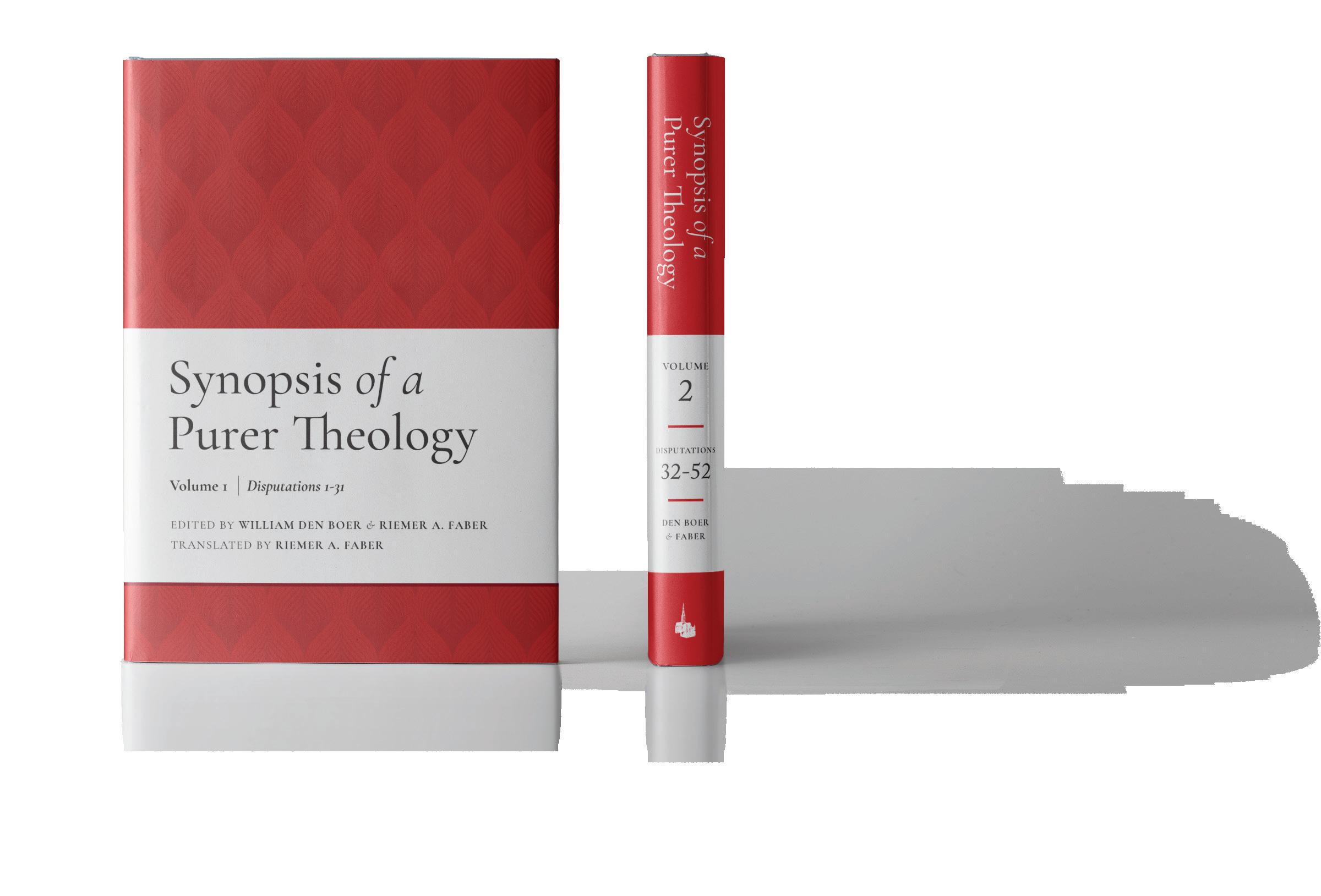

FOR THE CHURCH:
Applying Christianity and Liberalism to Contemporary Ministry
Rich S. Brown III
Eugen Felix Prosper Bracht, Monte Rosa und Arven (1919)
Christianity and Liberalism (1923) is most certainly J. Gresham Machen’s most enduring published work. In it, he essentially argues that the theological Liberalism of his day was diametrically opposed to historic Christianity. However, though we are now 100 years removed from its publication, Christianity and Liberalism still speaks profoundly to us and our present evangelical church. Although it pervades the book, much of that relevance can be found in Machen’s final chapter, simply entitled “The Church.” His four key points, directed at pastors and church members alike, outline their respective duties. According to Machen, pastors and church leaders must do the following:
Encourage their leaders—“[Christian officers] should encourage those who are engaging in the intellectual and spiritual struggle [i.e., contending for the faith]” (p. 178, 100th Anniversary ed.).
Establish biblical qualifications—“Christian officers in the Church should perform their duty in deciding upon the qualifications of candidates for the ministry” (179).
Exercise their duties—“Christian officers in the Church should show their loyalty to Christ in their capacity as members of the individual congregations” (179). Educate their members—“[T]here must be a renewal of Christian education. . . . Christian education is the chief business of the hour for every earnest Christian man” (180–181).
Gospel Sufficiency
In the first of the four duties above, Machen encouraged church leaders in his own day to exercise careful discernment in recognizing and testing qualified men before ordaining them. Our intentional efforts to raise up sound, healthy leadership should be undergirded by a genuine love for their soul and wellbeing before we call them to a place of spiritual authority. While we should certainly be in the business of equipping men holistically for the ministry—leading them in their knowledge of the Bible and theology, guiding them in the art of spiritual maturity, and coming alongside them in their development of people skills—we also need to have the courage to say “not yet” or even “no” to men who are not presently fit for ordained gospel ministry (James 3:1). Oftentimes, it is the leaders who were not sufficiently prepared for ministry in advance who later become the
most susceptible to disavowing their commitment to the historic gospel message.
In Machen’s day, gospel integrity was, indeed, worth protecting against the Protestant church’s growing number of counterfeits. The Bible’s teachings concerning the fundamentals of the Christian faith were not to be sacrificed upon the altars of cultural accommodation, alluring academic interests, or socially progressive ideations.
One of the underlying questions of the progressives in the early 1920s and ’30s was, “Does Christianity exist as the enemy of Social Progress?” This question echoed throughout the hallways of academic institutions, inside local coffeeshops and gathering places, and even in the precious sanctuaries of Protestant churches throughout America. After all, the traditional, historic faith clung to supernatural matters concerning Jesus, such as his virgin birth, miraculous healings, resurrection from the dead, and return at the end in power and glory—not to mention his divinity itself. Modernity, fresh off the heels of Post-Enlightenment philosophies, rejected such claims on the basis of their supernaturalistic presuppositions. Therefore, the authority, inspiration, and inerrancy of the Holy Scriptures of the Old and New Testaments were the prime target for Modernism’s inquisition of the Christian religion. Today, it is the sufficiency of Scripture that is the target of Postmodernism’s religious inquisition. (I’m grateful for the late, well-loved PCA pastor, Harry Reeder, for his insights on this matter.)
The witness of the modern-day evangelical church in America has seemed to decline over the course of the past few decades. We have so widely embraced expediency, commercialism, consumerism, complacency, and concentrated efforts to pull in large numbers of people at the expense of sound doctrine and personal holiness before the Lord and the watching world. We have largely reduced the role of biblical theology in our discipleship of the whole person for Christ, in an effort to be relevant to the culture. We have fallen prey to the plight of celebrity culture and consumerism and taken far too bureaucratic an approach in the election of our ministry leaders and pastors.
May we, like Machen, hold fast to the historic faith once for all delivered to the saints! To do this rightly, we must embrace the gospel of grace. The term gospel refers to a message pronounced that is true in nature, good for its hearers, and beautiful in effect. It tells of a real event with real ramifications.
Fall 2023 | 59
My good friend, Brett Eubank, who serves as the associate pastor at Rivermont Evangelical Presbyterian Church (Lynchburg, VA), has encouraged me to think of our exposition of Scripture and the preaching of the gospel message in light of these terms. Each generation of modern-day believers, generally speaking, is motivated to respond to the proclamation of the gospel through the lens of our own worldview-defining rubric:
Is it true? (Baby Boomers)
Is it real? (Generation X)
Is it good? (Generation Y)
Is it beautiful? (Generation Z)
The Bible answers each of these questions sufficiently! The gospel message of Jesus encompasses each one of these elements. It is historically true, doctrinally real, ethically good, and sublimely beautiful. Machen understood this as well. In Christianity and Liberalism, he famously stated, “‘Christ died ’—that is history; ‘Christ died for our sins’—that is doctrine. Without these two elements, joined in an absolutely indissoluble union, there is no Christianity” (27). This union between history and faith promotes our eternal good before a holy God (Gal. 2:20; Rom. 3:21–24; 4:24).
We have fallen prey to the plight of celebrity culture and consumerism and taken far too bureaucratic an approach in the election of our ministry leaders and pastors.
But Scripture also contains a countless number of amplifications of the gospel—that is to say, it proclaims various facets of the gospel, rooted in Christ’s death and resurrection. On every page of God ’s holy Word is written the message “that the Christ should suffer and on the third day rise from the dead, and that repentance and forgiveness of sins should be proclaimed in his name to all nations” (Luke 24:45–47). Such a message of
divinely-instated and divinely-accomplished salvation from sin and its curse—death and eternal destruction—is the hallmark of the Christian faith. Without the message of eternal life in Christ, secured and guaranteed by his sinless life, atoning death, and resurrection, there is no hope.
The church has no other unifying message than Christ and him crucified. And yet, in every generation the visible church has been met with both inherently false gospels and detractors from the true gospel. This has been and always will be the case. And it began taking shape even during the ministries of Jesus’s Apostles. We should not be surprised, then, by the sheer volume of present-day “Deconstructionists” either leaving or radically altering our evangelical churches. At the outset of the gospel’s proclamation, Jesus warned us that such events would occur as a direct result of the enemy’s infiltration tactics. Satan has sown tares among Christ’s wheat (Matt. 13:24–30, 36–43). The church must, therefore, be on guard so as not to believe the lies of the enemy, or what we might call “gospel substitutes.”
Gospel Substitutes
So, what exactly are gospel substitutes? In what form do they come? And what are some examples? First, gospel substitutes are essentially messages that promise salvation from sin and justification before God by any means other than Christ. They come primarily in two forms: theoreticism and pragmatism. But they are more than just ideas and works. They are systems of ideas and/or works that promote self-sufficiency over God’s sufficiency to save us from sin and its effects. These competing theories and practices are not harmless. They have a real, lasting impact upon not just Christ’s church but also society as a whole. And they are systematically propagated by their professors to a generation through the abuse of good institutions, such as education and legislation.
But of course, the propagation of ideas pervades all of life. False ideas in matters of faith and practice have consequences upon both society as a whole and her individual members. So the church has been and will be affected by the perversion of her integrity because of the culture’s disavowal of truth. And, collaterally, the culture has been and will be affected by the church ’s embrace or rejection of truth.
In the words of Machen, “ What is today [a] matter of
60 | W ESTMINSTER M AGAZINE
academic speculation begins tomorrow to move armies and pull down empires.”1 Today, our American culture—not to mention the Western world—has promoted a preponderance of gender identifications, along with Critical Race Theory, harmful political policies regarding the sanctity of human life, and authoritarian overreach into the lives of private citizens, organizations, and institutions in matters of health, daily routines, business, worship, and the like. One need only briefly consider the freedoms that we took for granted before March of 2020 to understand that new, anti-Christian political theories of salvation and atonement saturate our culture and are quickly making inroads into the evangelical church.
As a concerned pastor, citizen, and student of history, I am all too aware of these gospel substitutes, and I’m sure you are, too. We see them every day, in news articles and in conversations with our friends and neighbors whom we love. But there is nothing new under the sun. The progressive era of Machen’s day promoted a host of social grievances. And the quickly evolving entertainment industry (that was just starting to become the audiovisual juggernaut that it is today) made these grievances massively alluring and accessible on a scale never before seen. These social grievances included, but were hardly limited, to the following:
The breakdown of marriage
Abortion
Sexual promiscuity
Anti-Christian education
Individualism over and against community and family
Prolonged adolescence and worsening immaturity
Drug culture
Relative “truth”
Hedonism
Nihilism
Escapism
In her article “The Woke Bohemian,” my friend Laura Terrell, who is an author and researcher, has provided us with the following insights:
All of these gospel substitutes and more have not only remained but worsened in our postmodern society. Therefore, Machen’s approach to consecrating the culture is just as relevant and vital today as it was 100 years ago. The individualistic pursuit of personal happiness and relative truth that began at the turn of the last century has reached its logical
conclusion in the form of a constant search for meaning in gender ideology, the quest for fame, the escapism of drugs and entertainment, and so many other idols. After all, ‘there is nothing new under the sun’ and thus, like the ancient cultures before us, every modern culture has a god (Ecclesiastes 1:9). Whenever a culture chooses a god other than the true God of the Bible, the result is always madness, as seen first in the rampant hedonism of the Roaring Twenties and again in the chaotic nihilism of the 2020s.
In light of this, we must consider the following question: What is an appropriate response to our culture’s madness? In short, we must proclaim the unadulterated gospel to a dying world. When anti-Christian theories of atonement and salvation pervade a culture, the work of far-reaching, generation-transcending evangelism becomes more basic. We preach Christ—the whole Christ. When a society is destroyed by its own vices, like Narcissus foolishly mesmerized by his own appearance, the basic work of the church becomes that of sowing and planting the seed once more (Ps. 126). When the church sows and plants in good faith, her fervent prayer will inevitably be that the Lord of the harvest, Christ Jesus, by the appropriation of his Spirit, would water it and ready it and beautify it for the Final Day. Even so, come, Lord Jesus!
God send us ministers who, instead of merely avoiding denial of the Cross shall be on fire with the Cross, whose whole life shall be one burning sacrifice of gratitude to the blessed Savior who loved them and gave Himself for them!
J. Gresham Machen, Christianity and Liberalism, 180

Rich S. Brown III is a pastor, Doctor of Ministry Student (WTS), and the author of The Life I Now Live: Continuing Machen’s Historic Battle for the Gospel (2023).
1. Machen, “Christianity and Culture,” 404.
Fall 2023 | 61
 Sinclair B. FerguSon
Sinclair B. FerguSon
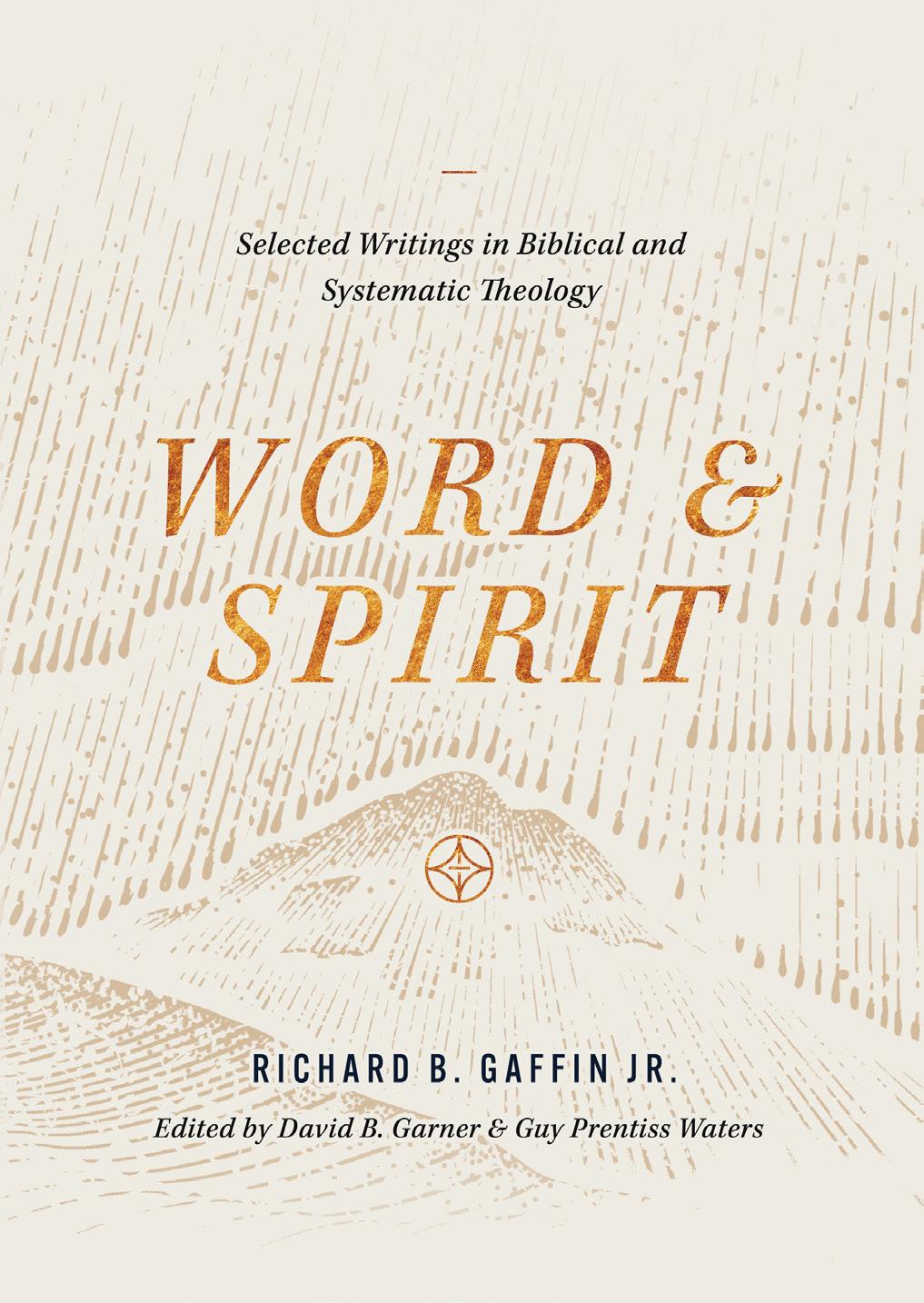
A virtual symphony of exegesis, biblical theology and systematic reflection. -
wtSBookS.com/wtSpreSS “ ” AvAilAble Winter 2023
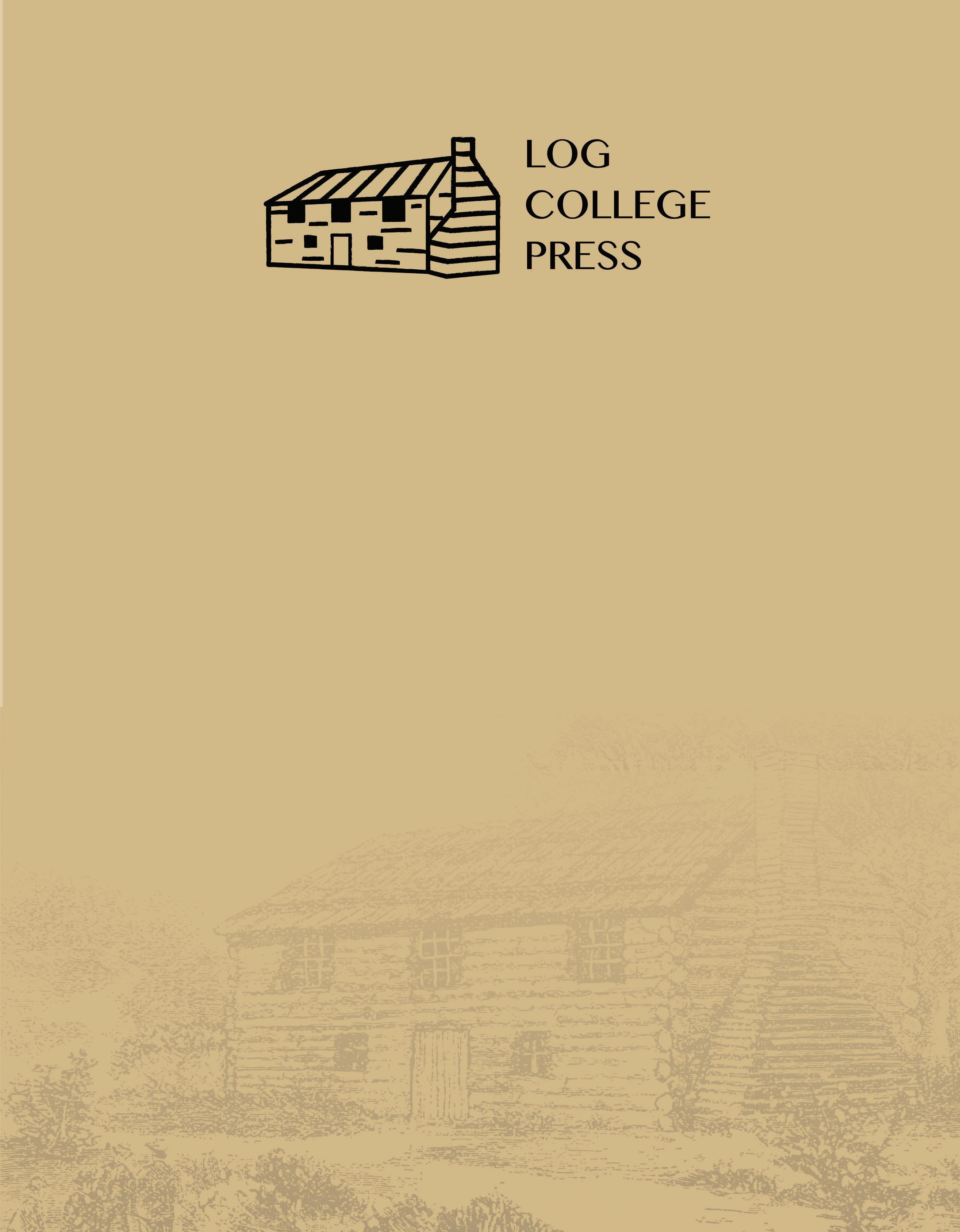

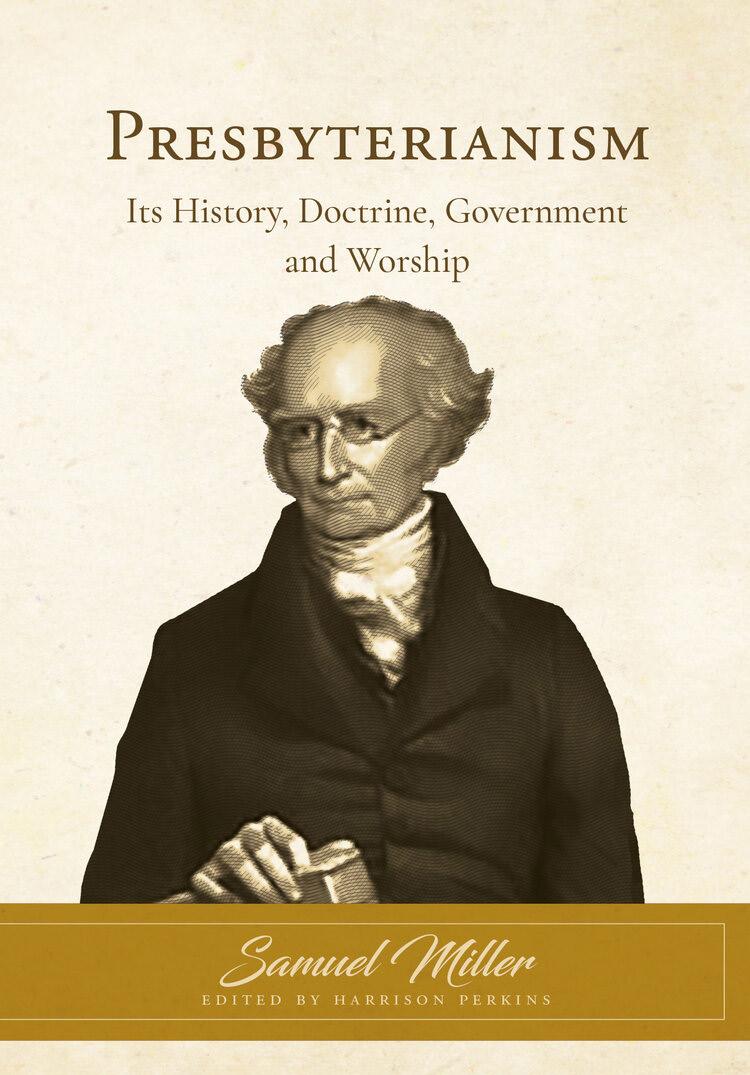
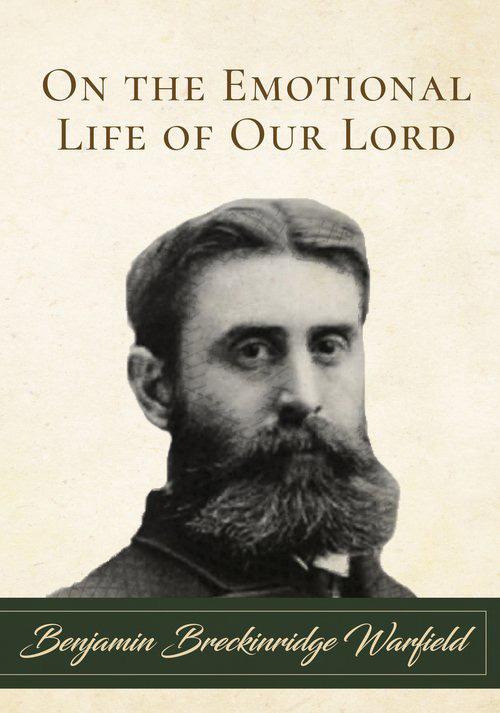
Named for the first American Presbyterian seminary, Log College Press is motivated by the conviction that as Christians in the present take root backward toward the past, they will bear fruit forward in the future for the glory of God and the kingdom of Jesus.
From its humble beginnings in the early 18th century, Presbyterianism in America has been committed to an educated ministry that would be able to teach God’s truth to God’s people. Log College Press aims to continue that commitment by publishing God honoring, soul-enriching books from 18th–19th century American Presbyterians.
logcollegepress.com
| 864-322-2717
info@logcollegepress.com
|
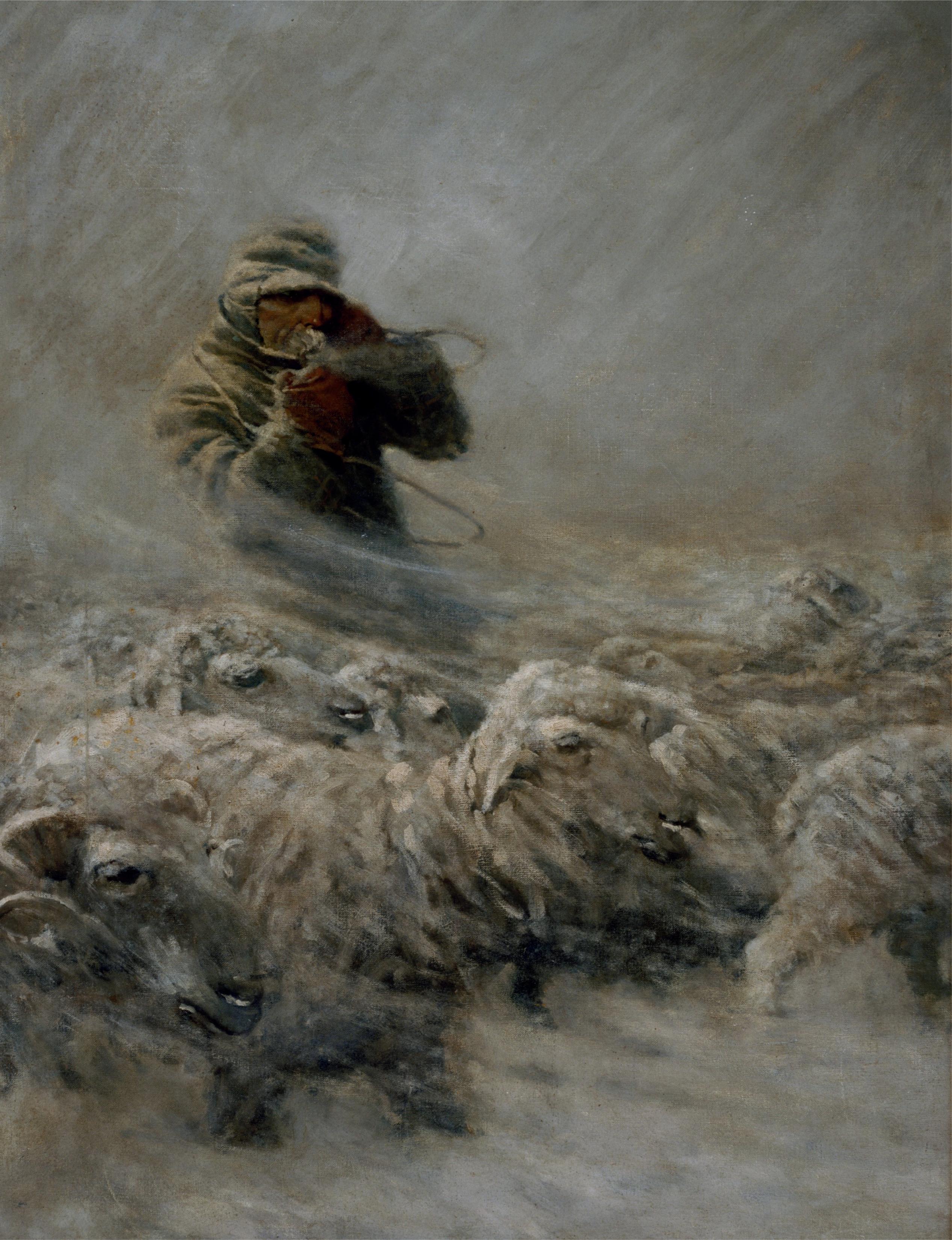
HOW WORDS MATTER:
Machen’s “Condition of Low Visibility”
Pierce Taylor Hibbs
N. C. Wyeth, Sheep Herder (1908)
Words are silent soldiers. They do far more fighting than feet and fists. The trouble is, we don’t look into them as often as we look at them. We see their graphic surface, recognize their sound . . . but the meaning often marches by unquestioned, crossing back and forth over the borders set by discourse partners—or, in our time, discourse enemies. And that’s precisely where their power lies, a great power, a revolutionary power.
In a virtually unknown work from the Christian linguist Kenneth L. Pike, I came across words that sound hyperbolic to many readers: “With language, by language, through language we act on our families, our friends, our nation—and revolutionize the world” (Tagmemics, Discourse, and Verbal Art, p. 4). That phrase, “revolutionize the world,” gave me pause. Words aren’t just vehicles of expression; they change things. They shape and redirect how people think, which then informs how people speak, which then influences what people do. Kenneth Pike wasn’t being hyperbolic. Words start revolutions. And we’re mostly unaware of how
Words start revolutions.
But J. Gresham Machen saw this, and he identified one of secular culture’s most popular discourse tools: the condition of low visibility. Once we know what this is, we can engage with people in the secular sphere based on the words they use, digging beneath them to see the meaning hidden by an uncritical haze. As followers of Christ, we have a duty to show that people always use words to fight for or against the Trinity. There is no neutral speech. And if we can master this semantic digging as an apologetic tactic, we might just be able, by the Spirit, to start a revolution in the other direction—the direction of truth
The Condition of Low Visibility
In Christianity and Liberalism, Machen wrote about the language habits of his Liberal opponents:
Presenting an issue sharply is indeed by no means a popular business at the present time; there are
many who prefer to fight their intellectual battles in what Dr. Francis L. Patton has aptly called a “condition of low visibility.” Clear-cut definition of terms in religious matters, bold facing of the logical implications of religious views, is by many persons regarded as an impious proceeding. May it not discourage contribution to mission boards? May it not hinder the progress of consolidation, and produce a poor showing in columns of Church statistics? But with such persons we cannot possibly bring ourselves to agree. Light may seem at times to be an impertinent intruder, but it is always beneficial in the end (1).
This “condition of low visibility” is a way of using words without “clear-cut definitions,” without specified meanings. It prefers semantic haze—that gray, cloudy aura that hangs around words like traveling smoke from a ghosted wildfire. Clear sight and keen understanding are backgrounded, while the vague and vogue meanings of popular usage stand in the foreground. We know that words are polysemic, that they have multiple meanings. But the condition of low visibility intentionally exploits this feature of language. It relies on multiple or subjective meanings and depends on uncritical readers to skip by borders of discourse. We’ll look at some examples in a moment. But before that, we need to establish something very mysterious and yet foundational for our understanding and use of everyday words.
Word Meanings Rooted in the Trinity
Our culture lives in what Charles Taylor called “the immanent frame” ( A Secular Age, pp. 539–593), a place where earthly human flourishing is the end-goal of all living. The here-and-now is ultimate. Our little circle of time and space is all there is. The meanings of words, in that context, must only be grounded in human usage. And yet Christians are different, we are what Cornelius Van Til called “two-circle people.” We believe that this immanent world isn’t all there is. In fact, this immanent world is unintelligible and meaningless if not upheld by the word of God’s power at every moment (Heb. 1:3). Our little human circle (creation) would be a void without the support and meaning given to it by the greater divine circle (the triune God).
Fall 2023 | 65
Here’s what that means in terms of language. Brace yourself for mystery and majesty: the meaning of every single word must go back to the Trinity. More specifically, what a word means must relate to what God has revealed about himself in history, especially with reference to the divine Word that came, lived, died, rose, and ascended to the heavenly Father. Meaning is a matter of relation to God, not simply a connection to human usage.
Let’s be more specific. A word’s meaning has stability. We can rely on it and trust it. But that word also has variations, multiple uses and shades of meaning. And every word has a context— situations and relationships that help us understand them. These features of language are good gifts: they help us understand what people mean in everyday life. And because all good created things have their origins in the Trinity, we can say that these features of language are somehow rooted in the Father, Son, and Holy Spirit—the triune, immutable creator and the original Speaker. God is the foundation for all meaning in language, because he's the foundation for language itself.
Love, as revealed in the Trinity, doesn’t mean accepting or celebrating anyone for any reason a person chooses.
Consequently, whenever people say something about anything, they rely on the Father, Son, and Spirit—even though they’re likely unaware of this. But Christians should be aware. We must be aware, precisely because those exercising a “condition of low visibility” are hoping we won’t be. They don’t want us to have “clear-cut definitions” for words based on the revealed truth of the Trinity. They don’t want us talking about the Father sending his Son when the word “love” is mentioned (John 3:16), or the Son governing who we are (Gal. 2:20; Rom. 8:17)
whenever “identity” is dropped in a tweet. They don’t want us to wax on about the Spirit of Christ as the standard when someone pleads for “justice” (Deut. 32:4). They want a condition of low visibility. They want human meaning without a divine measurement. It matters little that words such as “love,” “identity,” and “justice” have myriad meanings in circulation. In fact, that’s part of what makes the condition of low visibility so effective: everyone can claim a meaning for a word without questioning whether that meaning aligns with anyone else’s— let alone alignment with God’s revealed character and truth. But if we grant this low visibility, if we let words slip by without drawing out their meaning, we give our discourse partners the opportunity to revolutionize the world, to change how people think, speak, and act. And it’s already happening.
Case Studies: Love and Identity
Let’s consider a pair of examples. For each one, we’ll look at what the condition of low visibility has tried to accomplish and how the meaning of the word must be brought into semantic submission to the Trinity. We’ll use two words we ended the last section with: love and identity. These words are pervasive in our culture, so understanding their God-given meaning is essential.
In June—ubiquitously hailed as Pride month—someone on Instagram posted the message, “Just love people.” Within minutes, droves of likes and comments settled on it like dazed pigeons. Why? Because of the condition of low visibility. Few, if any, questioned what the words meant. Instead, they relied on vague and vogue understandings, on how the words made them feel, which is the trademark of the internet age and the era of psychologized identity. “Love” here likely means “accept” or even “celebrate.” And the word “people” for this post doesn’t mean “image-bearers of God”; it means “those trapped inside this godless immanent frame along with you.” As a whole, the low-visibility meaning of the message might be, “Just accept and celebrate those who are different from you.” Sounds like a positive message, doesn’t it? That’s why it garnered so many likes. And if words are neutral—carrying meanings neither in support of God nor opposed to him—this isn’t worth critical attention.
66 | W ESTMINSTER M AGAZINE
But remember that words are always used for or against the Trinity. Given that this was Pride month, the message was meant to defend the LGBTQ+ community. What we’re being asked to “accept” or “celebrate” is a sexualized identity at odds with sound biblical teaching. So, let’s be clear-cut with the meaning: “Just accept a non-biblical ethic of sexuality and identity rooted in Godless paganism.” You can see why a condition of low-visibility is preferable. The clear-cut meaning wouldn’t glean as many likes.
Love, as revealed in the Trinity, doesn't mean accepting or celebrating anyone for any reason a person chooses. In fact, love is self-giving, as shown in that Sunday school passage, John 3:16, “For God so loved the world that he gave.” Gave what? Not what— who He gave his Son. He gave himself. And yet what does it mean for us to give “ourselves” for others, and thus to love them?
Well, look at the grand gift that the Father gave as an expression of his love. In John’s Gospel, Jesus identifies himself as the gift of truth. “I am the way, and the truth, and the life. No one comes to the Father except through me” (John 14:6). Do you feel that sting of exclusivity, that idea that real love means God’s truth, and that God’s truth means I don’t get to prioritize “my truth”? For God, love means truth-giving in a divine person who must be accepted by faith—and here’s the rub, submitted to as Lord. In what we might call a condition of high visibility for Christian discourse, love is the self-giving truth of God meant to save a people lost in themselves. Real love isn’t about accepting yourself or even accepting others; it’s about accepting God and living in faithfulness to him.
What about identity? The term has meaning that runs deeper and wider than we could imagine—touching on thought, action, passion, memory, society, and so much more. But let’s look at just one facet: the idea of identity as passion.
A Christian influencer recently posted a video calling all Christians to “claim your identity right now.” By identity, he was referring to the gifts they had as musicians, singers, dancers, writers, artists, and filmmakers. The meaning of low visibility for “identity” here is something like “God-given passion or talent.” Humans are masters at reducing something as complex and multifaceted as identity to a single component—largely because this
makes it easier for them to control, and people are always seeking control. So, once again, many people resonated with the message and claimed they “needed to hear that.”
The problem is that the meaning of the word “identity” wasn’t rooted in the Trinity. And when it’s not, identity is inherently unstable, misleading, and damaging. For instance, I’m a writer. Aside from writing books and articles, I even have the word “writer” in my job title. But that’s not my identity. Why not? It places my value and meaning primarily in what I do and not in who I know. What I do is certainly a facet of my identity, but it’s not the whole thing.
Identity is fundamentally about a God-relationship.
God has always revealed that identity, at its deeply mysterious roots, is a matter of relationship —of those to whom we are bound—with all the attendant mystery and lack of control that entails. At the foundation of our lives is our relationship to the triune God. Above that lie our relationships with other people. In this foundational sense, it’s not what I do that establishes my identity; it’s who I know. That isn’t to say that actions aren’t important, but it does mean that actions emerge from and take shape in relationships. That’s hard for people to hear in “the immanent frame,” especially in the individualized West, who want to define themselves in isolation from any reliance on anyone or anything else. But that’s the divine and mysterious truth.
The fulfillment of identity, in fact, is a relationship so intimate, so deep that Jesus refers to it in John 17 as being one with God. This is the climax of the biblical story, which is always talking about God’s people being known (identified) by a relationship of faithfulness and trust in him—from Adam and Eve to Abraham to Moses to David and to Christ. We live in a world that tells us to boast in ourselves, in our self-made identity, when the Trinity tells us to boast in our relationship. “Let him who boasts boast in this, that he understands and knows me” (Jer. 9:24). And yet Jesus goes even further. He says we are most
Fall 2023 | 67
ourselves, most fully known and fully loved, not only when we know God, but when we live in him, when we are one with the Trinity through Christ, by the power of the Spirit. (John 17:11, 21). Identity is fundamentally about a God-relationship. It’s not centered on what your passions are, or your sexuality, or what issue makes you an activist. Identity goes deeper and broader. It’s a matter of divine relationship, not earthly individualism.
Conclusion: The Condition of High Visibility
In the spirit of Machen, but really in the Spirit of Christ, Christians need to reclaim a condition of high visibility. That means digging beneath the words we see treading across the borders of our daily discourse. The world is going to keep shouting about “love” and “identity.” And if we let them do so without asking what those words really mean, we’ll be losing the battle. This happened in Machen’s own day with Liberalism, which often used the same words as orthodox Christianity but meant something completely different by them. How did Liberalism gain its power and start revolutionizing Christian faith? There are many causes and many mysteries. But a condition of low visibility was certainly one of them. Liberalism relied on people not thinking like Machen did, on them not looking more deeply into the meanings of the words in context. Liberalism could talk about Jesus as “Savior.” The real question was, what do they mean? Is Jesus a savior in the sense that he saves us from poor moral examples (Liberalism of Machen’s day) or because he saves us from imprisoned versions of ourselves (contemporary Liberalism)? Or is he the savior because he crushed an ancient and hideous blackness that we have nearly forgotten how to name: sin? Jeremiah calls our hearts “desperately sick” (Jer. 17:9)—doomed to death. God reveals that Jesus is a savior because we all need heart surgery, not because we need moral guidance or a psych evaluation. Jesus is a savior because of sin—a category which Machen decried as being lost by his own culture, and is certainly lost in our day. Machen called that out. Will we?
Christians need a condition of high visibility, fronting the Trinity and his revealed work in order to expose the meanings of the words around us. In the end, this is a matter of maturity, but it’s also a matter of pointing
the world beyond “the immanent frame,” to the shaper of souls. In a poem on vanity (The Complete English Works, p. 108), George Herbert wrote:
If souls be made of earthly mould, Let them love gold; If born on high, Let them unto their kindred fly: For they can never be at rest, Till they regain their ancient nest.
Then silly soul take heed; for earthly joy Is but a bubble, and makes thee a boy.
Many people today play the child. They lack the courage, knowledge, and maturity to question the meanings of the words they use. Our world is full of “silly souls” content to drift in semantic haze, never dreaming that their speech could be for or against a triune God, the grand weaver of Herbert’s ancient nest.
Our call is to take up the one thing that burns away haze: light. Machen called light an impertinent but beneficial intruder. We can go further. Light is our savior and the world’s salvation (John 8:12). It’s also the truth (John 14:6), in all its multifaceted, Trinity-honoring complexity. With the light of Christ, clinging to his redeeming truth—his person—we go to create a culture of high visibility, doing what S.D. Smith in The Green Ember called his characters to do: bear the flame.
Light is our sword in a semantic revolution. And truth is our country. May we show a watching world that every syllable is tethered to the Trinity, whether they like it or not. This is our condition of high visibility.

Pierce Taylor Hibbs (MAR, ThM Westminster Theological Seminary) serves as Senior Writer and Communication Specialist at Westminster Theological Seminary. He is the award-winning author of over 15 books, including Theological English (a 2019 ECPA Finalist) Struck Down but Not Destroyed (2020 Illumination Book Awards), The Book of Giving (2021 Illumination Book Awards), and The Great Lie (2022 Illumination Book Awards). He lives in Pennsylvania with his wife and three kids.
68 | W ESTMINSTER M AGAZINE
AVAILABLE NOW AT WTSBOOKS

HOPE FOR GRIEVING MOTHERS
Grieving the loss of a child to stillbirth can be a lonely and agonizing experience. Sadly, this overwhelming loss is far more common than one may think, affecting around 1 in 160 births.
Speaking from experience, Jackie Gibson reaches out, offering the only balm that will bring comfort to your pain. Gibson honestly acknowledges the sorrow, the loneliness, and fears that come from suffering the loss of a child while pointing to the gospel with gentleness and understanding.

NEW GROWTH PRESS newgrowthpress.com

ALUMNI PROFILE: ROB GOLDING
Nathan Nocchi (NN): Brother, I count this as a wonderful opportunity to reconnect with you. Can you introduce yourself to our readership?
Rob Golding (RG): It’s a pleasure, brother, to be sitting here with you via Zoom, though we are on opposite sides of the country. . . A little about me: I attended Biola University, a Christian liberal arts university in Southern California. I graduated in 2012, and then joined the US Army to be an officer in the Armor Corps. So I spent my time in tanks and other armored vehicles as a platoon leader, etc. I met my wife, Olivia, during this time. We now have three children, two biological and one adopted, with a fourth, biological, child on the way. After finishing my military service in 2018, I entered the Mdiv program at Westminster.
I graduated from Westminster in 2021 with a Mdiv, and I subsequently went straight into a solo pastorate in the Christian Reformed Church (CRC), which is essentially Dutch Presbyterian. The CRC broke off from the Reformed Church in America many years ago. I believe Cornelius Van Til and perhaps Geerhardus Vos were in the CRC for a time. Anyway, I have been at this church for a little over two years now. We have about 140 members; we are an older congregation with an average age of 59. We offer traditional Sunday morning service, a Sunday school for all ages, and then we return for evening service on the Lord’s Day. Our church is just next door to a senior living facility, which was started by the Christian Reformed churches in this area.
NN: This is the goal of seminary training, is it not: to prepare you to undertake gospel ministry for Christ and his church? Can you share about your transition from being an Mdiv student to a solo pastor?
RG: Absolutely! With regards to a full schedule, yes, the Lord has much for me to do. This is the first connection point with Westminster, namely that the curriculum is extremely rigorous. Anyone who has been at Westminster for longer than five minutes knows that the curriculum is both rigorous and well crafted. It is hard for me to describe how much of a benefit that course of
study has been for me, especially in this solo pastor role. It trained me to think both deeply and quickly about God’s Word, which is essential to being a pastor in the world today. There’s always so much going on, and there are so many competing demands in a pastor’s schedule that if he doesn’t know how to think deeply about God’s word and engage it well, he’s going to flounder. One of the most helpful aspects of this curriculum has been the systematic theology classes. You and I had a lot of great conversations which usually revolved around systematic theology. There are many courses in systematic theology at Westminster, more than are offered at other seminaries. Let me put it this way. When I came to this church, I found myself preparing two sermons a week, in addition to all the other work a pastor does. And so, obviously, I didn’t have a whole lot of time. It is in this context that I found myself teaching through the Heidelberg Catechism in between our morning service and our evening service.
When I prepared to teach through the Heidelberg, everything that I read was incredibly familiar because it is systematic theology in nature and scope. Even though I did not have a lot of exposure to it, I did have deep training in the concepts that the catechism is describing. Because of that training at Westminster, I was able to teach a 30–45-minute class each Sunday without doing much preparatory work. This has nothing to do with me and everything to do with the seminary that trained me. They didn’t let me off easy, and now my ministry is made easier.
NN: Thinking about this principal activity of the pastor, namely the preaching and teaching ministry, let us think for a moment about the pulpit in our modern context. Our modern context is rife with worldviews and systems of thought that are diametrically opposed to the Christian worldview. Intellectual challenges are ultimately spiritual in nature. What are some of the recurring challenges that you are led to address in your preaching and teaching ministry?
RG : I believe the challenge that would come into the mind of 90% of people reading this is the LGBTQ+
70 | W ESTMINSTER M AGAZINE
movement. I have found that I have had to repeatedly address this. In fact, the sermon that I preached while a pastoral candidate attended to this challenge, at least in part. The LGBTQ+ challenge can be so divisive, and in my opinion, it’s much better to be upfront with your views on that rather than mislead people into thinking that you agree with them only to find out months later that you do not. This has been a topic that has been very relevant to our denomination, as most others. In 2022 an official report on sexuality was produced and voted on in the CRC. Thankfully, the conclusion was reached that the traditional view on human sexuality is, in fact, the biblical view.
The biblical view of human sexuality that society rails against is not strongly affirmed by cultural Christianity. In my area, God in his providence is eradicating this cultural Christianity to his glory. Pastors must preach that true Christianity is a demand to take up our crosses. Jesus Christ is not merely a supplement to our lives; he is our savior. This LGBTQ+ issue is actually very helpful in articulating this point. When a pastor preaches that we are born with original sin, and our only hope is in a Savior with whom we will be united, in such a way that he lives in us and we live in him, one can begin to glean that the transformation of the sinner is a total transformation. Like Paul says in 1 Corinthians 5:17, we have been created anew. Of course, many will reject Christianity because of its rejection of current cultural norms regarding sexuality. But we must remember, this is the way Christianity works. We must be willing to sacrifice those things which culture deems to be central to our identity. Christianity teaches that we must die to ourselves and live to Christ.
NN: Anthropology, indeed, is at the center of these sorts of challenges. And, as I think about biblical anthropology, I am reminded of this issue’s theme: J. Gresham Machen’s Christianity and Liberalism. Have you found Machen particularly helpful as you think about this current challenge?
RG: Absolutely. I first read Christianity and Liberalism while I was in a Reformed Baptist church around 2016. The pastor of that church gave me a copy and told me that this work was written almost 100 years ago, but it is as relevant today as it ever was. I remember thinking that there was just no way. How could something about

liberal theology written 100 years ago be relevant today? So many things have changed. When I sat down to read the book, I was just astounded by how prescient Machen was and how applicable it is today. You could note a number of ways in which that book is relevant today, but I think that the notion of a modified Christianity is the most relevant point.
Machen said that there is Christianity, and there is Liberalism. There is no Liberal Christianity. You are either a Christian or you are not. . . Taking this paradigm of clearly drawn lines of demarcation has really equipped me to do a lot. The first would be to recognize that fake Christianity is so prevalent in our country. I think of “public speakers” such as Joel Osteen or Stephen Furtick. These so-called representatives of Christianity are proclaiming something very different from Christianity. And Machen helps us see this clearly. The second thing is that Christianity and Liberalism has encouraged me to speak boldly about these salient differences. Consider, just for a moment, how bold Machen was when he penned this work . . . at that time! I know many have used this phrase as a pejorative, but I embrace it: “Machen’s warrior children.” I am burdened—as Jeremiah says, “there is this fire shut up in my bones”—to communicate that these false versions of Christianity, the health
Fall 2023 | 71

and wealth “gospels,” are simply not Christianity. You cannot put an adjective before Christianity. At the risk of being tautologous, Christianity is Christianity. These are at least two ways in which Christianity and Liberalism has been profoundly helpful to me.
NN: To borrow a quote from Samuel Rutherford: “Your heart is not the compass that Christ sails by.” Let us be Christians who, with renewed minds, seek those things which are above, measuring all our thoughts and our actions by God’s infallible word. As an alumnus, is there anything that you would like to say to the Westminster community?
RG: I would like to encourage the Westminster community to invest deeply in the seminary. I have taken classes at other seminaries, and I am genuinely concerned by the weak curricula. It is frightening to me, truly. They are supposed to be training the next generation of pastors, but the trends I see are in terms of being more “relevant” and how to empathize. As with many things, the pendulum often swings too far in the opposite direction. The church has had Bible-thumping fundamentalist (in the negative sense of the word) strains, and we need to recall Christ’s gentle and lowly demeanor. But today, I think we have the opposite problem. Most pastors are so gentle and lowly, they don’t know how to breathe out the fire of the gospel. When a seminary, as is the case with almost all of them, save Westminster, tells its Mdiv. students that learning the original languages is optional, it is focusing on being relational but at the cost of being scriptural. Tim Brindle was my admissions counselor in
2017, and he put it this way: “If your wife had to have brain surgery, would you want her going to the surgeon who went to a fly-by-night med school, or the one who went to the most rigorous school? How much more so when eternal souls are on the line?”
Our modern context needs pastors who are men of conviction, as John Currie would say, men with convictions, competencies, and character. So, I would encourage the community to keep investing in Westminster. I cannot even begin to articulate how much Westminster has blessed me and prepared me for the pastorate. Jesus Christ is the hope of the world, and I believe that Christ is using Westminster in a special way to bring the hope of his gospel to the world. When I look at American life and American Christianity, I feel very distressed. But when I think about what God’s doing at Westminster, it always encourages me because I know that there are men and women being trained to teach and proclaim the gospel in various contexts, and men who are being taught how to preach God’s word robustly, without capitulation. If America is going to repent of its ways, turning from its downward spiral into the abyss, it will be through men who fill pulpits with tears in their eyes and fire in their bones to preach the word of God, no matter the cost.
NN: Amen!
If you’d like to learn more about what Rob Golding is up to, you can check out his podcast for nominal Christians. “The Pastor and the Prodigal” is available on YouTube and wherever podcasts are distributed.
72 | W ESTMINSTER M AGAZINE
Ivan Konstantinovich Aivazovsky, Broad Landscape with Settlers (1856)


B
A C K T O S C H O O L ; P R E P A R E D F O R B A T T L E
N e w s r e p o r t b y n e w s r e p o r t , t h o u g h t b y t h o u g h t , t h e r e i s a
c o n c e r t e d e f f o r t t o d i s m a n t l e t h e p l a i n t e a c h i n g o f G o d i n
H i s t w o b o o k s , n a m e l y t h e b o o k o f n a t u r e a n d t h e b o o k o f
S c r i p t u r e . T h i s n e w i d e o l o g y i s u l t i m a t e l y d e t a c h e d f r o m t h e
s u r e a n d s a f e a n c h o r o f t r u t h .
C o n t e n d i n g f o r t h e t r u t h r e q u i r e s f i d e l i t y t o t h e t r u t h . W e
m u s t n o w r e n e w a n d p r o c l a i m o u r s t r o n g r e s o l v e t o r e m a i n
d e v o t e d t o t h e w o r d o f G o d . A s h i p c a n n o t s u r v i v e u n c e r t a i n
s e a s w i t h o u t a n a n c h o r , s o h o w c a n w e c o n t e n d f o r t h e t r u t h
o f G o d w i t h o u t J e s u s C h r i s t a n d H i s G o s p e l ? A s o u r s t u d e n t s
r e t u r n t o c a m p u s , t h e y a r e , i n a v e r y r e a l w a y , s t u d y i n g s o
a s t o p r e p a r e f o r b a t t l e a g a i n s t s t r o n g h o l d s ( 2 C o r i n t h i a n s 1 0 : 5 ) a n d p r i n c i p a l i t i e s o f d a r k n e s s ( E p h e s i a n s 6 : 1 2 ) .
F r i e n d s , w e h a v e a g r e a t t a s k b e f o r e u s , a n d w i t h g r e a t
t a s k s c o m e g r e a t n e e d s . T o l e a r n h o w y o u , o r s o m e o n e y o u
k n o w , c a n j o i n u s i n p r e p a r i n g n e w G o s p e l m i n i s t e r s ,
t e a c h e r s , a n d c o u n s e l o r s f o r b a t t l e , w h e t h e r i n p r a y e r o r
f i n a n c i a l s u p p o r t , c o n n e c t w i t h o u r S t e w a r d s h i p O f f i c e .
W T S . E D U / S U P P O R T ( 2 1 5 ) 5 7 2 - 3 8 3 0
( P i c t u r e d a b o v e : h a n d w r i t t e n f i r s t
d r a f t o f C h r i s t i a n i t y & L i b e r a l i s m
b y J G r e s h a m M a c h e n )

Claim Your Creed, and Know Where It’s Taking You
Editorial Note: This message is part of a new series of communications from the Office of the President called Point of Contact. To subscribe to the Point of Contact, visit wm.wts.edu. After subscribing, you can download the audiobook of Christianity and Liberalism for free! To order a copy of the book Reformed Standards of Unity, visit wtsbooks.com/rsu
What’s your creed? We live in times where historical wisdom is suspect. People tend to praise the present and look down on the past. And yet the past is the treasure trove of wisdom. It’s not only where God’s revelation unfolded—culminating in the life, death, resurrection, and ascension of Jesus Christ; it’s also where Christians have turned to find clear and biblical summaries of their faith: the Nicene Creed, the Westminster Confession of Faith, the Heidelberg Catechism. These historic confessions by faithful believers still guide and direct us today. The past doesn’t just shape our present; it informs our future. Now, many people in the broader world would not subscribe to these creeds. In fact, scores likely haven’t even heard of them. So, why bring them up, especially in light of a highly anticipated presidential election? I might answer that in a single word: unity. In a world torn asunder with political activism, cultural clashes, and warring authorities, Christians need unity more than ever. And while Jesus prayed for our spiritual unity in his High Priestly Prayer (John 17:11, 21), we have ways of expressing that unity in doctrine. With one
voice, we can gather and affirm the truth that God has revealed about himself.
That’s why I spent so much time editing Reformed Standards of Unity: The Historic Statements of Faith Confessed by the Presbyterian and Reformed Churches Think of them as a gathering place for God’s people. In addition to this beautiful cloth-bound hardback version, we created a database to encourage the study of confessions by the whole church: standards.wts.edu. We long for the church— one body of believers with Christ the Lord as our head—to revisit her biblical identity as expressed in these creeds. This is critical in a time of political upheaval because the church is not the only one with creeds. In fact, everyone has a creed—politicians, activists, the LGBTQ+ community, lobby groups, school boards. They may not know it, but they have a creed. A creed is simply a system of beliefs we carry into our waking hours. Creeds are unavoidable. Those who claim they don’t have a creed are either ignorant of it or aren’t being honest with themselves. The question isn’t, “Do you have a creed?” It’s, “To what does your creed unite you?”
Creeds draw people together; they unite diverse communities. Just as the church can unite around its confessional statements to the glory of God’s Lordship, factions in the world will unite around their own creeds—usually in praise of man’s autonomy. We hope you’ll take advantage of this collection of creeds and read them with family, friends, and church members. Our creeds unite us to the one Christ, Lord over all.
74 | W ESTMINSTER M AGAZINE
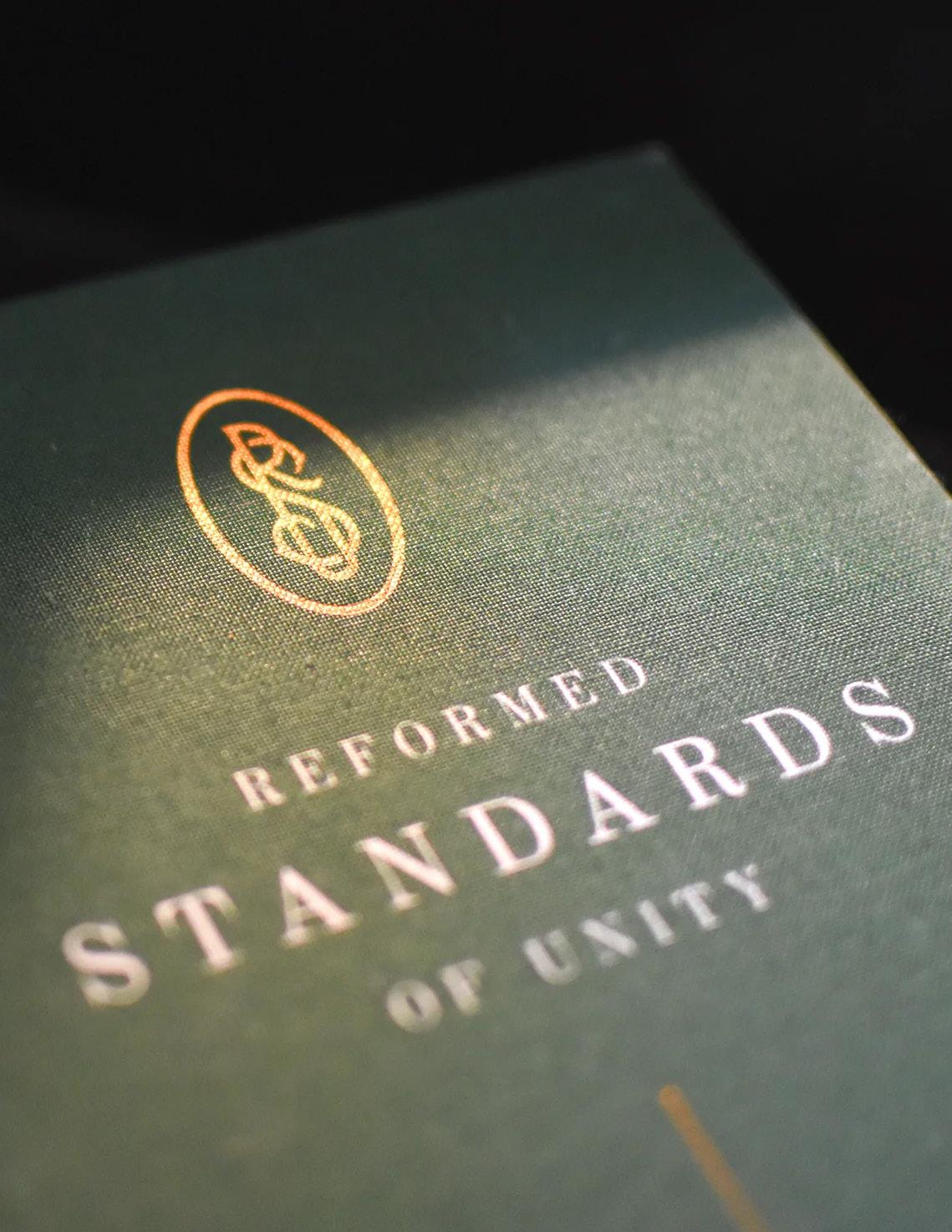
“I BELIEVE IN ONE GOD THE FATHER ALMIGHTY. . .”
wtSBookS.com/rSu nOW AvAilAble A new volume of the historic statements of faith confessed by Presbyterian and Reformed churches.
Make the doctrines of the church part of your everyday carry.
A PRAYER FOR THE MORNING
(Ancilla pietatis)
Daniel Featley
Adapted by Nathan Nocchi
O Gracious Father, rich in mercy to all thy children that call upon thee, accept, I beseech thee, this sacrifice of praise and thanksgiving, which, with a willing heart and devout affection, I offer unto thee in confidence of thy Son’s infinite merits, and acknowledgement of thine everlasting love, and those inestimable benefits which by Him, and for Him, and with Him, thou conferred upon me, and all thine elect in Him.
O Lord, fit me with thy grace, that I may abound in thanksgiving and praises for it. Enlarge my heart with thy love, that I may, in some sort, comprehend with all saints the measure of thine infinite love manifested to me in Jesus Christ, and abundantly testified in the writing my name in the book of life, before I was.

O Father, as the light of the Son shineth before me, so grant that my light may shine before men, that they may see my good works, and glorify thee, my Heavenly Father. And because thou art the light which enlighteneth every man that cometh into the world, cast, I beseech thee, the bright beams of thy favor upon thy whole church; propagate thy gospel through the whole world, and by the preaching thy Word, add those daily to the church that shall be saved. Say to the North, Give, and to the South, Restore, and speedily accomplish the number of thine Elect, and so come Lord Jesus, come quickly.
I pray thee for the prosperous and flourishing estate of all thy churches in this world thou didst created. So, be it, dear Father, for the merits and passion of thy Son, by the powerful operation of the Holy Ghost with whose assistance I sum up all these requests,
Amen.
(c. 1810s)
Caspar David Friedrich, Blick von Warmbrunn auf die Kleine Sturmhaube
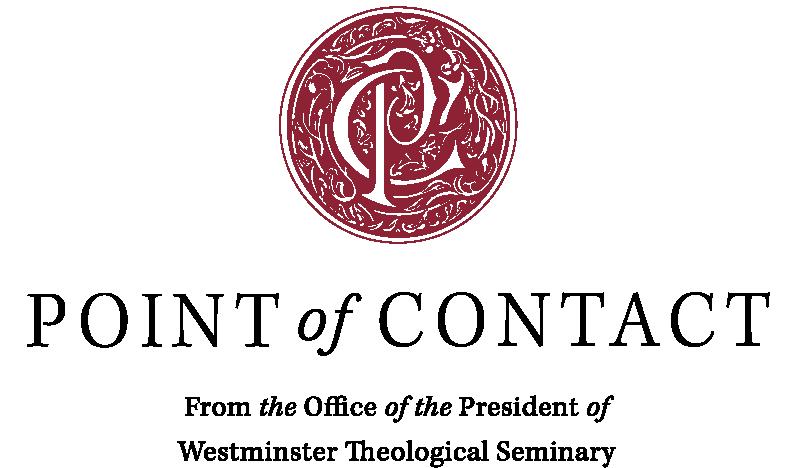


Theology applied to today’s cultural dilemmas. visit wm.wts.edu to subscribe today

“At the present time, when the opponents of the gospel are almost in control of our churches, the slightest avoidance of the defense of the gospel is just sheer unfaithfulness to the Lord.”
wm.wts.edu
J.Gresham Machen





 Peter A. Lillback, President
Peter A. Lillback, President
 The Jan H. Jacks Hospitality Garden (photo: Abram Hammer)
The Jan H. Jacks Hospitality Garden (photo: Abram Hammer)
















































































 Sinclair B. FerguSon
Sinclair B. FerguSon




















